Reports, videos and pictures
SAR-Camp – Solidarity and Resistance!
Biesenthal (near Berlin) (4th-7th September 2025)
The SAR Camp: A Step Forward in the Collective Struggle for Free Movement for All
From September 4th to 7th, just outside Berlin in Biesenthal, Germany, the SAR Camp, short for Solidarity and Resistance Camp, took place as part of the Transnational Chain of Actions for Free Movement. We deliberately chose the name SAR to underline that it not only stands for Search and Rescue, but also for Solidarity and Resistance. This set the tone for a participatory space focused on critical reflection, collective learning, and further developing our different actions into a strong movement.
The camp brought together several hundred people, including people with lived experiences, as well as activists engaged in sea rescue, anti-border and anti-racist struggles, and other forms of solidarity with people on the move. It welcomed everyone already active in these struggles, as well as those not yet organized but keen to get involved.
Over the course of four days, thanks to the many contributions by participants, the camp offered a diverse and rich program including workshops, talks, panels, theatre performances, film screenings, and concerts. We shared knowledge from the past decade of resistance, reflected together, gave each other feedback, built new connections across networks, and brainstormed about the future. It was a space to learn, confront challenges, question the systems we work within, celebrate victories, and imagine new ways forward.
Although the camp was initiated by people working in civil sea rescue, the aim was to go far beyond that context and bring together a diverse group of people. Participants contributed a wide range of topics and perspectives: From the provision of emergency and material support, the use of technologies, legal analysis and advocacy, and solidarity with Palestine, to creative approaches to fundraising, protest, civil disobedience, countering criminalisation, and broader strategies of resistance. People active in many different border contexts were present, including activists working in Poland, Libya, Italy, Greece, Morocco, Serbia, Germany, France, and beyond.
The variety of formats and topics, combined with the care and motivation of everyone involved, made the camp dynamic, highly collaborative, and re-energising. It wasn’t only about sharing ideas or strategies. For many, the SAR Camp was a place to feel hopeful, connected, and to recharge. It reminded us that we are not alone in this fight.
A lot was discussed and conceptualised during those four days. The camp was another important step forward in building a collective movement grounded in a shared commitment to dismantle Fortress Europe and have freedom of movement for all. What matters now is how we use this new knowledge and these new connections to grow even stronger in our resistance and solidarity.
We look forward to coming together again – potentially in other places, and hopefully with even more people – to shape the next chapter of our struggle.
Pavillons of Solidarity – For the right to leave, to come, and to stay!
Frankfurt (6th September 2025)
f.Lotta – A massive occupation of the central Med
Mazara / Lampedusa (10th-20th September 2025)
Core to f.Lotta actions were F.lottine and land f.Lotta events, which brought the f.Lotta message where it hurts: inside fortress Europe. A f.Lottina is a maritime, river or lake occupation other than the one in the central Med. A land f.Lotta action can take many forms, such as a talk, a march, a sit-in in front of a deportation center.
This way, the occupation in the central Mediterranean sea sparked several other occupations elsehwere. Actions took part in Elba, Rome, Marseille, Brest, Calais, Rosenheim, Berlin, Cyprus, Baleares, Mazara del Vallo, beside the main action south of Lampedusa.
Some of the biggest actions happened in Marseille and Berlin.
In Berlin, on the notes of Rythm of Resistance, around 15 smaller and larger boats set off to occupy the Spree, accompanied on land by protesters, banner drops and speeches. Berlin’s f.Lottina intersectional demands connected different local realities and struggles, amplifying demands for a free Palestine, ecological justice, freedom for all Antifas, freedom for all prisoners from across Europe to Kurdistan to Sudan to Tunisia.
In Marseille, we retook spaces both on land and at sea. Protesters expressed their anger against fascist, authoritarian regimes and deadly borders through a demonstration along and in the old port. This was followed by an occupation zone in which a radio broadcast featuring the voices of f.Lotta took place: Borders in the Mediterranean: Resist, open breaches! (The podcast is available at: https://radiogalere.org/emission/galere-soutient-f-lotta-une-occupation-massive-de-la-mediterranee) The weekend of mobilisation ended with a concert in support of the movement and the collectives involved in the action. Several groups from Marseille were there to support the mouvement.
In total, 13 campaigns were launched, 20+ organisations joined the movement, 30+ boats were involved in the actions, hundreds of activists took part and 1.1 million people were reached on social media. These actions were only the beginning. The f.Lotta movement aims to occupy as many spaces and times as necessary to denounce the violent consequences of the border regime. It is important to fight, to reoccupy our spaces both at sea and on land to denounce this violence, to fight against racist laws that criminalise sea rescue, to fight against this system that wages war on exiles.
Let us rise up against these borders that kill and for a world where everyone has the right to move freely and live as they choose!
UNFAIR 2.0 – UNHCR = UNFAIR! IOM = NASTY!
Geneva / Agadez (12th-13th September 2025)
https://www.refugeesinlibya.org/post/from-tripoli-to-geneva-2
„ This book was born from rage, from grief and from the refusal to remain silent. It was born from the betrayal we witnessed and lived—at the hands not only of militias, traffickers and governments, but of the very institution that claimed it was there to offer protection: the United Nations High Commissioner for Refugees (UNHCR). (…) The UNFAIR campaign sought to show how UNHCR has not only failed to protect but has actively collaborated with the European border regime that funds, manages, and weaponizes containment. This Book of Shame is part of that campaign. (…) The Book of Shame is not neutral. It is not balanced. It is not written in the language of polite advocacy. It is what must be said, by those who have been ignored for too long. (…) May it be a weapon, a record, a fire. May it burn away the silence. And may it clear the ground for something just to grow.“
These strong sentences originate from the introduction of the “Book of Shame”, which has been presented by Refugees in Libya for the first time on 12th of September 2025 during a press conference in front of the headquarter of UNHCR. Based on hundreds of personal testimonies, it is an impressive document to accuse the practices of this agency in Libya, Tunisia and Niger.
A life-connection was organized at the same time to Agadez, where several hundred refugees protested against the treatment by UNHCR, and to amplify their voices. Ten days earlier a common manifesto was already published to express unity and to raise concrete demands: „We are Refugees in Libya, Refugees in Tunisia and Refugees in Niger, three self-organized refugee movements demanding our basic human rights and struggling against injustices experienced in the treatment by UNHCR. (…) Here are our demands to UNHCR: Recognition, denunciation of abuses, improved services, respect and transparency…(followed by a concrete list on these four topics)“.
UNHCR staff in Geneva finally offered on 12.09.25 a face to face meeting with a delegation from Refugees in Libya. In this talk the representatives appeared self critical, willing to improve services for refugees, while complaining the cuts of money for their agency and their under-equipment. It has to be followed up on the ground, if really something will change or whether the apparent insights were just empty words.
Next day, 13th of September, a small demonstration started in front of the headquarter of IOM, the even worse and nasty agency of migration control. The march passed nearby the „broken chair“, where an „all eyes on Gaza“ camp took place. In mutual solidarity several activists joined the UNFAIR demonstration, which ended in front of the UNHCR building with another manifestation with banners and speeches to amplify the demands.
Common manifesto: https://www.refugeesinlibya.org/post/manifesto-unfair-campaign
Download for the „book of shame“: https://www.refugeesinlibya.org/book-of-shame
CommemorA(c)tion of 20 Years of struggle – Arcom
Rabat, (3th-5th October 2025)
https://afrique-europe-interact.net/2218-0-Konferenz-ARCOM-2025.html
Conference: ‘We migrate to live, not to die’
From 3 to 5 October 2025, the conference ‘We migrate to live, not to die’ was held in Rabat, organised by the autonomous migrant organisation ARCOM and Afrique-Europe-Interact. It marked the 20th anniversary of ARCOM and the tenth anniversary of the ‘Baobab’ rest house, a place that offers protection and solidarity to many migrant women and their children. Around 300 participants, mainly migrants (in transit) from sub-Saharan African countries as well as activists from Europe and Africa (Morocco, Tunisia, Algeria), gathered to share their experiences, develop strategies of resistance and oppose Europe’s repressive border regimes.
Round tables, workshops and cultural contributions highlighted the reality of migration and exile: violence at borders, overcrowded camps, lack of protection, survival on the streets and structural exclusion. The situation of women and children in exile was at the centre of the conference. The testimonies of Sudanese refugees and the play staged by migrants about the dangerous crossing of the Sahara were particularly impressive.
Discussions focused on criticism of the UNHCR, systematic pushbacks into the desert and the strengthening of local and transnational networks. The question of how documented border violence can be dealt with legally was also addressed. Collective action could be a future step. Participants agreed to relaunch the networking of support structures in Morocco in order to exchange information regularly and provide better, more targeted support to migrants.
The conference was a powerful place of encounter, solidarity and networking – a new beginning for new cooperation across borders. Its central credo remains the same: we migrate to live, not to die. Freedom of movement for all!
Caravan from We’ll Come United – For free movement and equal rights
From Thuringia to Berlin (20th-27th September)
https://www.welcome-united.org/en/
On 20th of September the German-wide network We`ll Come United started a one-week caravan through several cities in eastern Germany. Isolated Camps and detentions were visited to empower the inhabitants and to invite them to get organized against deportations and racist discrimination. Mainly voices of self-organised refugees spoke in this series of in-door-events as well as street parties, in manifestations and demonstrations. The caravan culminated in a powerful parade in Berlin on 27.09.2025 with about 1000 participants and with eye-catching trucks, which symbolized the struggles for freedom of movement and equal rights for all. *
In the German newspaper Tageszeitung (Taz) a diary with nine texts could be published by a Somalian woman from the media team of the caravan, see here (in German): https://taz.de/Refugee-Karawane/!t6114589/.
Further report with impressive photos: https://umbruch-bildarchiv.org/well-come-united-2025/
Stop the memorandum between Italy and Libya!
Rome (14th-18th of October 2025)
„This is the deal of death!“
Action Days in Rome against the Memorandum of Understanding
On 18th of October 2025 the protest culminated in an impressive performance organized by members and comrades from Refugees in Libya. The stage of survivors was the highlight of five days of actions in the capital of Italy to mobilize against the deal for crimes against humanity.
The series of activities started with a press conference on 14th of October in the parliament building, in the same day, when the oppositional parties submitted a resolution against the prolongation of the memorandum of understanding. Speakers from TAI (Tavulo Asilo), amnesty Italy, Open Arms and Refugees in Libya (RiL) were supported by Elly Schlein, the leader of PD.
On 15th of October a political debate took place on perspectives against the externalization and the brutalization of the border regime. The event in the social center ESC was introduced by a promise: „We have made mistakes, but one thing we should never make is the mistake of giving up of trying to change the world to better.“ Accordingly in several working groups middle term perspectives from and with Refugees in Libya were re-discussed.
On 16th of October the conditions and struggles of women formed the main focus of another event in the university, mainly organized by the legal clinic of UniRoma3. „No deal on women’s bodies: stories of resistance from Libya“ was the title, and institutional actors for women rights have been connected and confronted with RiL-women’s experiences on the ground. In the same evening the film documentary „The years we have been nowhere“ was presented in the space of the anti-mafia association Libera.
17th of October begun with public actions in the touristic city center: a big Stop MoU banner from civil fleet organizations was presented at Piazza Navona fountains, while RiL activists and supporters weared life jackets with slogans against the deal of crimes. Later on the banner appeared in front of colosseum.
In the early evening a commemorAction was held in front of the Basilica S.Croce. In two empathic speeches the lethal violence of migration control was contrasted with the lived experience of open borders, while the dimension of the mass killing was presented in the outrolled lists of 66.519 documented death, decorated with candles, banners and life jackets. The emotional coming together – supported by spin time lab – was closed by an inter religious praying from an Imam and a priest.
The morning of 18th of October started with a video and a debate on push backs and abuse in Libyan detention centers based on reconstructions from Forensic Architecture and Liminal.
In the early afternoon about 400 participants followed the call to the central manifestation at Piazza Vidoni and were welcomed by RiL members to the announced stage of survivors. Within the next two hours about 50 witnesses – men, women and children – collectively took the platform, testifying their suffering and their struggles in Libya. In an impressive and felicitous mix of performances and personal reports the strong voices of selforganisation echoed across the square. The unique event of the protagonists was completed by an accusatory tribunal to name and to show with „wanted” posters the faces of the responsible politicians, and by raising their demands with a never-ending slogan: Stop Memorandum. The audience responded with sustained applause, and the program ended with congratulations and short speeches by supporting civil society and civil fleet actors.
First brief conclusions: the events in Rome were very powerful and at least in Italy it achieved public attention even in mass medias. Thanks to the initiative by RiL the refusing noise against the MoU was louder than ever, but of course the prolongation of MoU could not be stopped. For RiL it was a successful mobilization, strengthening mainly the selforganisational process. The civil society coalition supported on various levels, but its concrete mobilization for the central manifestation remained much too limited. The strong voices of the protagonists need and would deserve ten thousands and not only a few hundreds.
RAGE POEM – presented on the stage of survivors on 18th of October at Piazza Vidoni in Rome by Refugees in Libya
„Even under the sun — our world is dark.
Our world is chaotic. Our world is nightmarish. Our world is betrayal. Our world is shame.
Rage against Tripoli — against its prisons, its militias, its torture camps, its crimes.
Rage against Italy — against her ministers, her signatures, her complicity, rage against her hate.
Rage against Brussels — against the architects of border death and denial.
Rage against Geneva — against the white papers that bury the truth in reports.
We have rebelled against Tripoli. We have rebelled against Italy. We have rebelled against Brussels. We have rebelled against Geneva. We have rebelled against the silence of the world. We have rebelled — all the more so, that we may not be erased. Rebellion has been our voice — our lifeline.
We know. Knowing is a burden, for we know our pain and its inflictors.
We know. Knowing is a wound that does not close — unless justice is served. Although we know — we are still here.
We are the remnants of the forgotten sea, the faces Europe pretends not to see. We were not born to drown on high seas in search of safety. We were not born to kneel in submission to slavery, torture, and rape. We were not born to be counted by surveillance drones of Frontex and more. We are not statistics. We are not shadows. We are the evidence — walking. Our breath — is rebellion. Our steps — rebellion. Even our silence — rebellion. Even our pain has learned to rise and walk.
Europe calls it migration — We experienced it as refuge. Europe calls it border control — we experienced it as deliberate murders. What Europe calls cooperation — we experienced it as slavery.
Our name, our body, our women, our face, our humanity, are not MoUs replicated in Libya, Khartoum, Rabat, Tunis, Egypt, Turkey, Niamey and more.
Our lives are not their signatures. Our children are not their votes. We will not be footnotes in their democracy. Even under the sun — our world is dark. But we — we are the ones who will bring the light.“
Video by Fish in Water Films
No Border Summit Vienna
Vienna (17th – 21st of October)
Conference and Demonstration against the ICMPD and EU’s racist migration policies
In light of the 10th Vienna Migration Conference hosted by the International Center for Migration Policy Development (ICMPD), a group of activists organized a counter conference opposing the increasingly deadly externalisation of EU borders. The ICMPD is the ideological think tank behind Europe’s authoritarian migration policy. Funded in part by the EU, its recommendations and analyses promote exclusion, outsourcing, exploitation, and rationalization of people in need and on the move. ICMPD supports the training of
security forces in Libya and Tunisia and is currently expanding its cooperation with Algeria through “capacity building” programs. Brutal mass deportations and pushbacks into the desert, life-threatening attacks on people in boats on the Mediterranean, torture camps, murders, and sexual violence – these are the practices of these states, encouraged by EU deals and institutions like the ICMPD. In Bosnia, ICMPD attempted to push forward the illegal construction of a deportation detention center in the Lipa refugee camp.
The No Border Summit countered this racist gathering/conference by providing a space of solidarity and resistance over the course of four days (17th to 21st of October) in different locations around Vienna. Talks, discussions and workshops by – and in cooperation with international activists and experts, as well as literature readings, concerts and film screenings allowed participants to exchange knowledge, perspectives and ideas. The Summit focused amongst other aspects on collectively developing a profound understanding of institutions such as ICMPD, IOM and Frontex and their ramifications in the continued fortressification of Europe. It centered on the experiences of those struggling against these institutions’ policies and the EU migration regime as a whole, exposing the brutality behind seemingly pragmatic “migration management” jargon.
In the morning of October 21st, the opening day of the Vienna Migration Conference, the ICMPD and accomplices (ministers from Austria, Germany, Sweden and Greece as well as their counterparts from Egypt, Jordan and Turkey) were confronted with more than 30 activists blocking the entrance of the conference venue with the support of many more chanting against the racist migration management institutions. Several hours later, at the very same location, the summit culminated in a powerful demonstration with 700 participants demanding the abolition of the ICMPD, an end to EU border externalisation and freedom of movement for everyone.
Trial against Mediterranea Saving Humans
Ragusa (20th-21st of October)
https://mediterranearescue.org/en/news/maersk-etienne-case-indictment-we-respond-with-a-new-ship
On October 21 in Ragusa, the trial begun against six activists, who are charged with “aggravated aiding and abetting of illegal immigration.”
Their crime? Having, in various ways, taken part in the mission of our ship Mare Jonio, which in September 2020 rescued 27 shipwreck survivors who had been abandoned for 38 days by all European authorities (Malta and Denmark first among them) aboard the Danish oil tanker Maersk Etienne, just off the Maltese islands….The 27 people were transferred onto the Mare Jonio, where they received initial medical care. On the evening of September 13, the Italian authorities (the Ministry of the Interior and the Maritime Rescue Coordination Centre, MRCC Rome) assigned Pozzallo as the safe port for disembarkation.
Three months after the events, the shipping company that owned the vessel, Maersk Tankers, made a transparent donation in support of civilian sea rescue operations. The Ragusa Public Prosecutor’s Office used this as grounds to accuse the Mediterranea activists of “facilitating illegal immigration,” aggravated by the slanderous claim of a “profit motive,” unleashing a full-blown smear campaign against us.
Five years after those events, the public trial finally started. For us, this will be an opportunity to reestablish the full truth and legitimacy of what happened — and to turn this absurd accusation against sea rescue and solidarity into a trial against those who, at sea, allow women, men, and children to die in massacres like the one in Cutro, or through deliberate failures to rescue that cause suffering and death.
The next date of the trial in Ragusa is the 13th of January 2026.
More Information: https://mediterranearescue.org/en/news/caso-maersk-etienne-trasformeremo-le-accuse-alla-solidarieta-nel-processo-a-chi-fa-morire-persone-in-mare
Protest days and workshops in Albania
Shengjin, Gäder and Tirana (1-2nd of November)
https://www.instagram.com/networkagainstmigrantdetention/?hl=fr
From Albania to Europe: abolish migrant detention centres!
On the 1st and 2nd November, around a hundred activists from Albania, Italy, Germany, Austria, France, Spain, Switzerland, and Belgium joined the mobilization called by the Network Against Migrant Detention to oppose and denounce the Rama–Meloni Pact and the creation of the CPR of Gjader and the hotspot of Shëngjin.
These centres are not only unconstitutional: they represent a colonial project that, with the complicity of the Albanian government, sets a dangerous precedent that the EU seeks to replicate through the New Pact on Migration and Asylum and the New Returns Directive. Albania is being turned into a laboratory of externalisation, where detention and deportation are tested before becoming European policy.
On Saturday, we marched through Tirana, stopping at the Prime Minister’s office, the Italian Embassy, and the House of Europe, to denounce this agreement and demand its abolition. Later, we travelled to Lezhë to meet Hana, a political collective of young activists from the city. Together, we held a protest in front of Gjader, the new Italian-run detention centre where 25 people are currently held awaiting deportation.
On Sunday, the activists of the Meshde collective organised public discussions and assemblies at the Faculty of Law in Tirana, where we had the chance to exchange with activists and intellectuals from across Europe and Albania about coloniality, migration, and the need to transform Europe into a political space of freedom and equality rather than repression and exclusion.
What is happening in Albania is deeply connected to the securitarian management of migration spreading across the world — from the violent deportations carried out by the U.S. through ICE, to the policies of remigration and administrative detention now proliferating across nationalist European governments. Together, these measures form the backbone of an increasingly rapid, externalised, and militarised migration regime.
Yet detention centres are not spaces of total control. They are sites of conflict and resistance, where the struggle for freedom of movement and migrant self-determination continues to challenge the violence of borders and the erosion of democracy.
From Italy to Albania, from Europe to the Mediterranean, our fight is collective and transnational: we will keep organising to dismantle the regime of detention and deportation, and to reclaim a democratic, decolonial and solidaristic Europe.
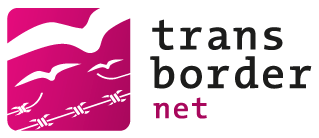
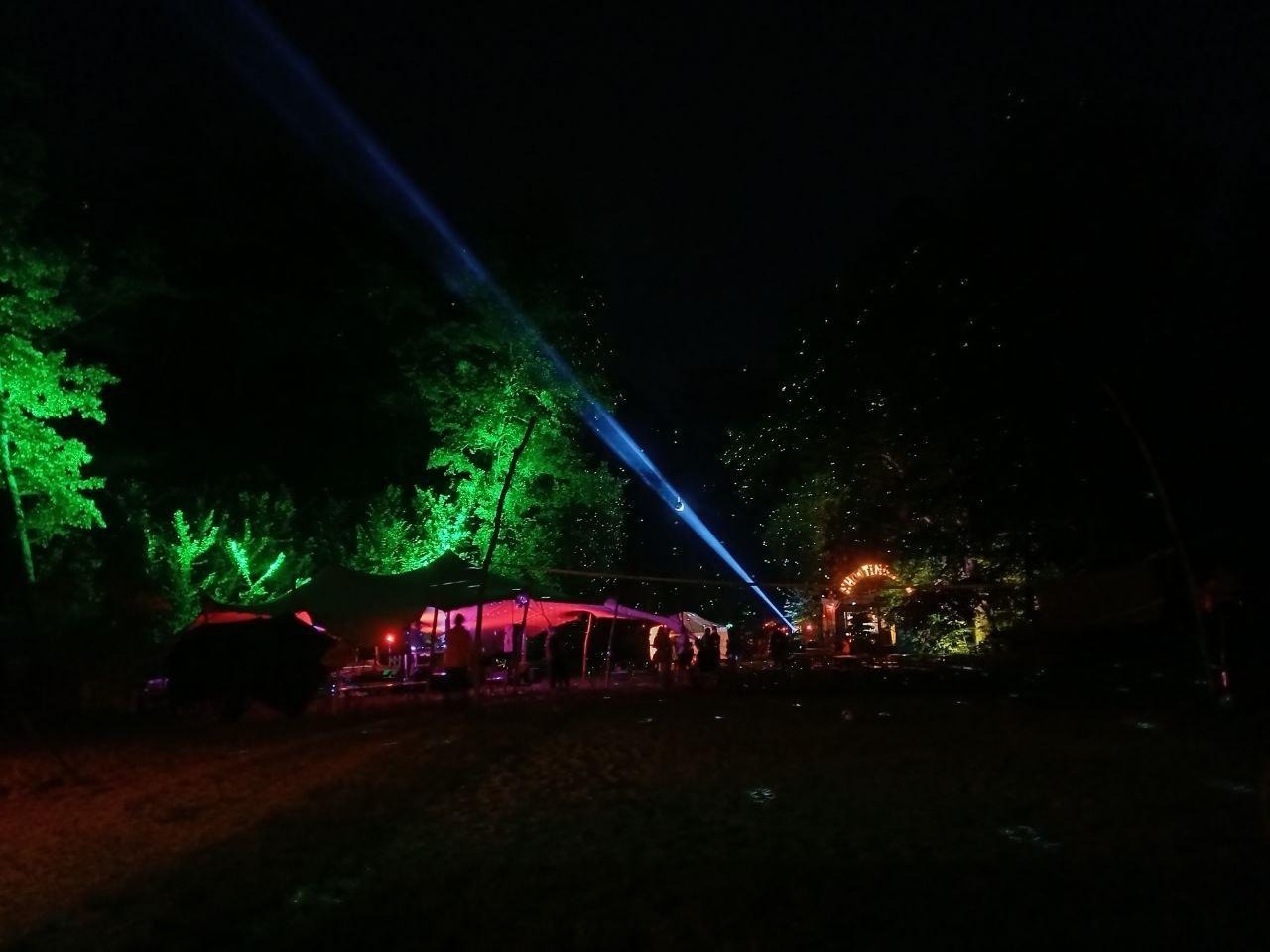
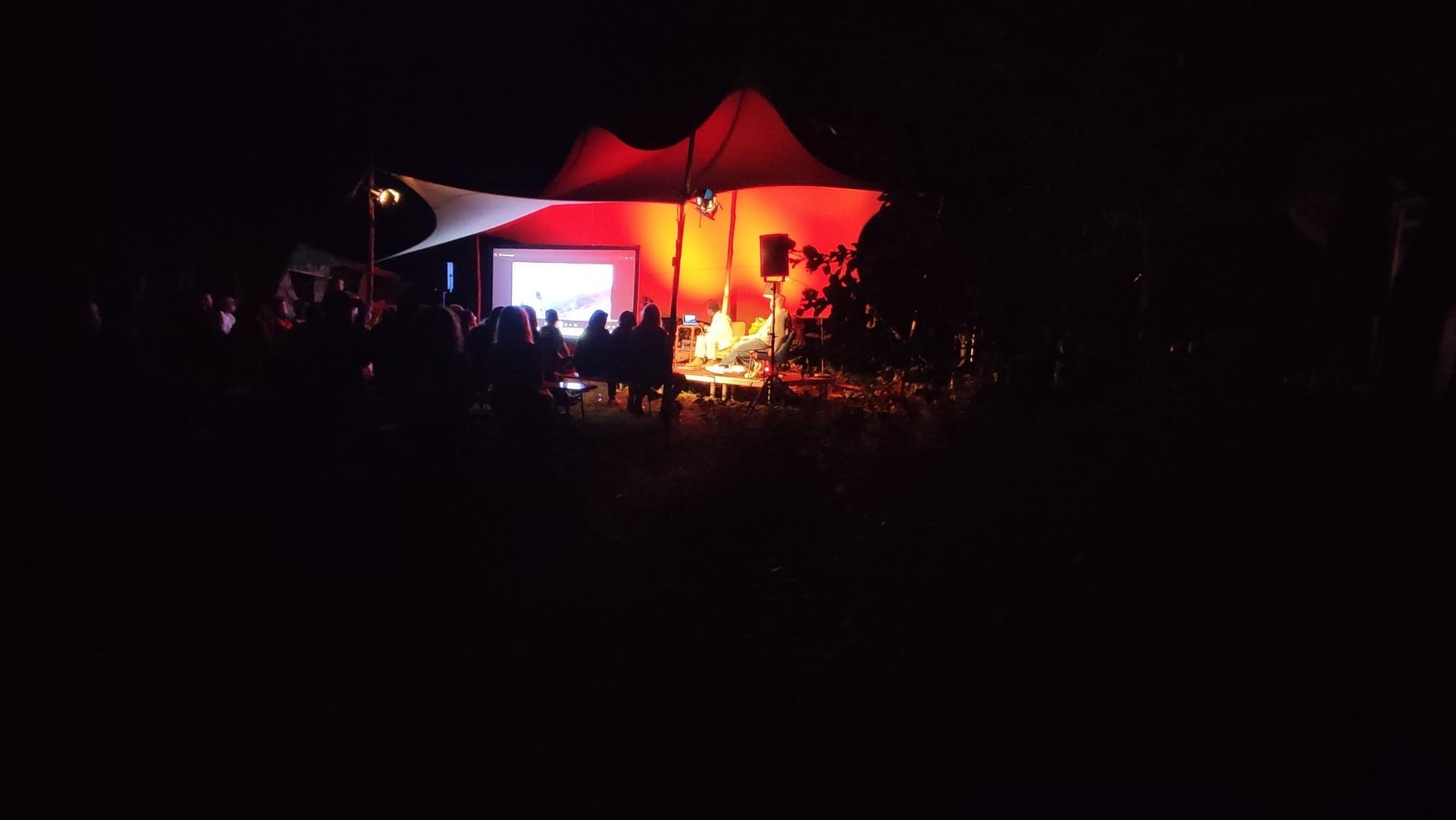
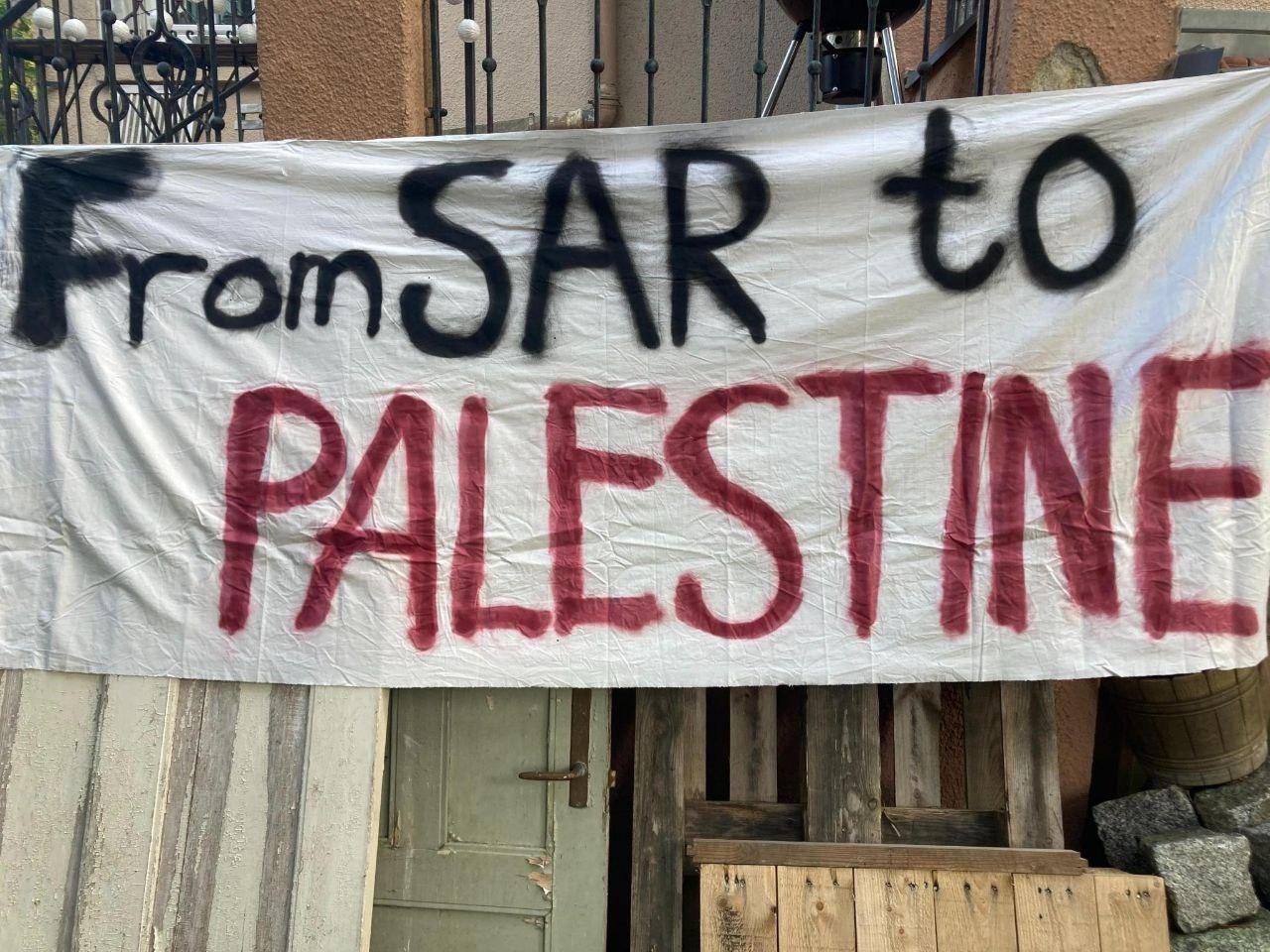
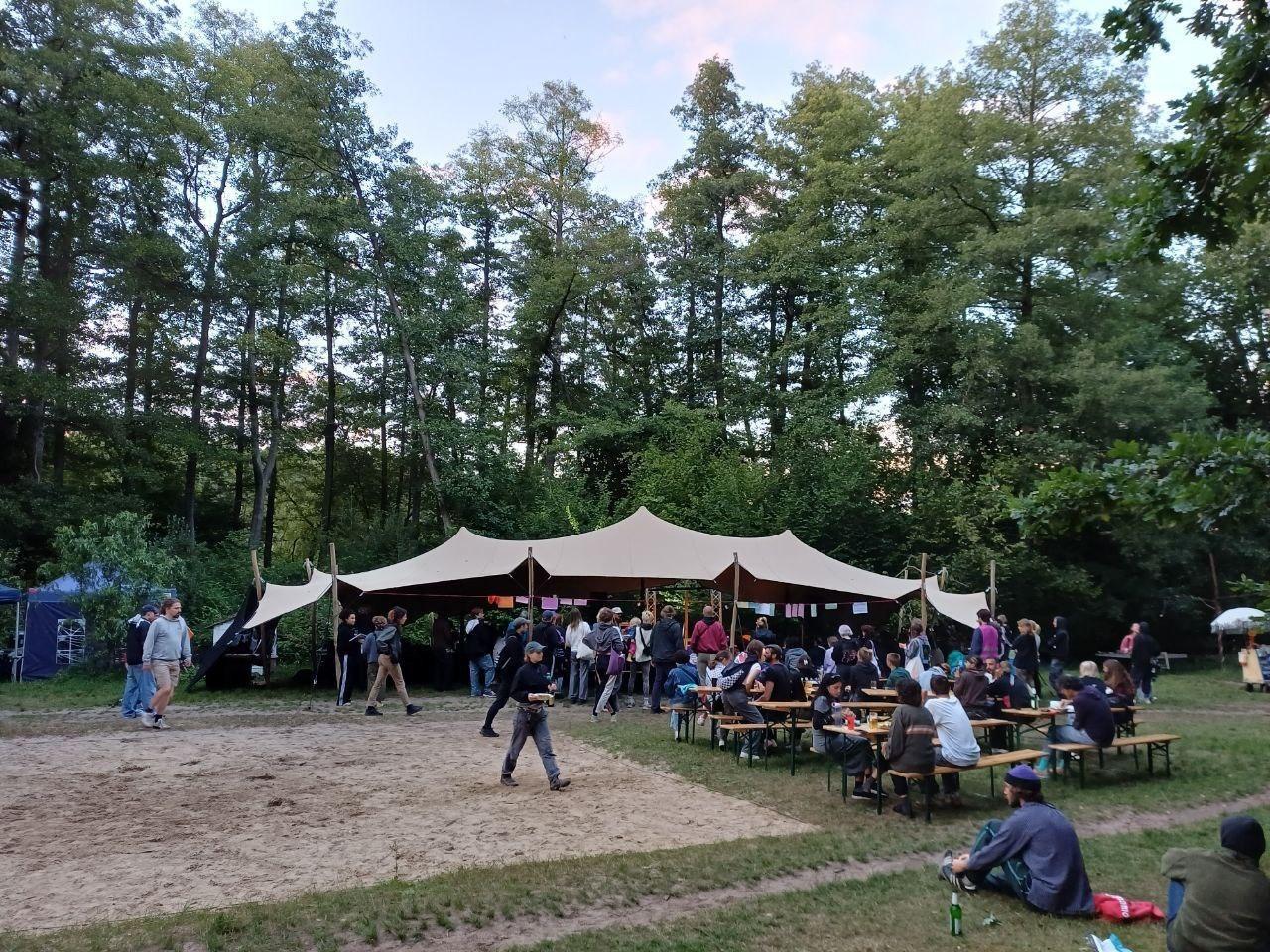
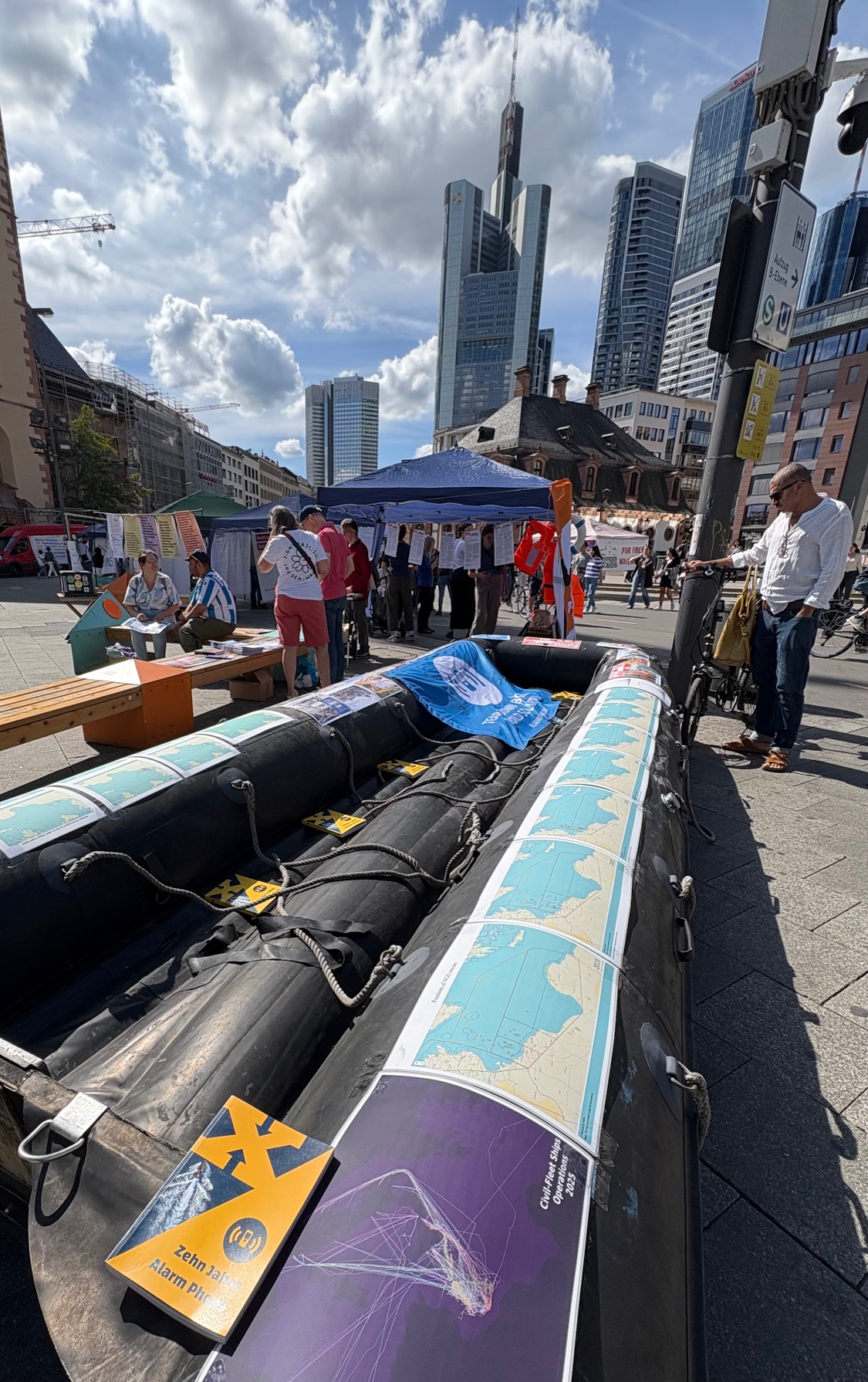
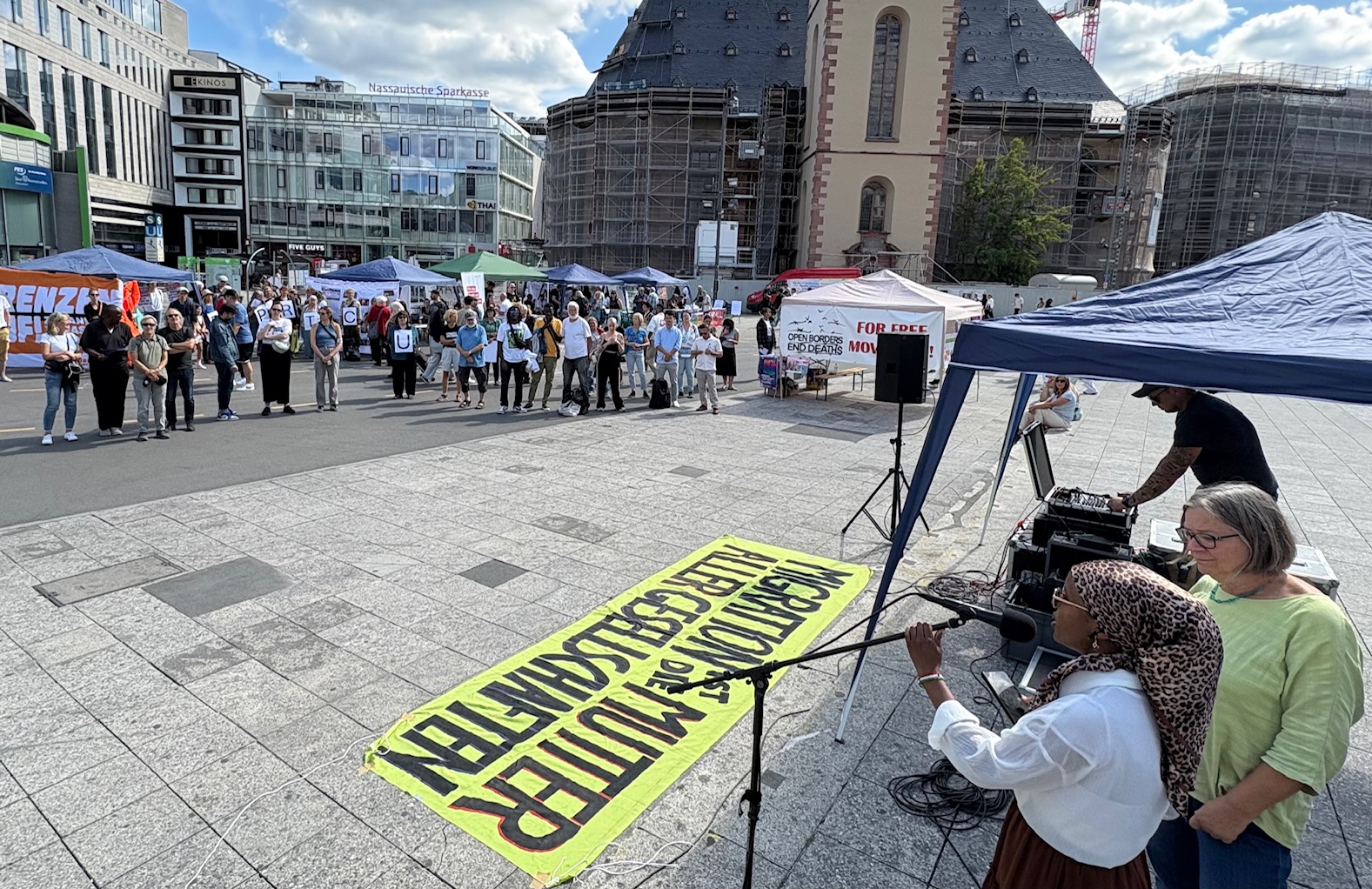
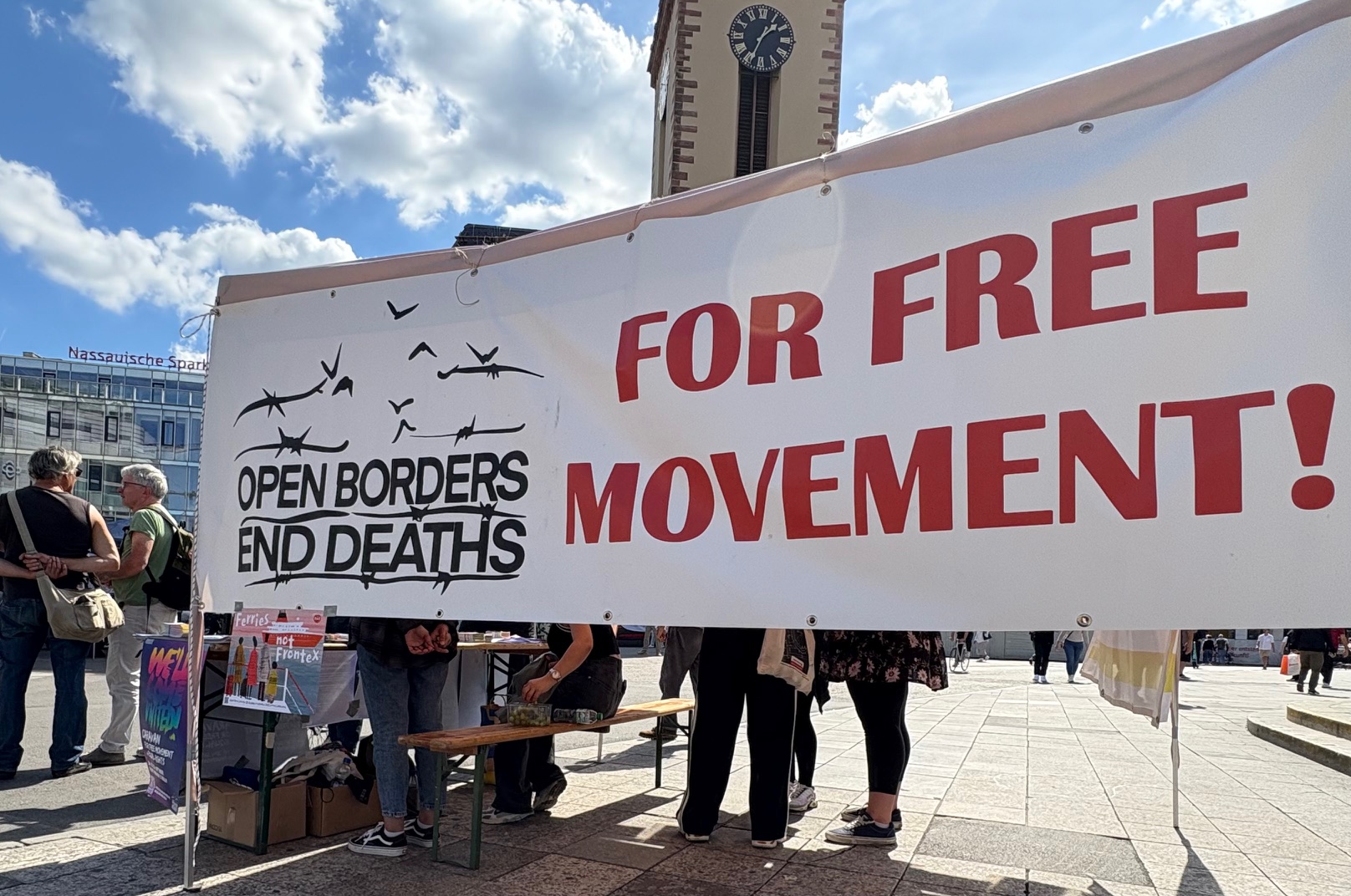
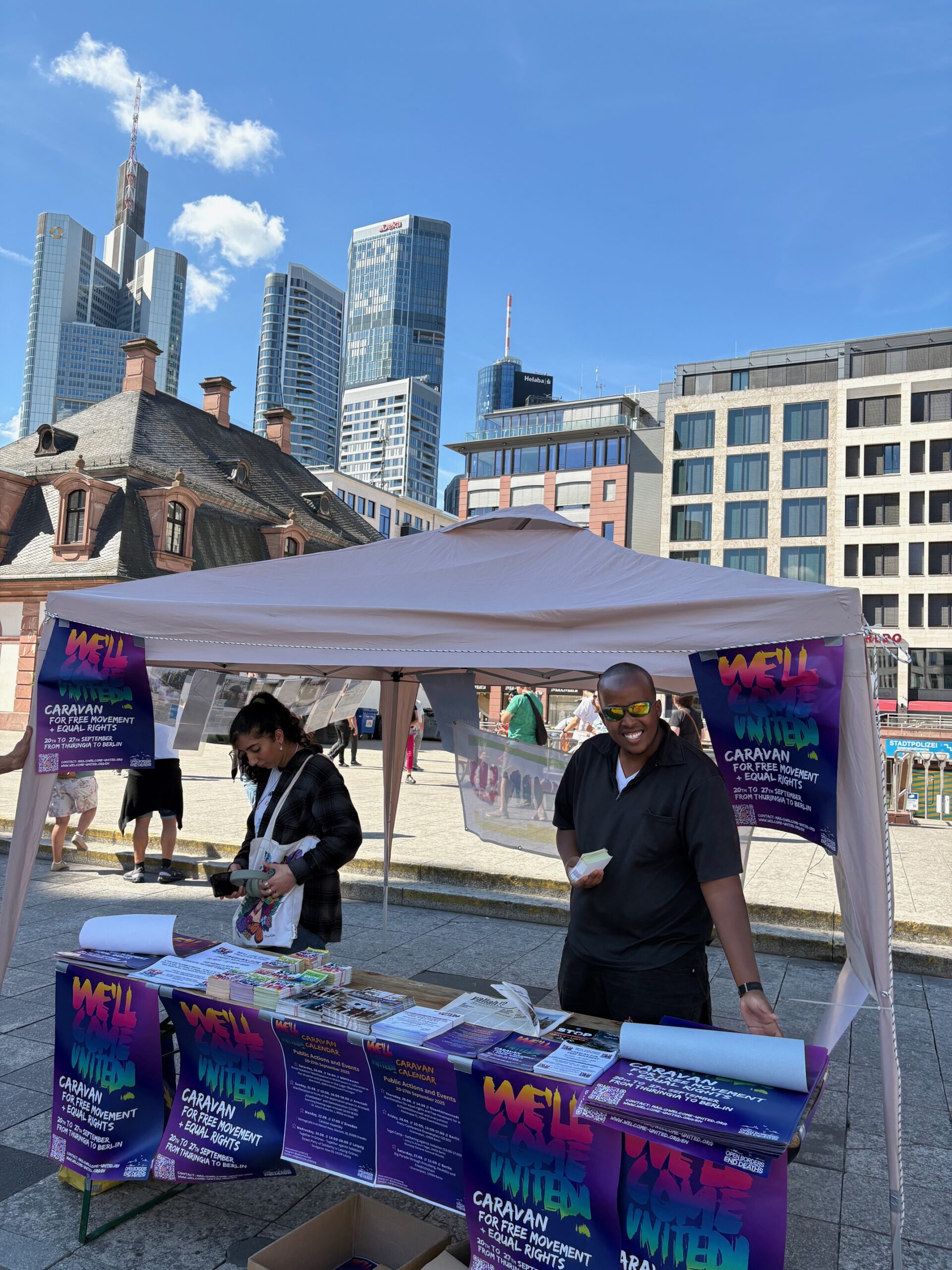
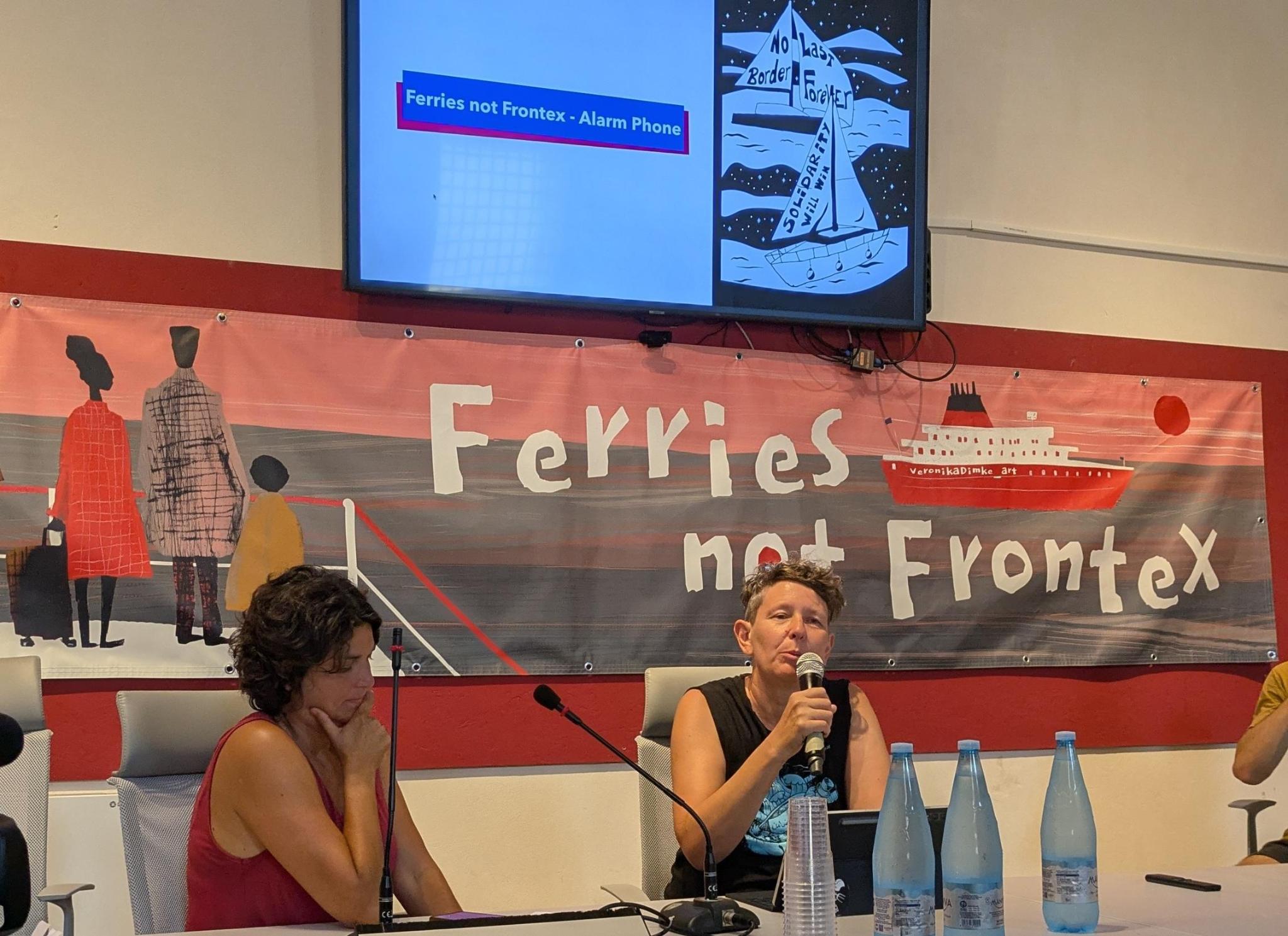
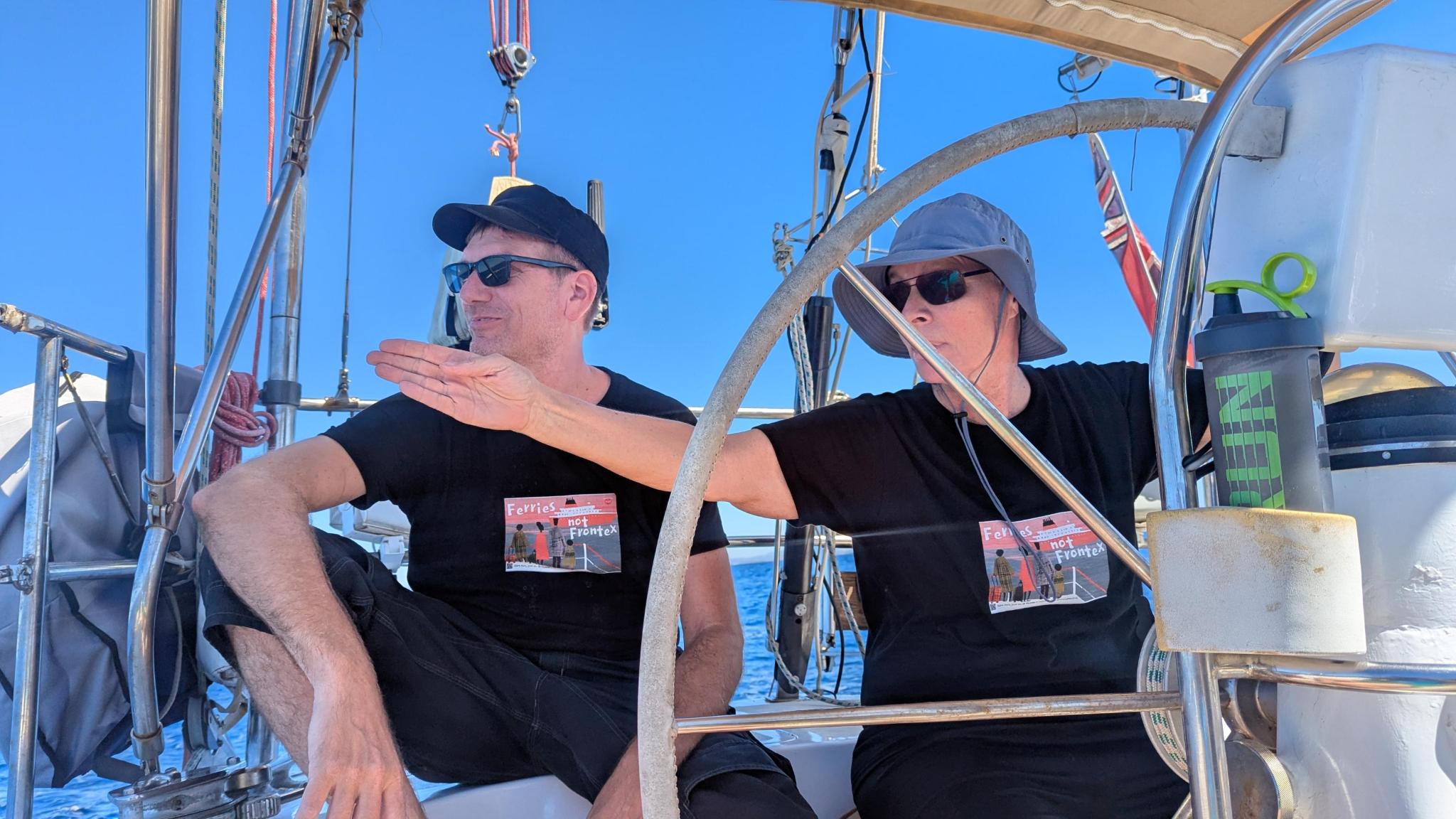
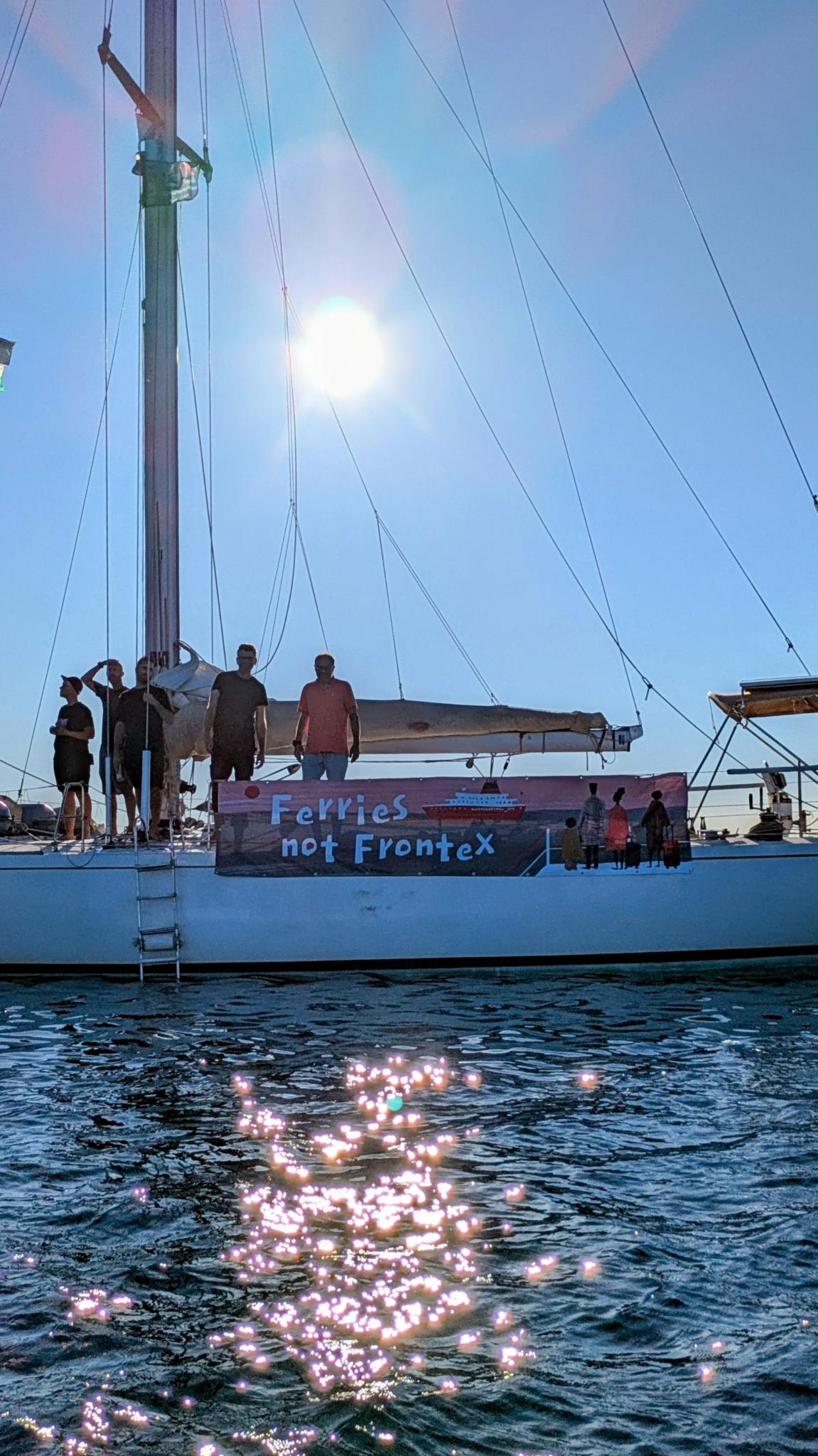
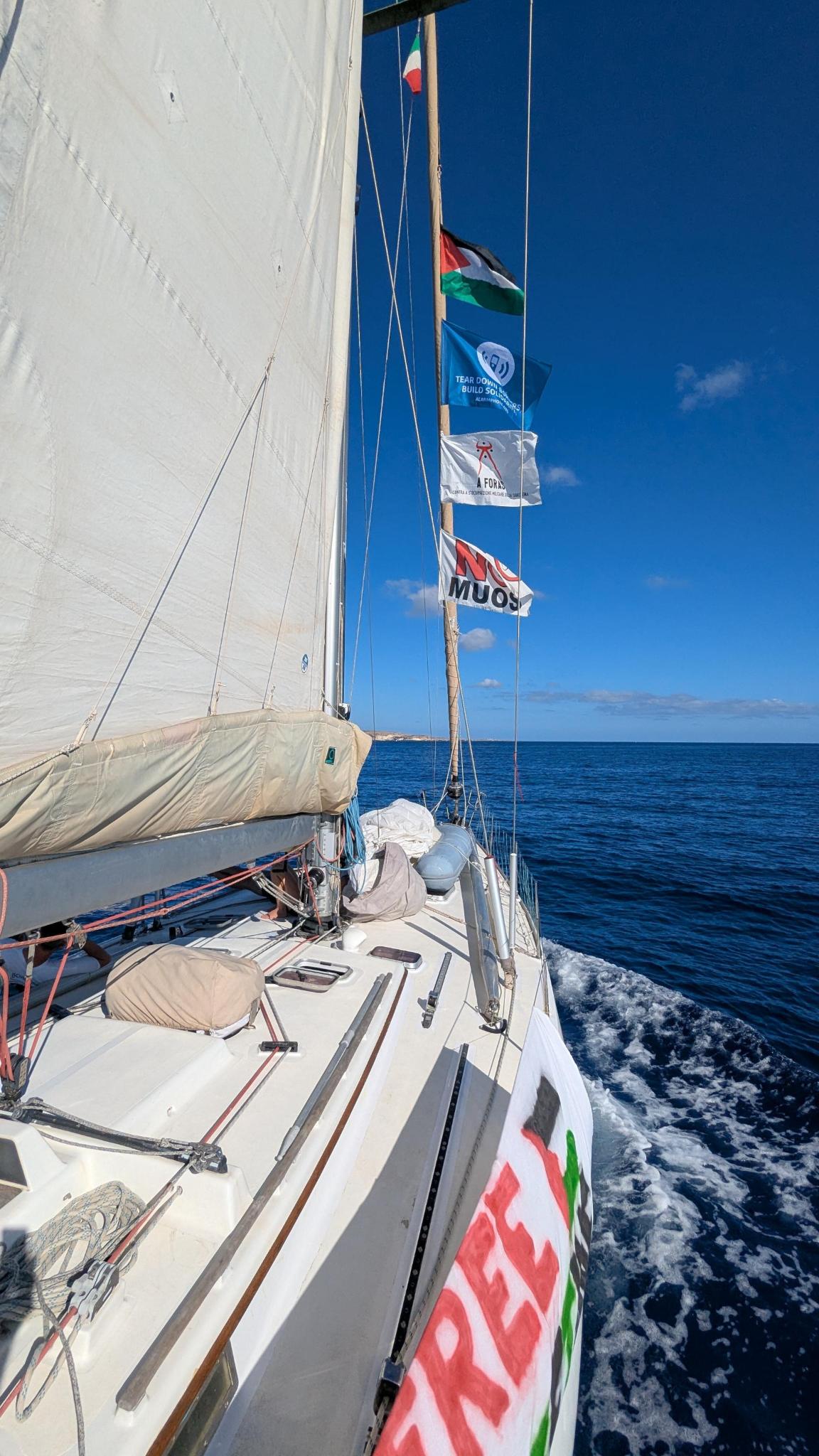
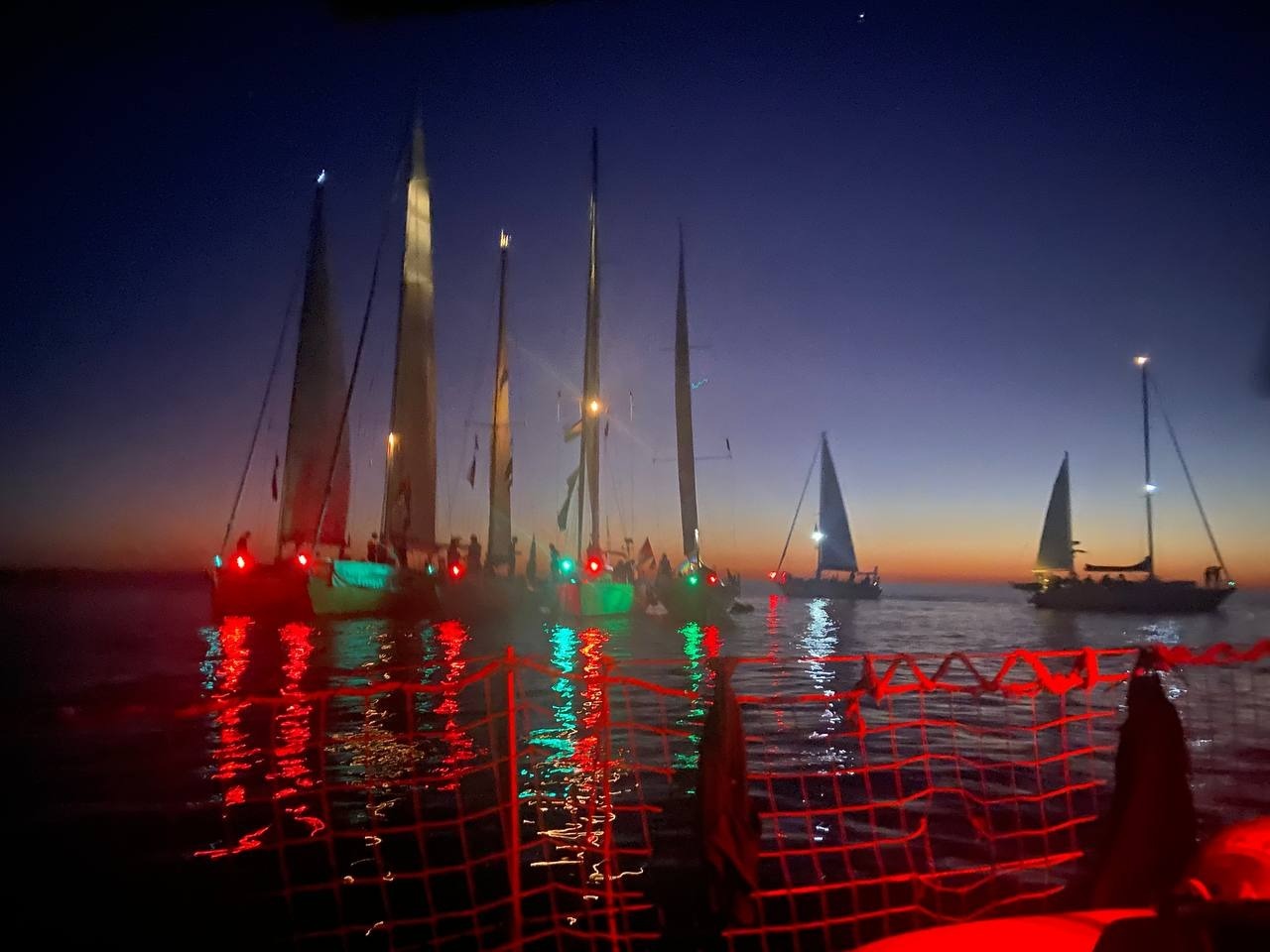
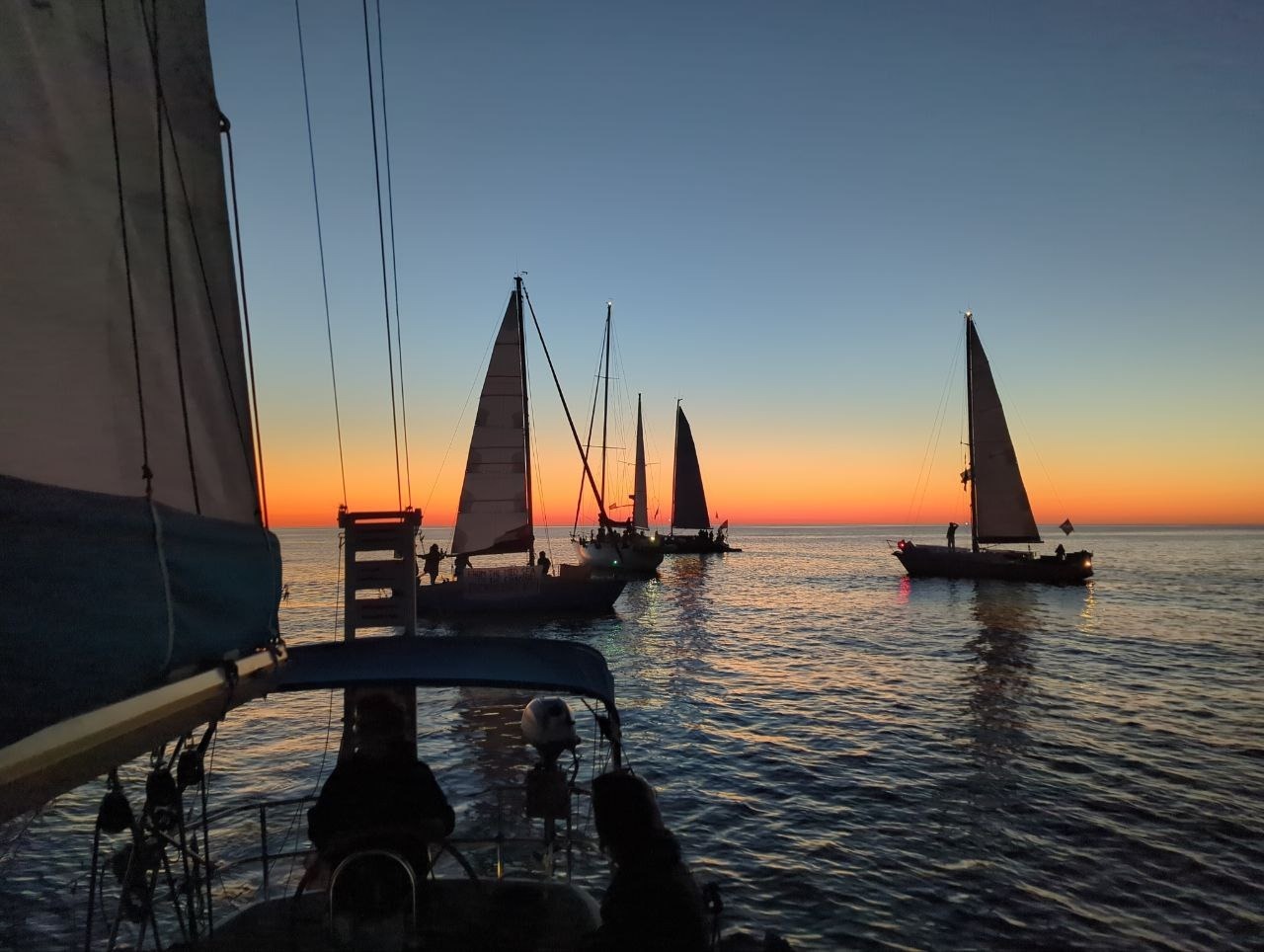
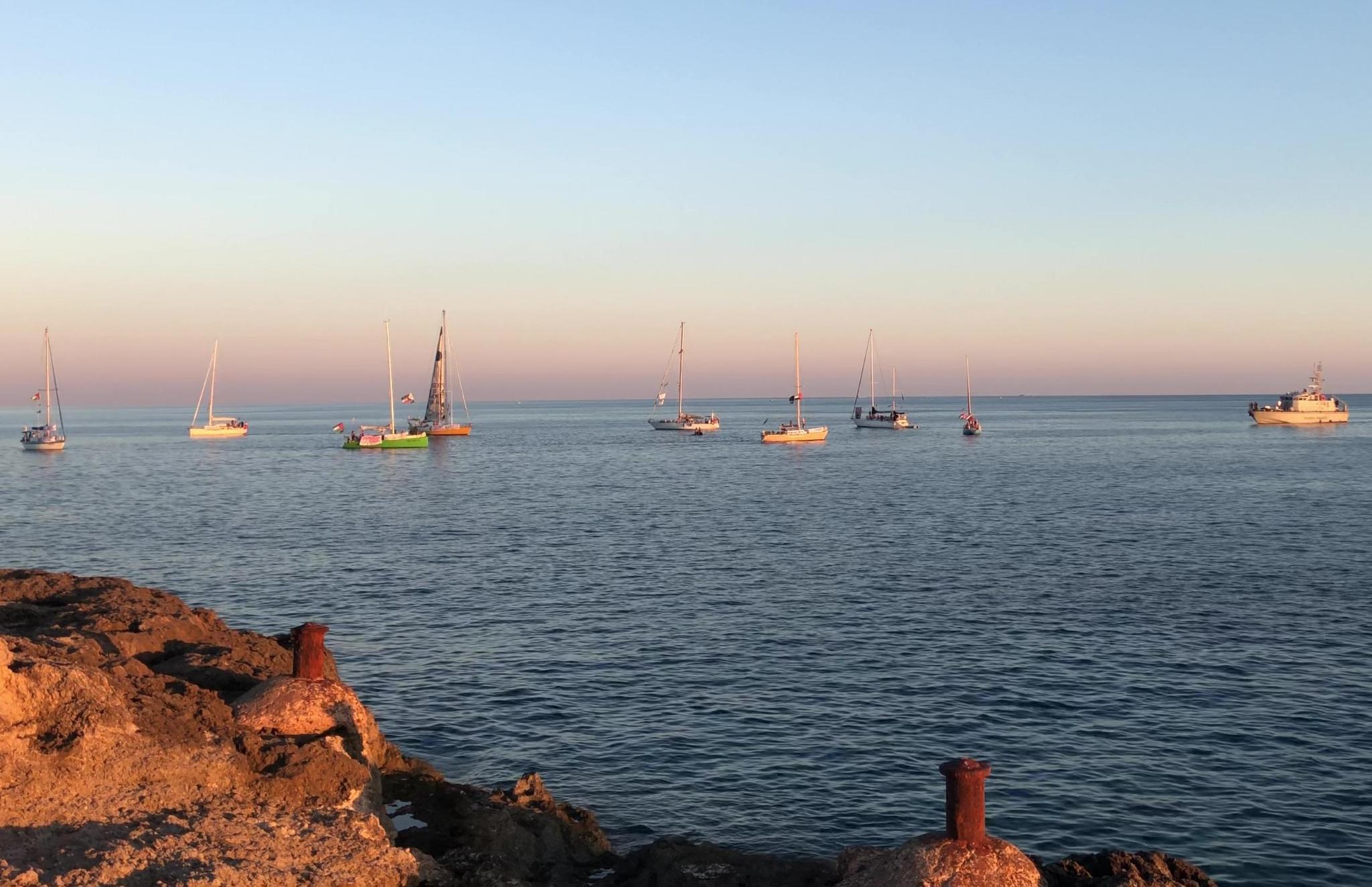
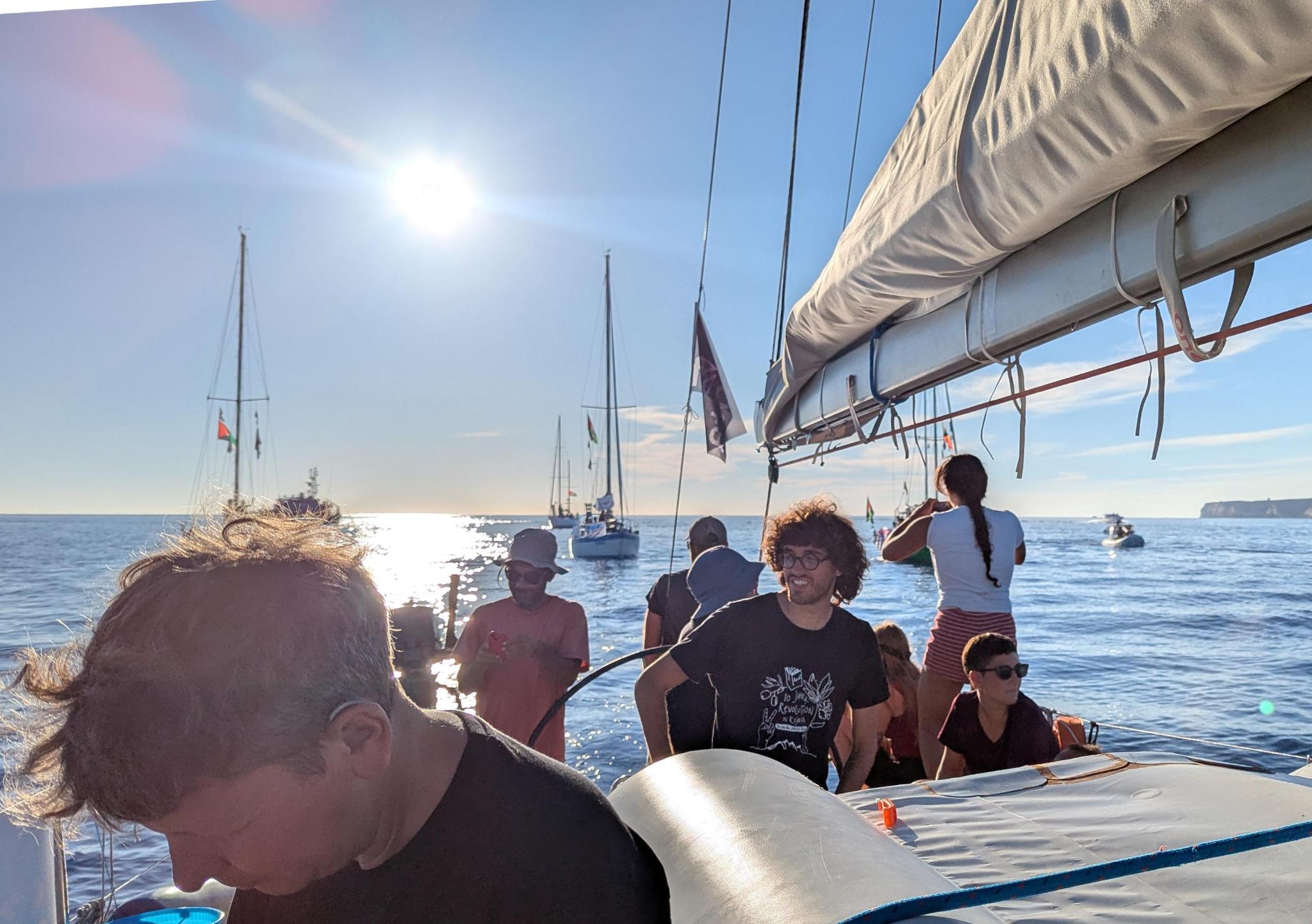
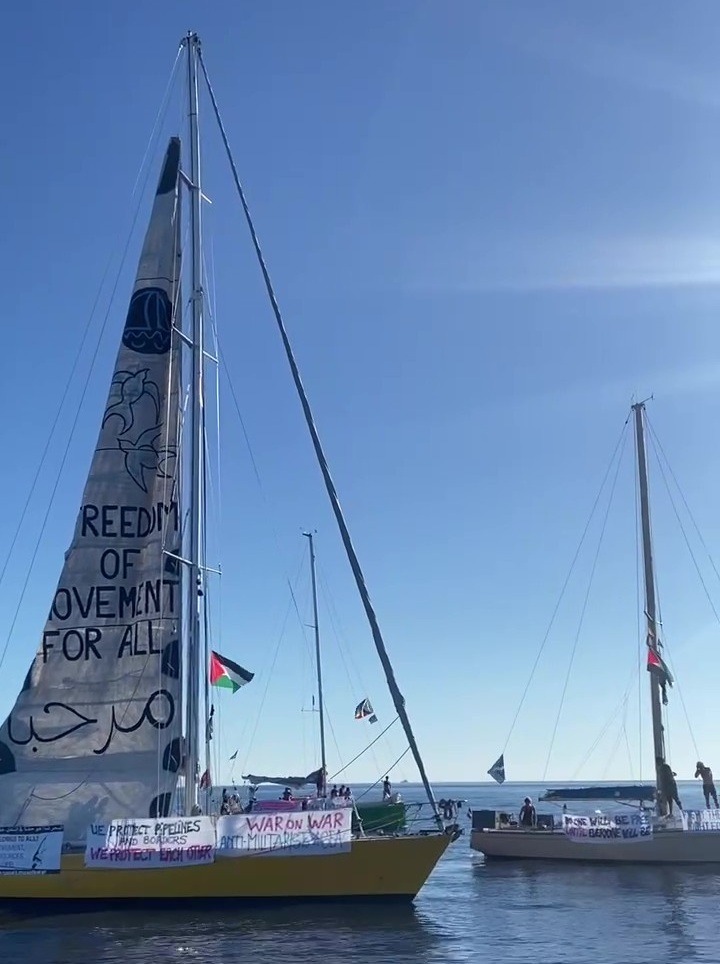
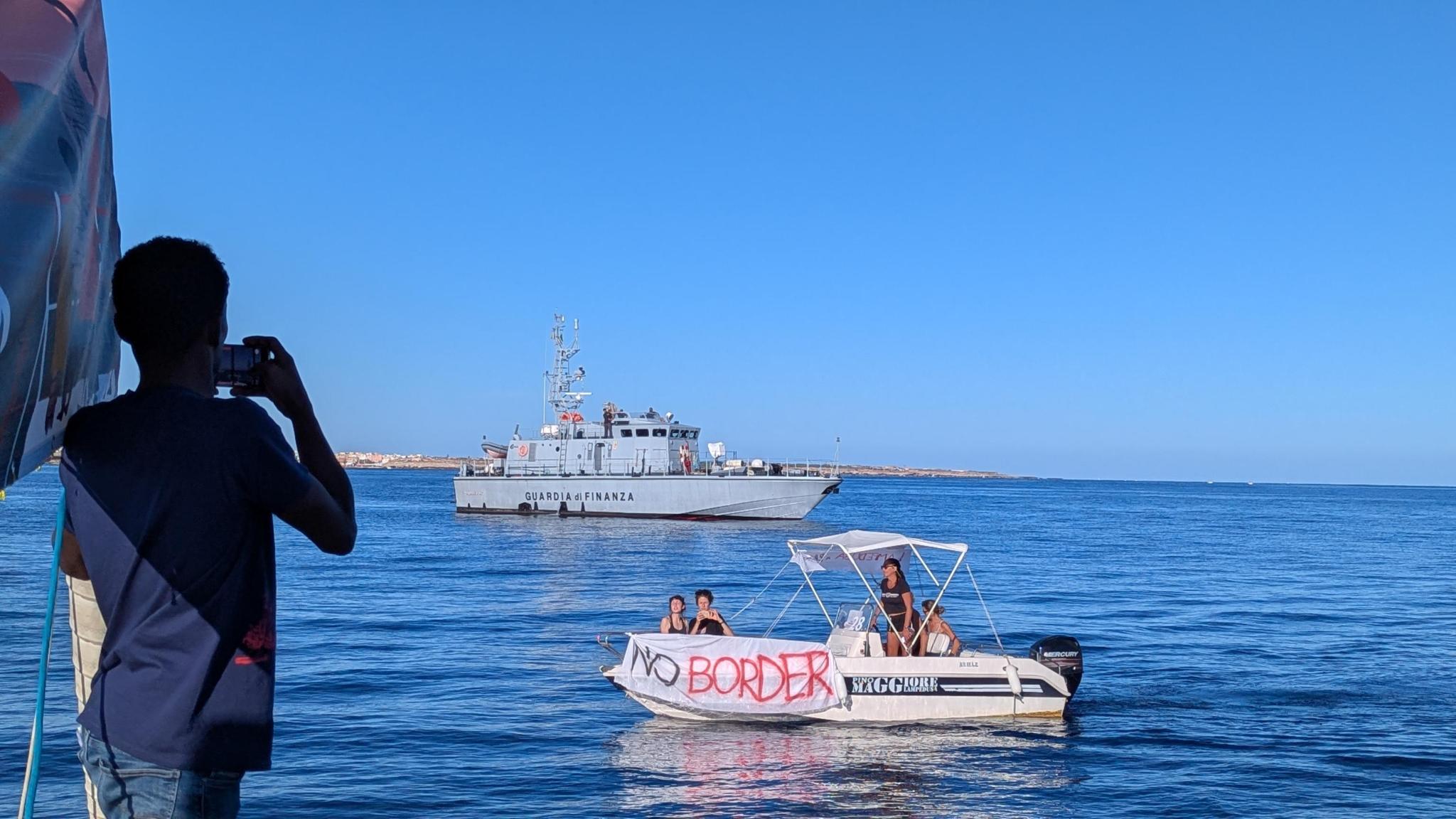
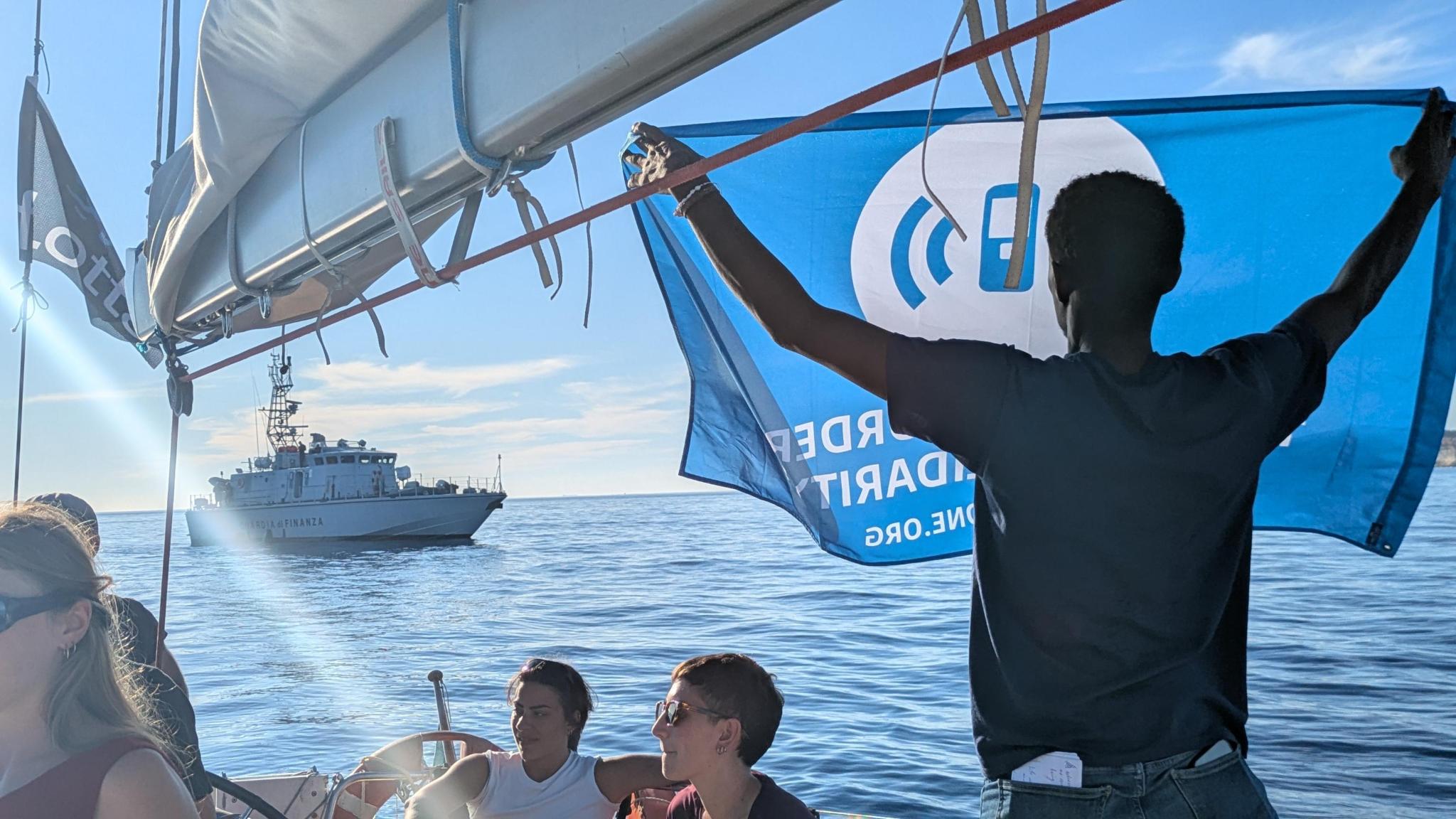
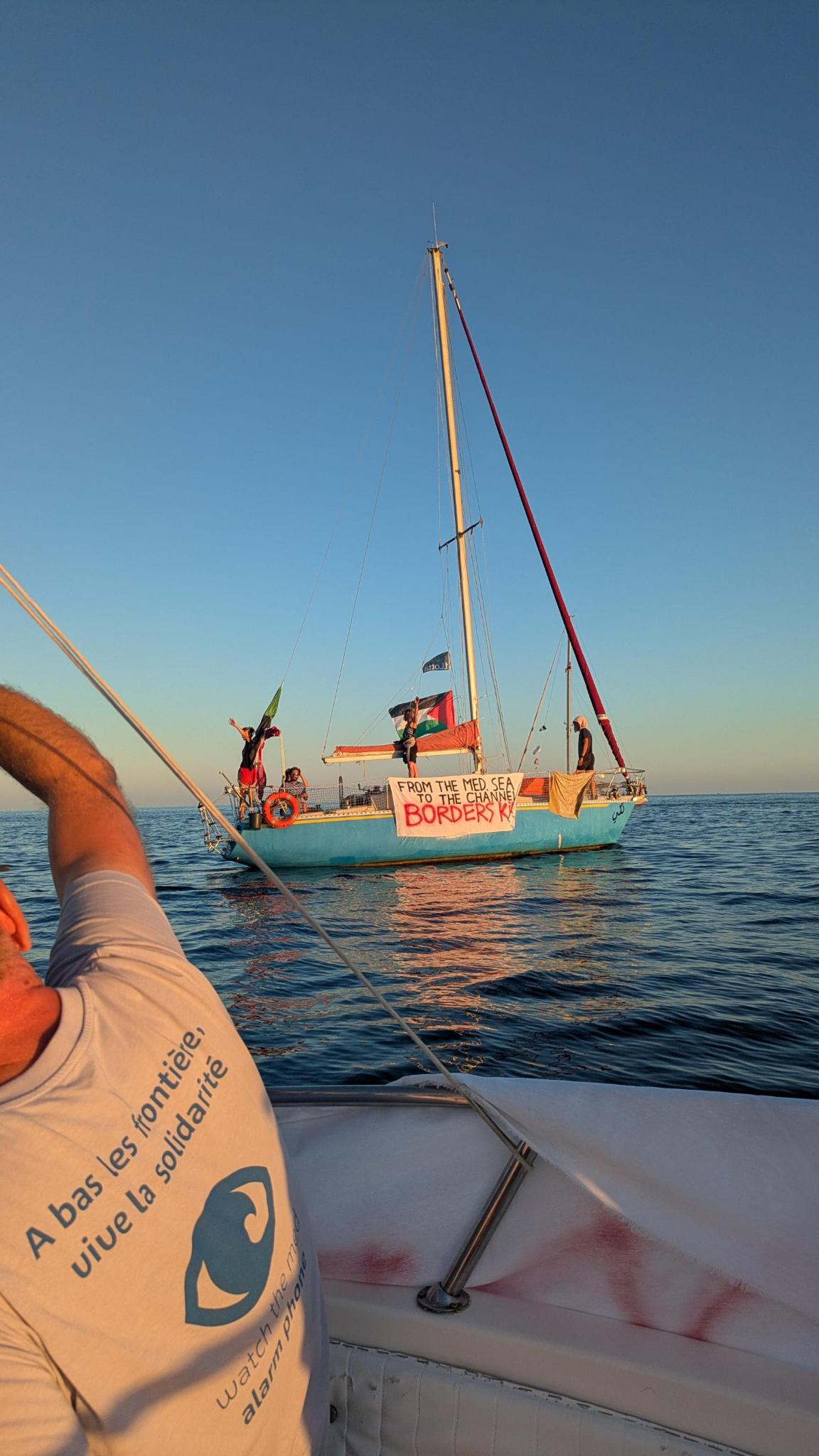
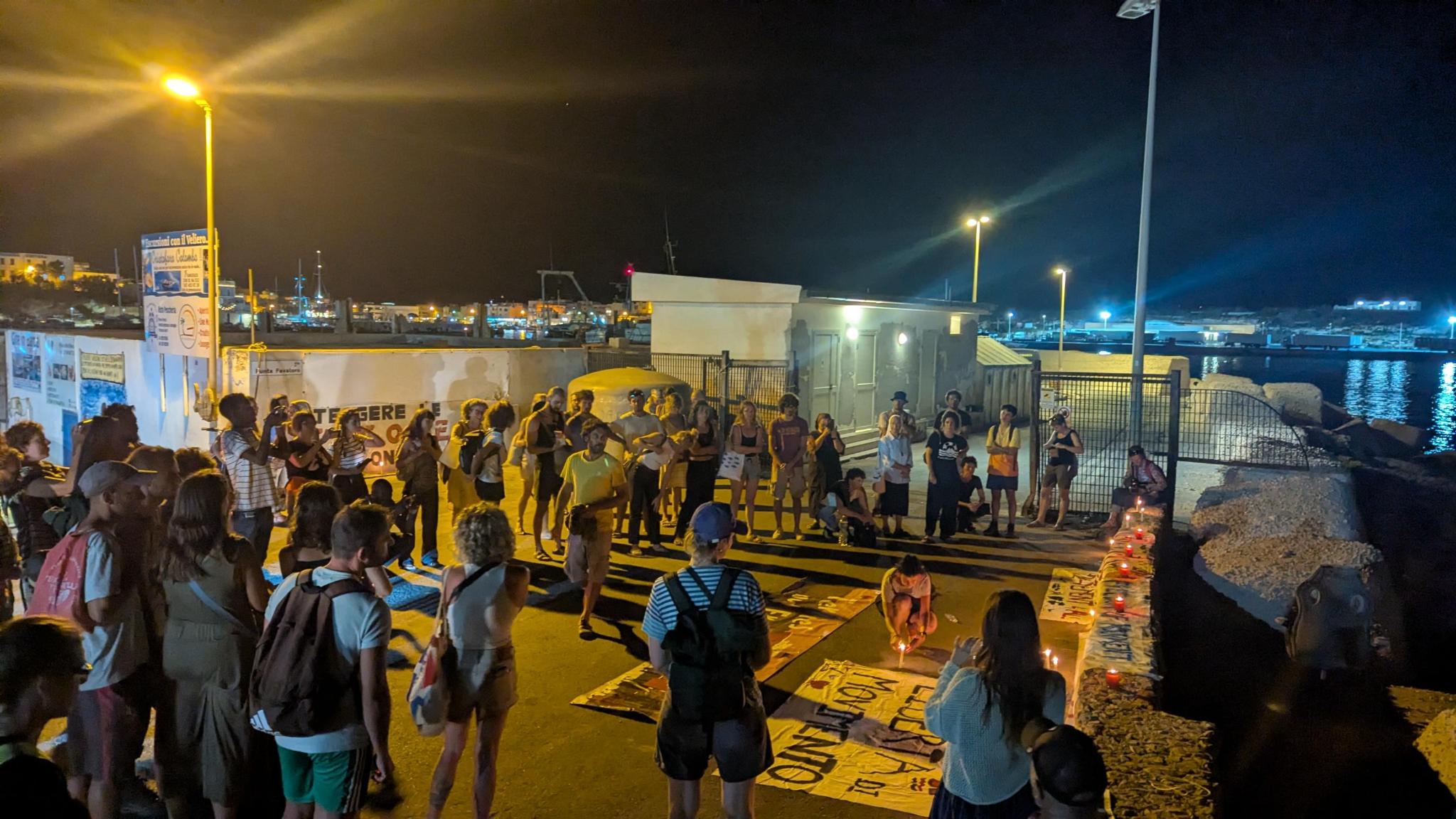
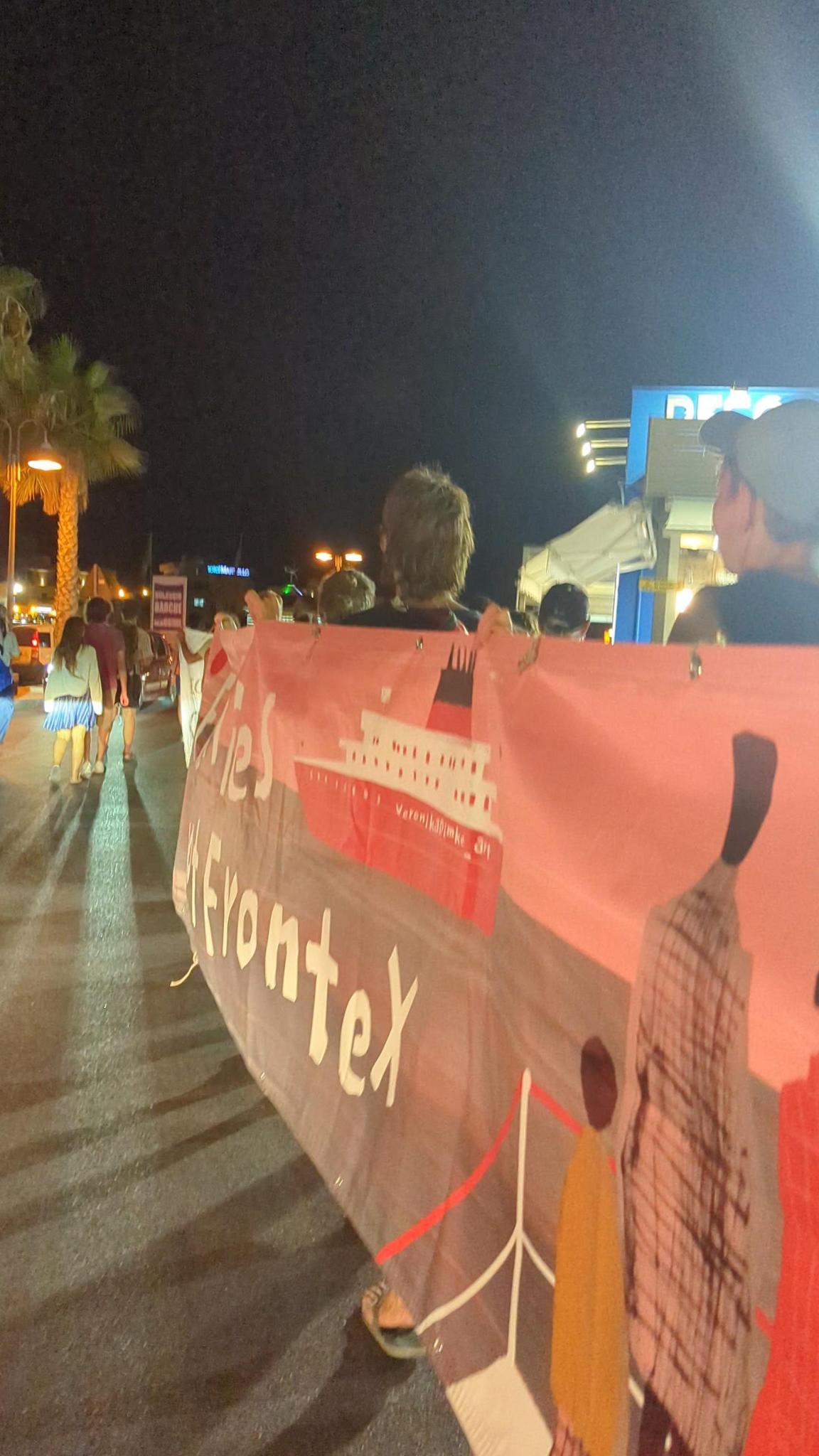
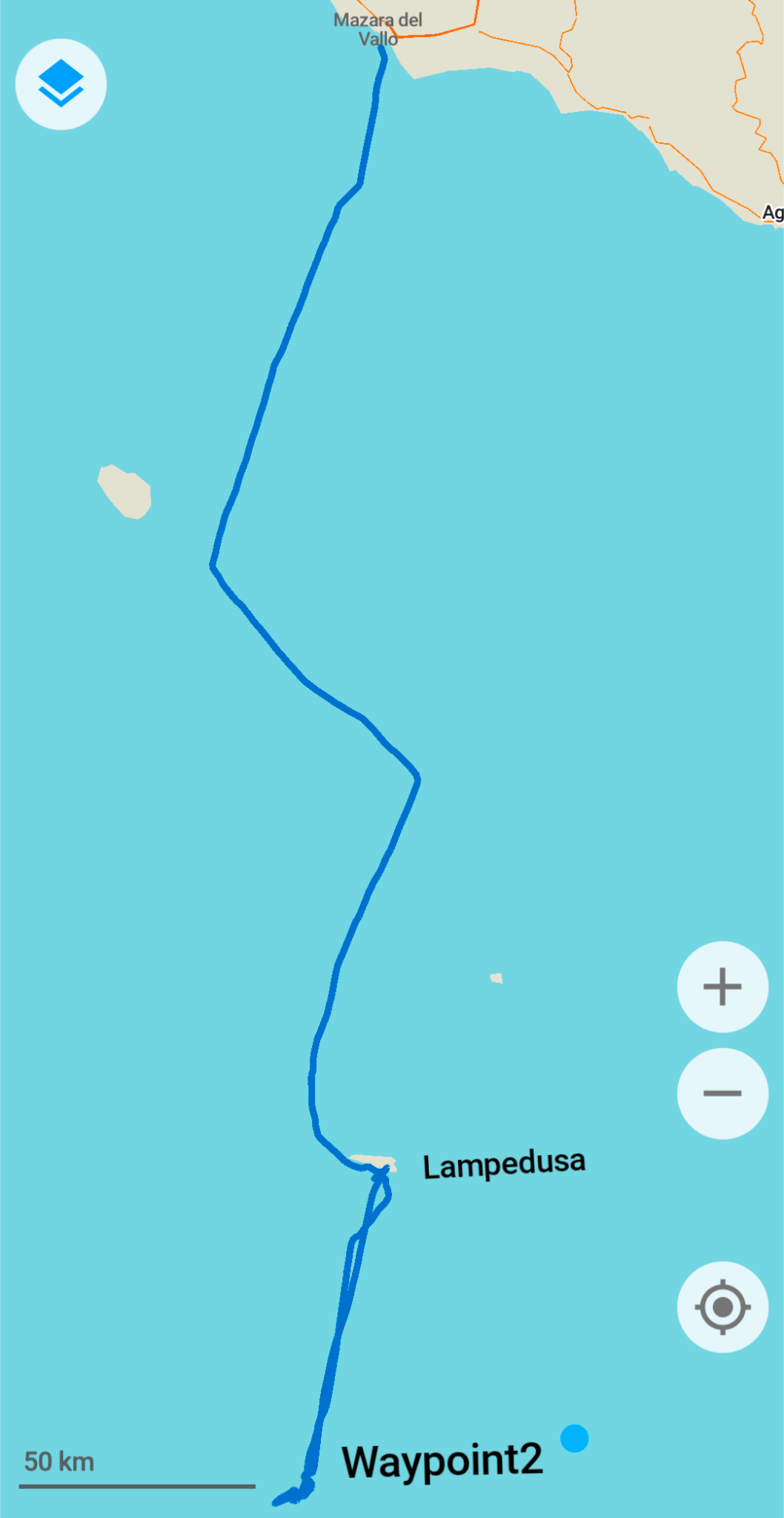
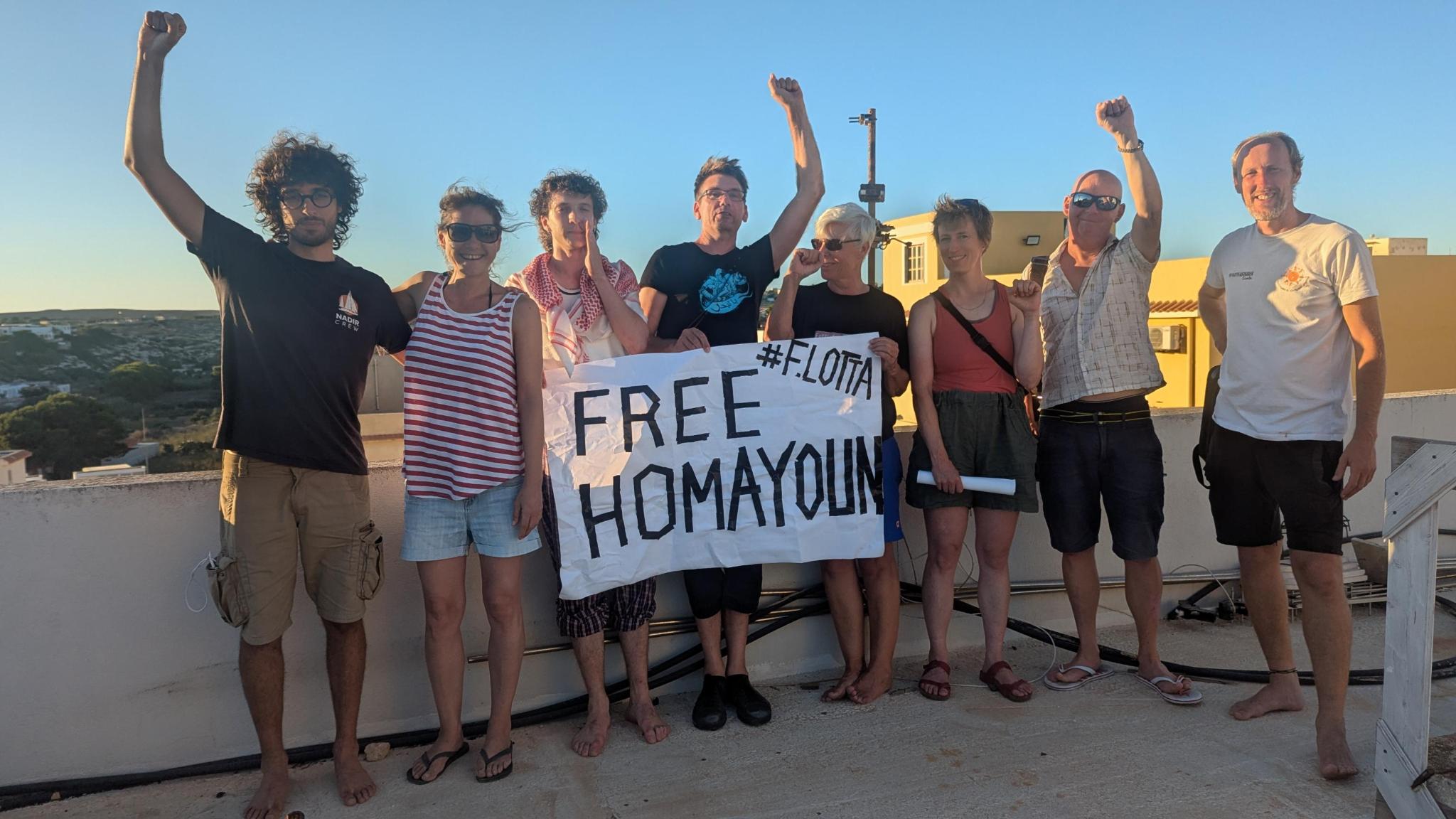
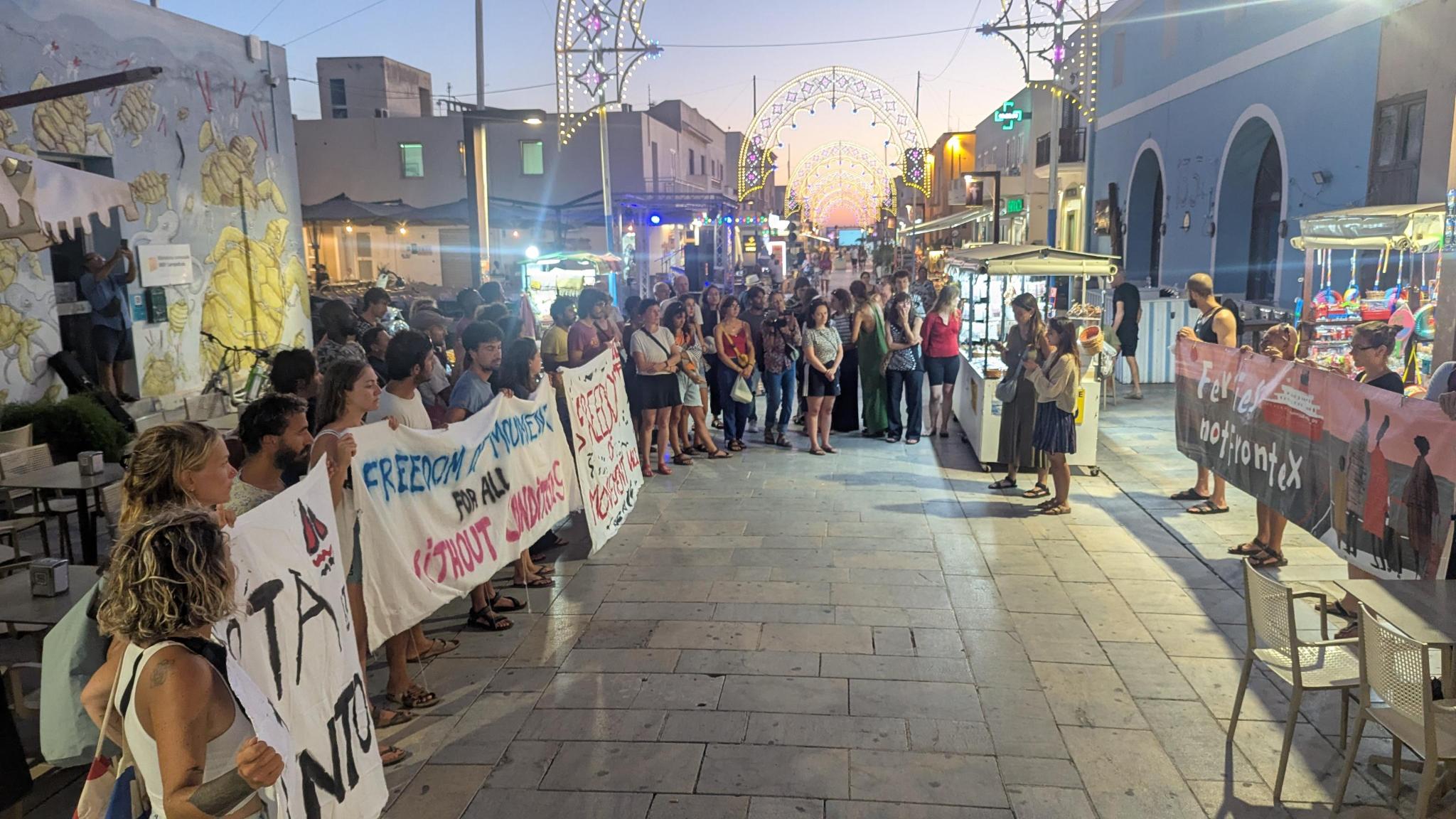
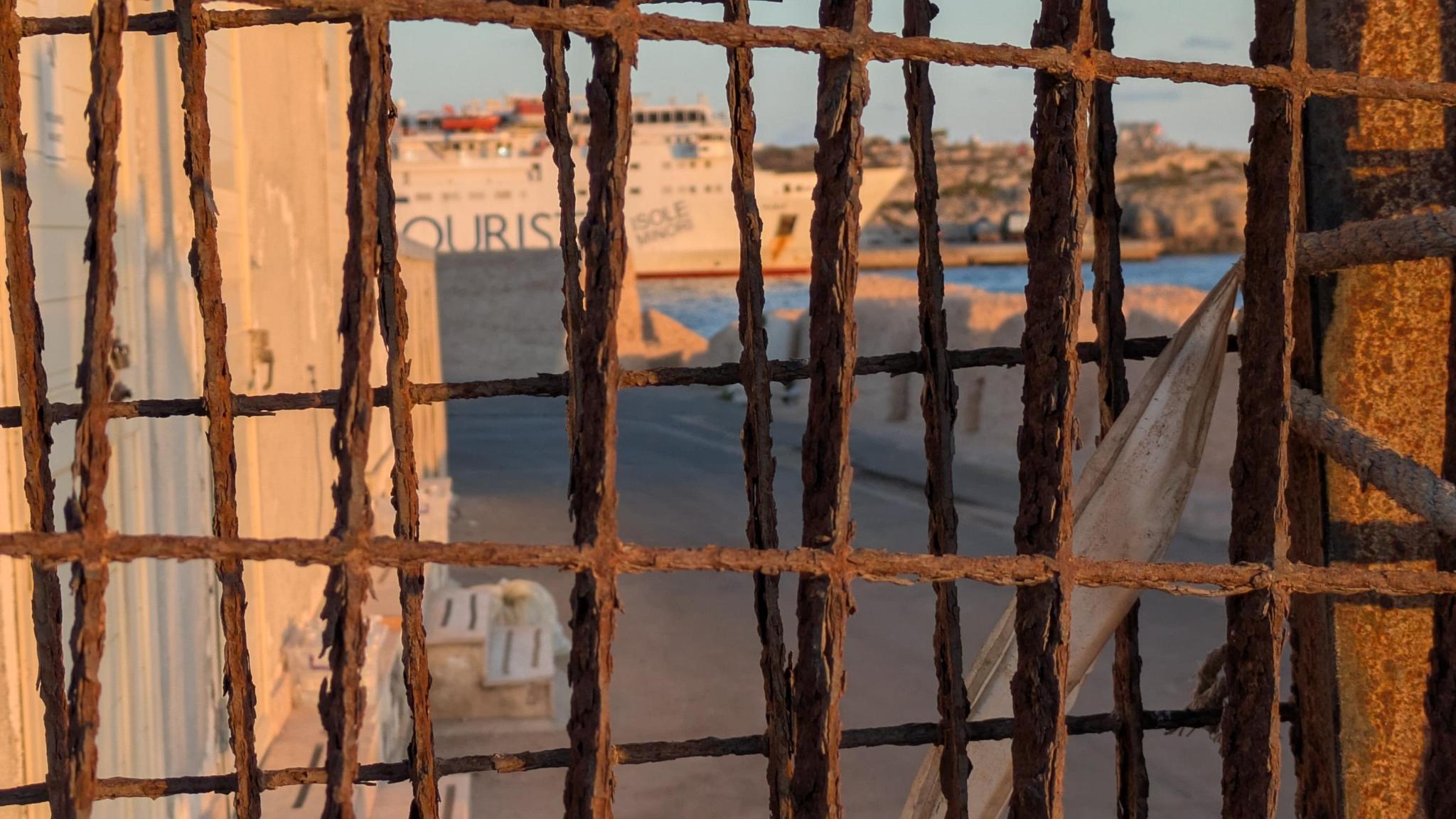
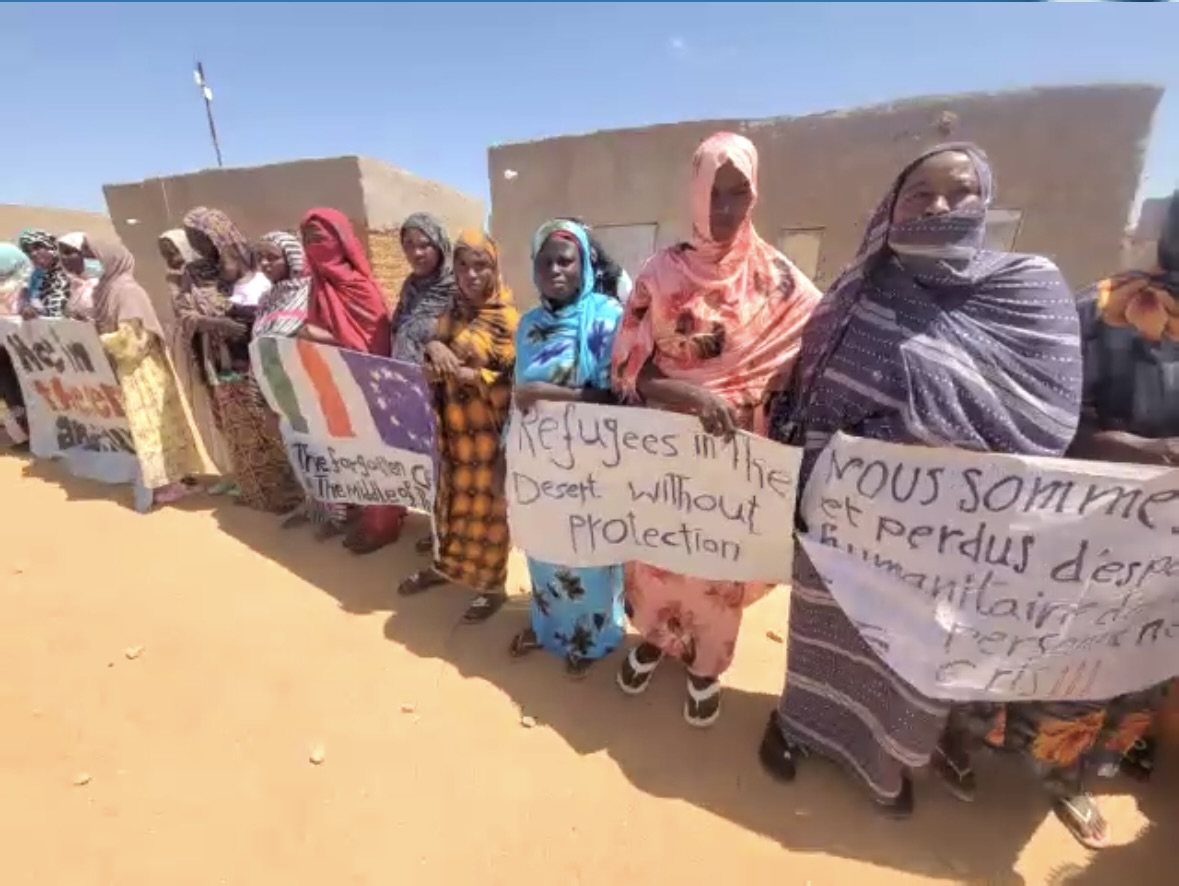
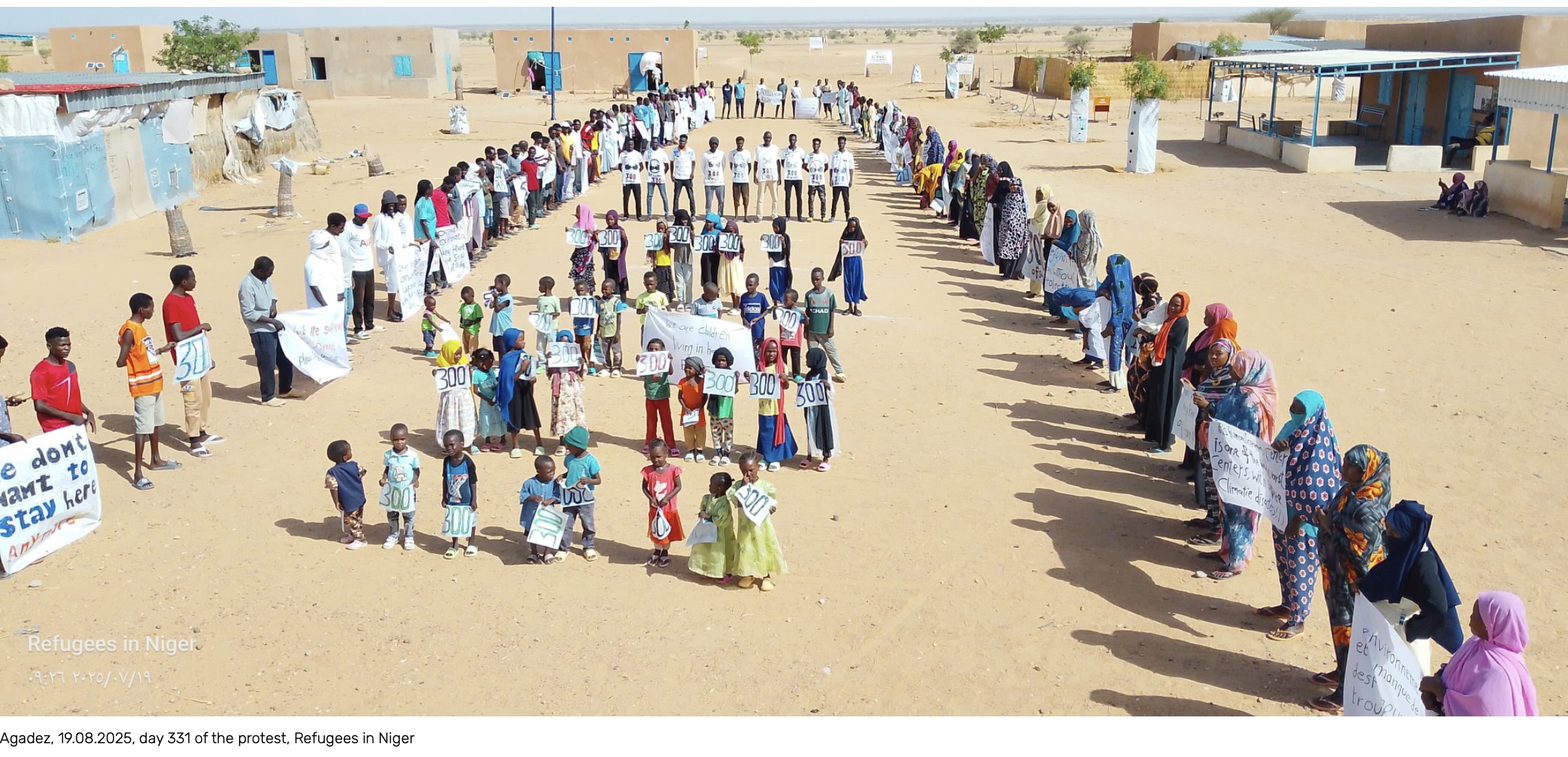
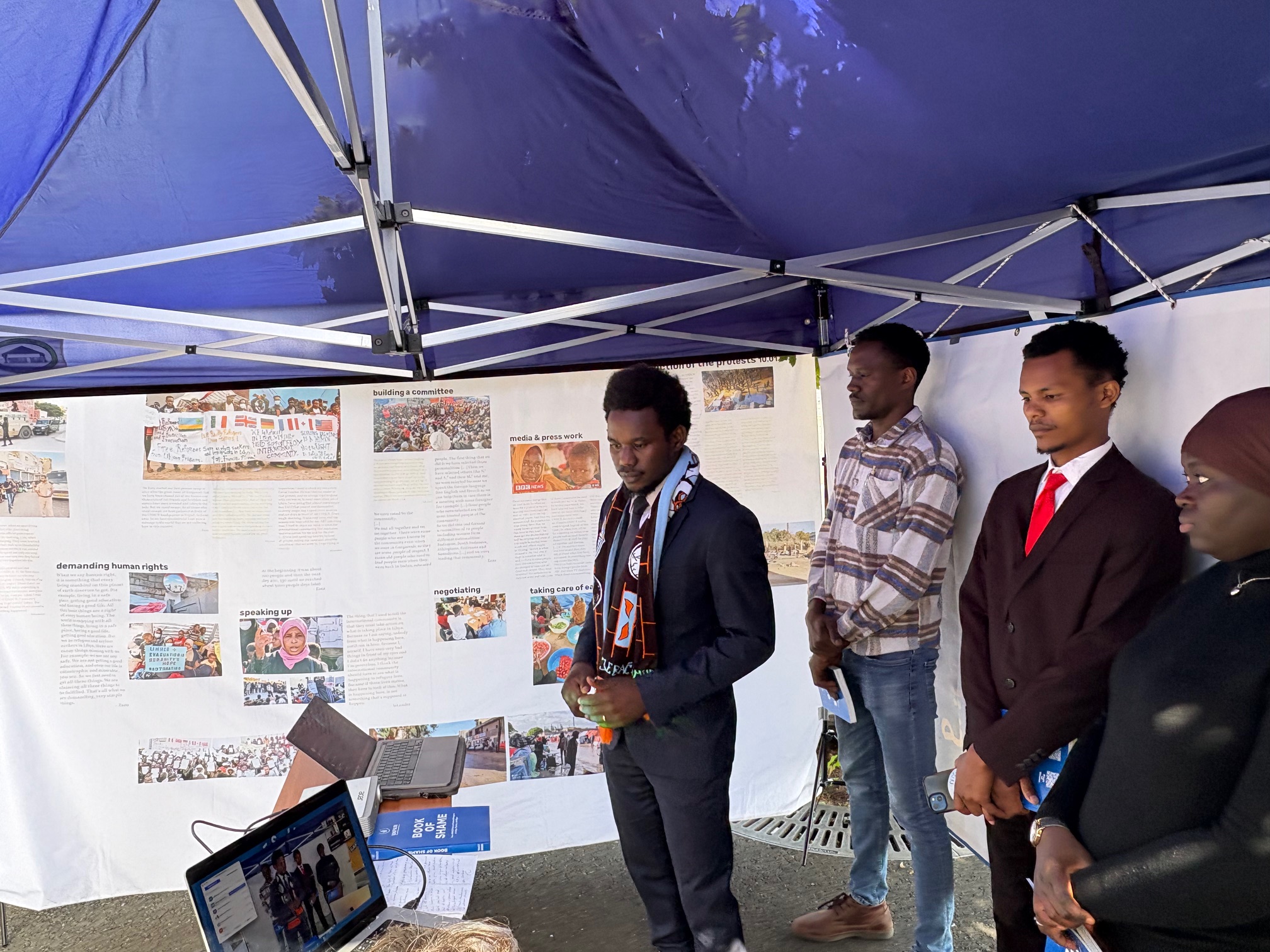
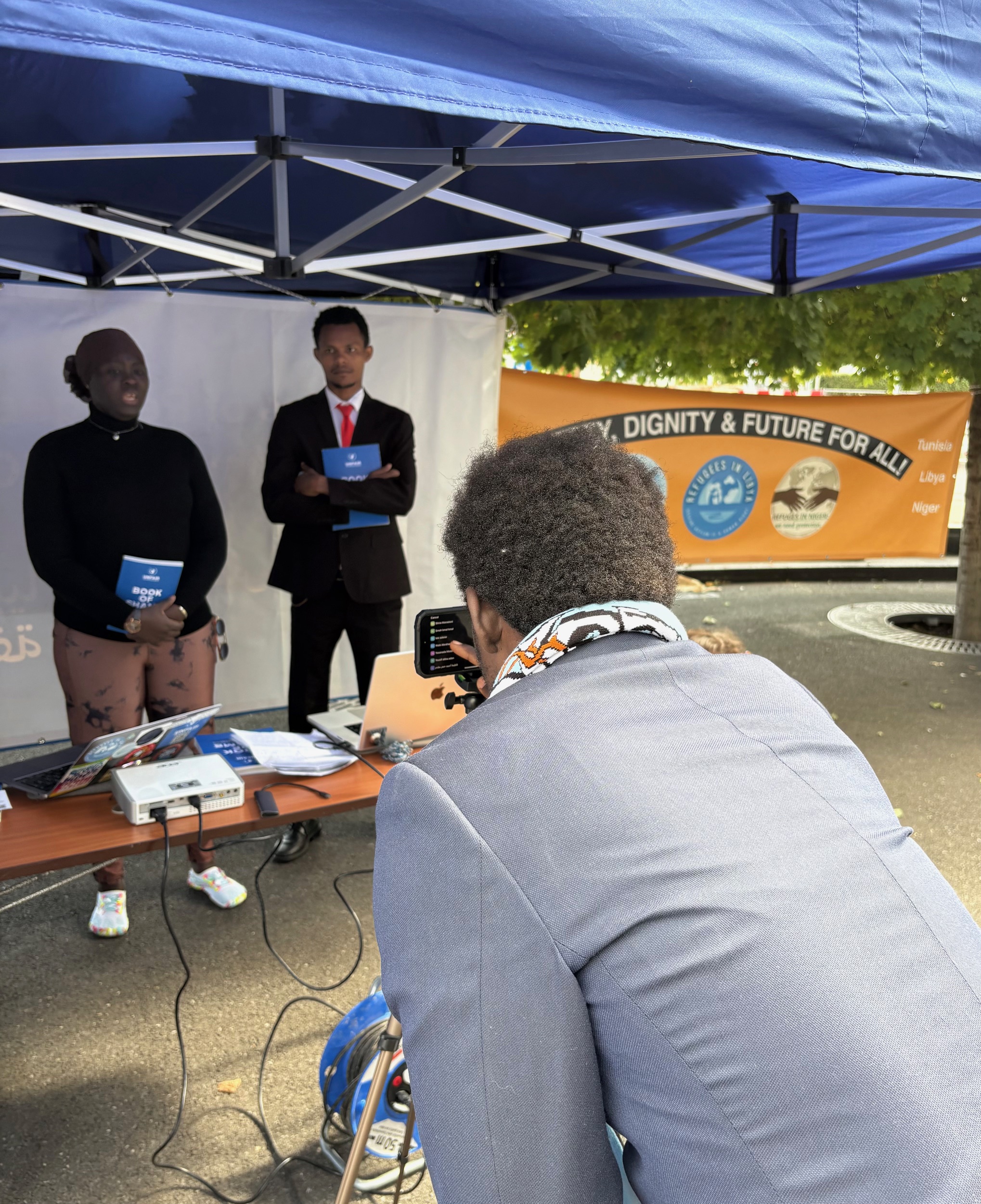
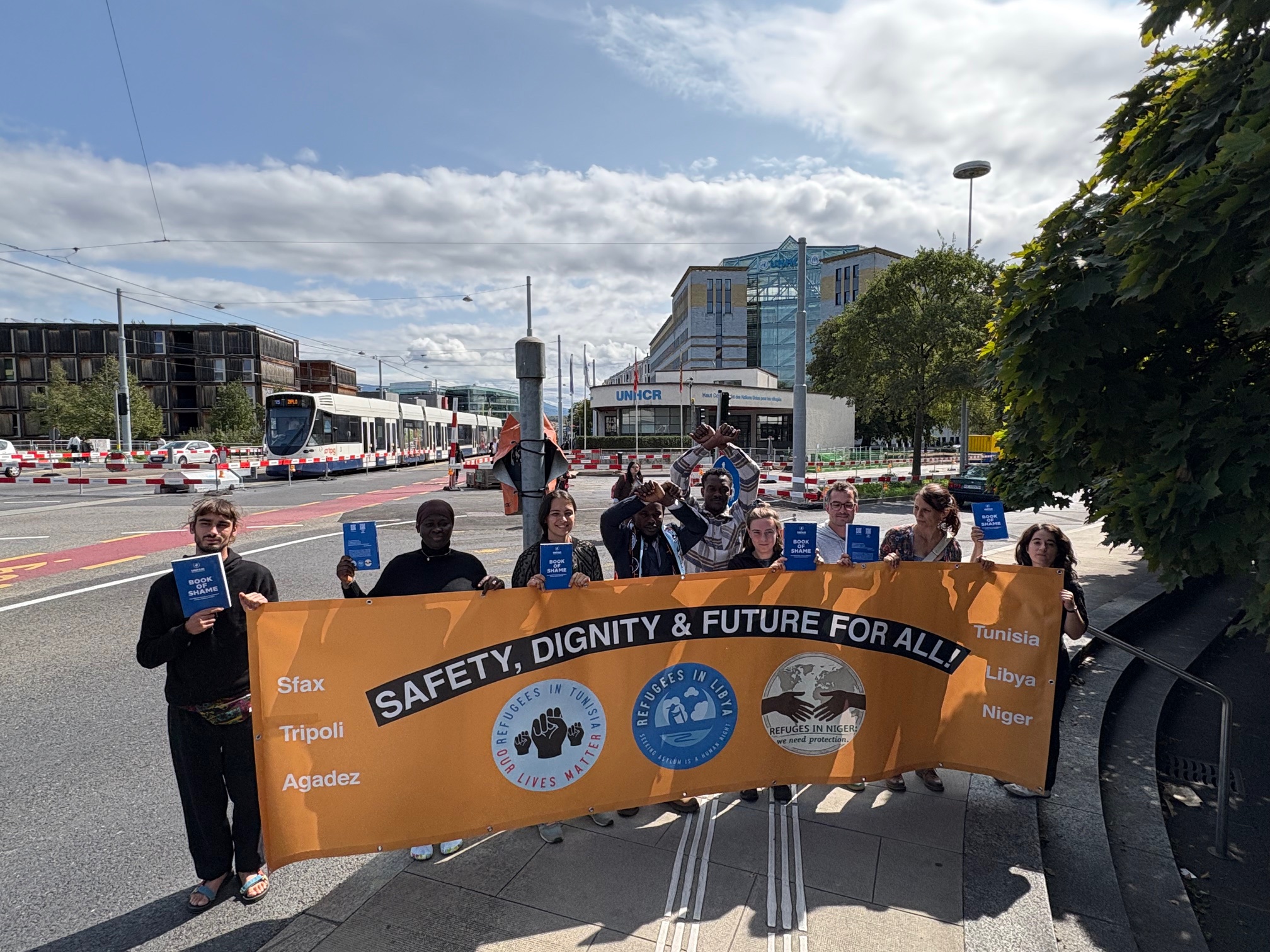
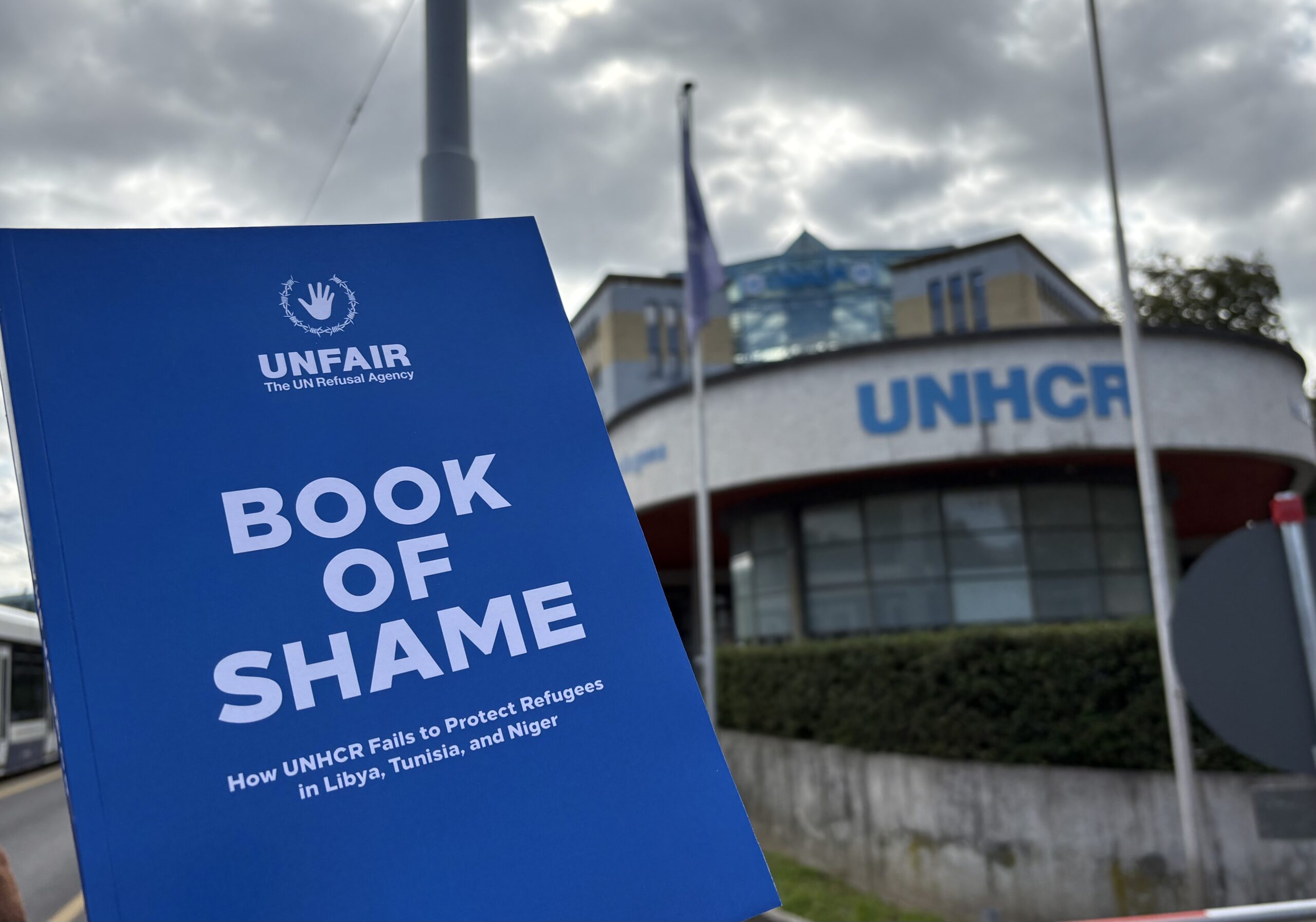
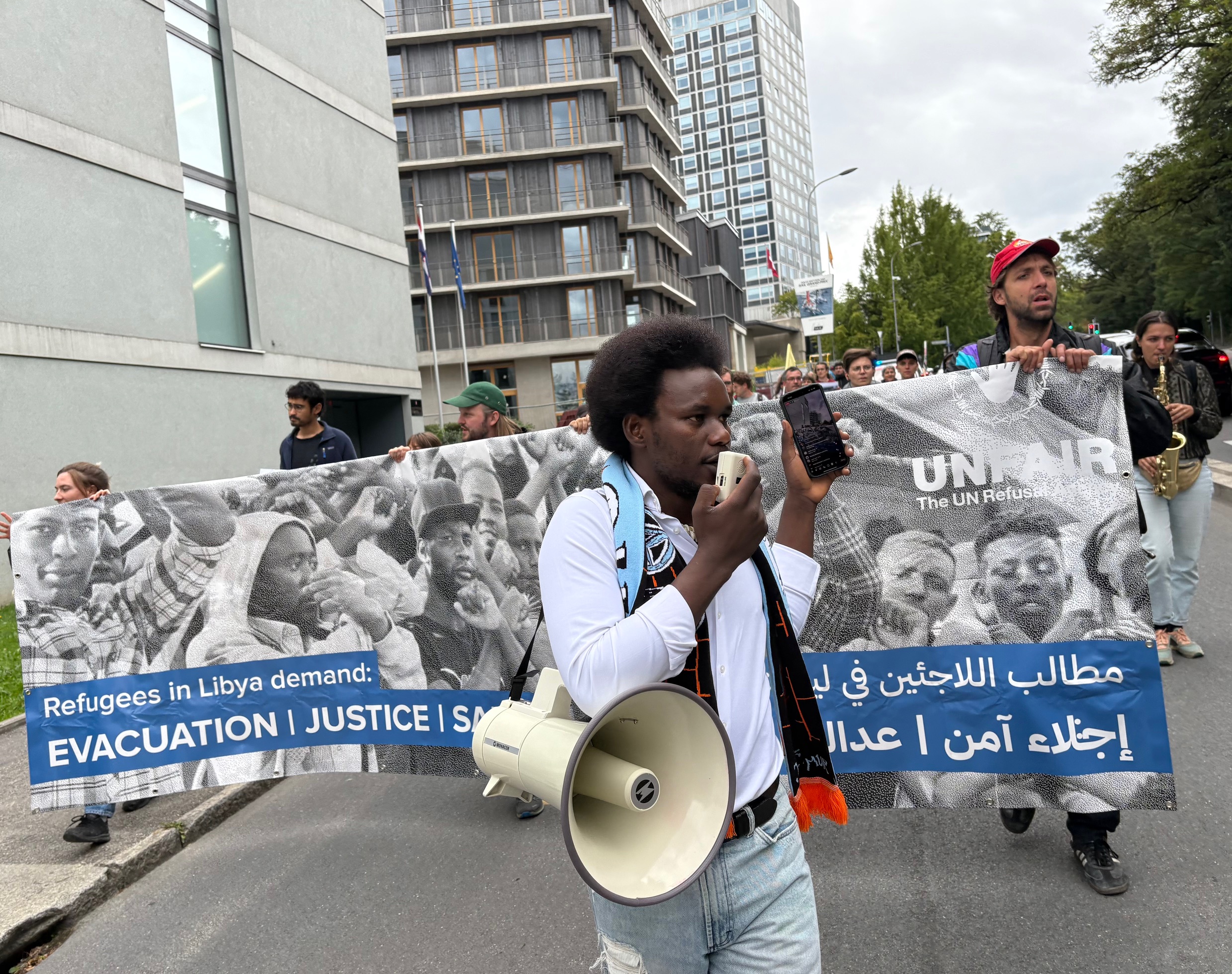
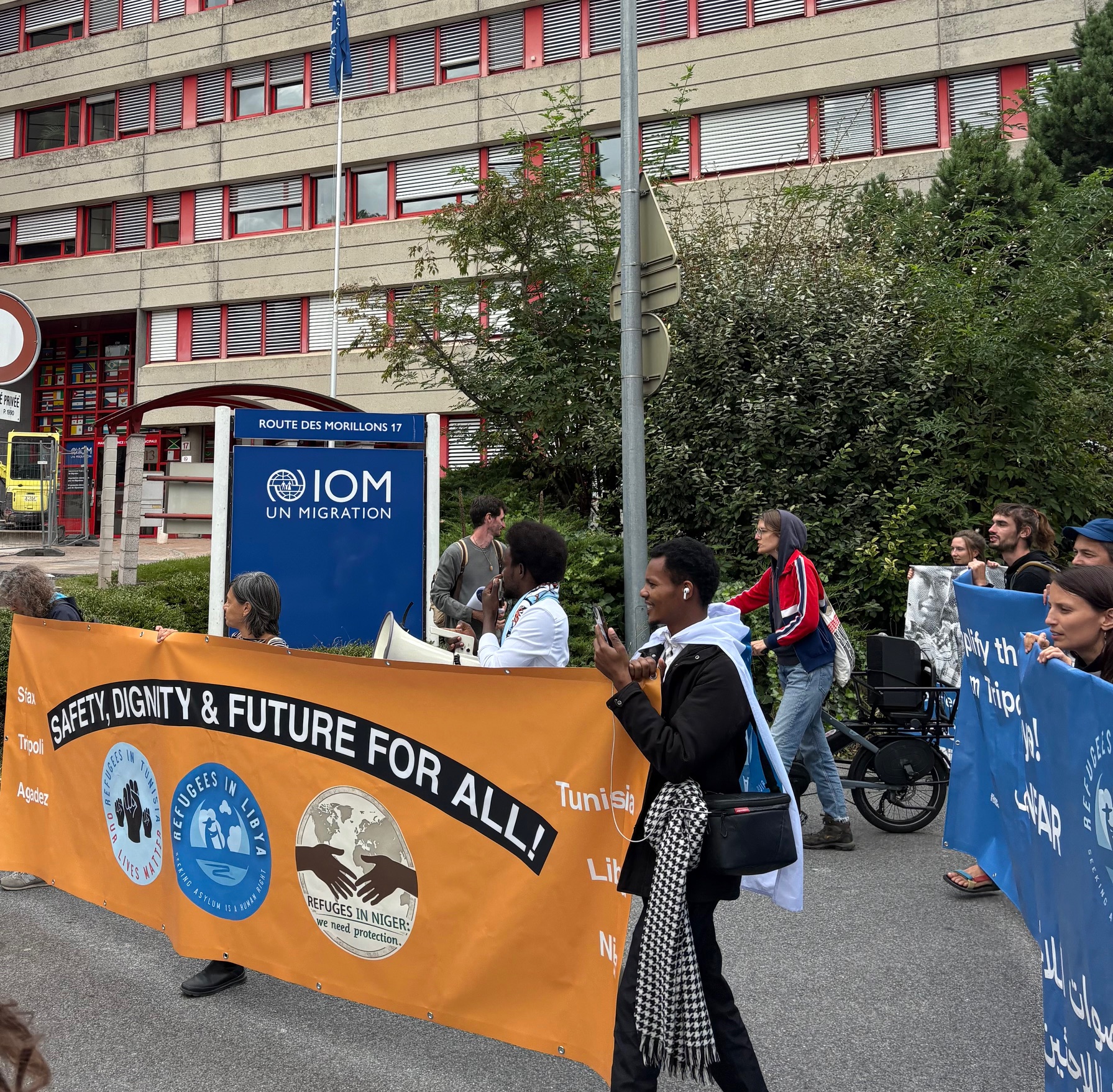
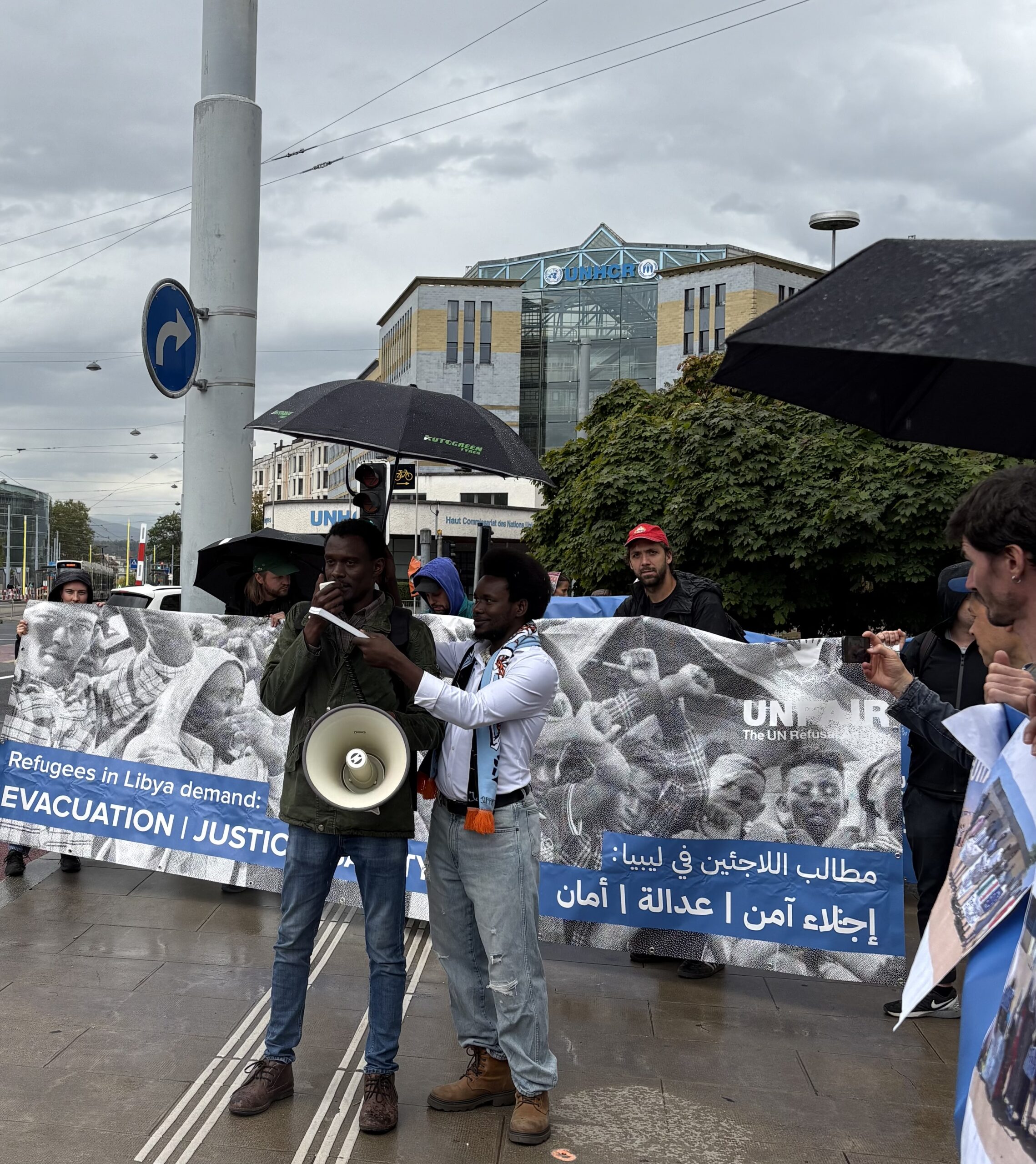
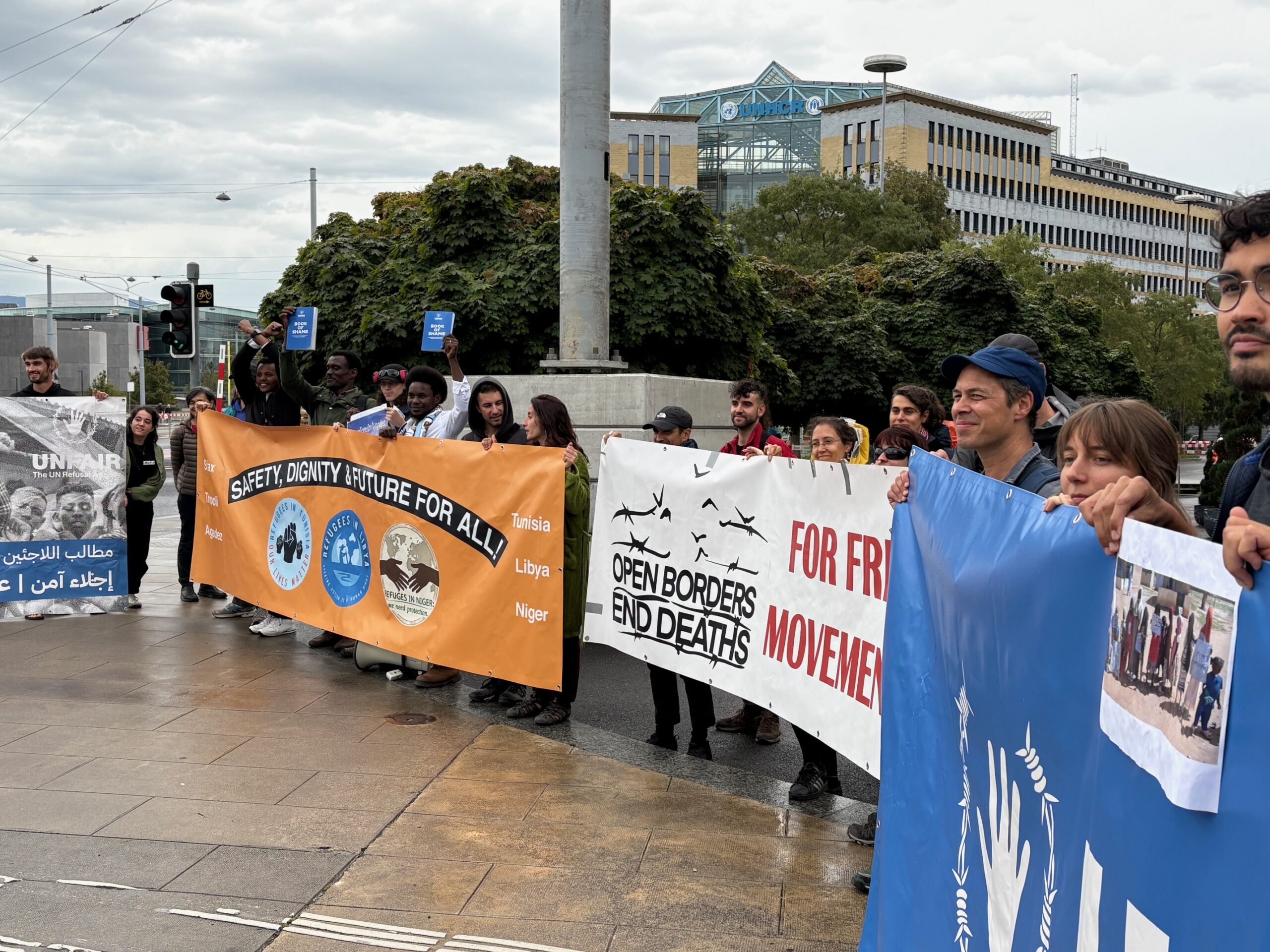
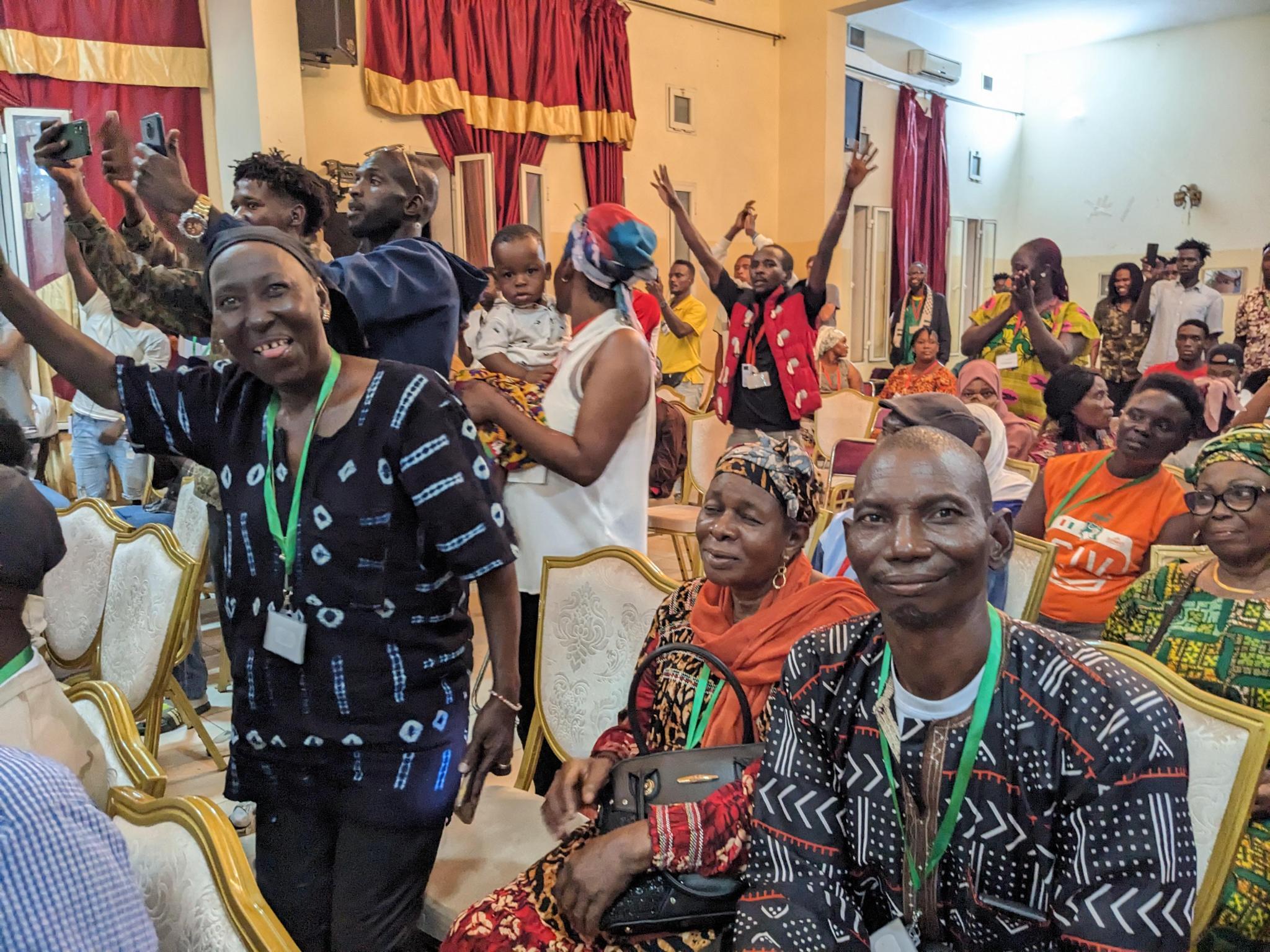
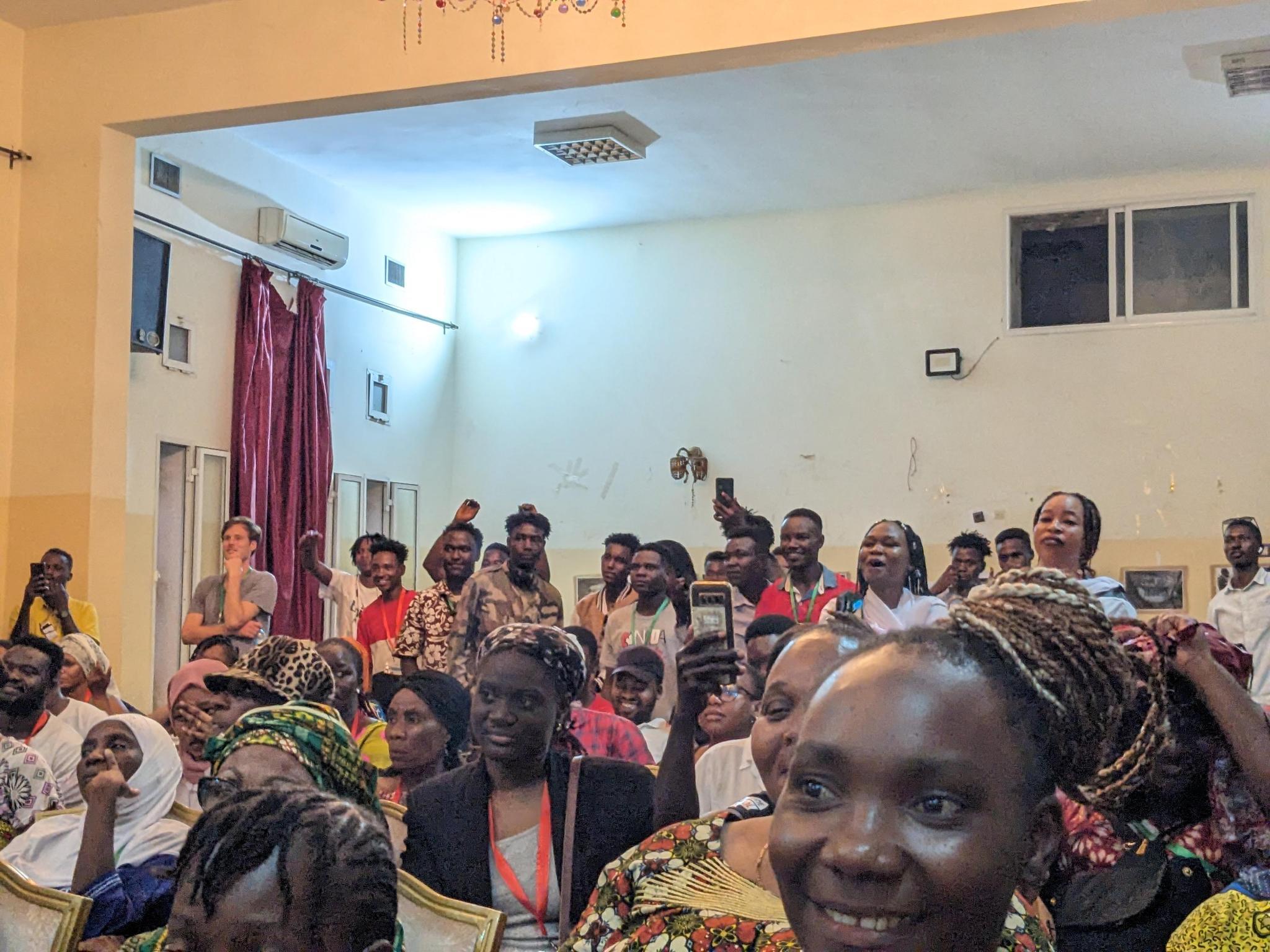
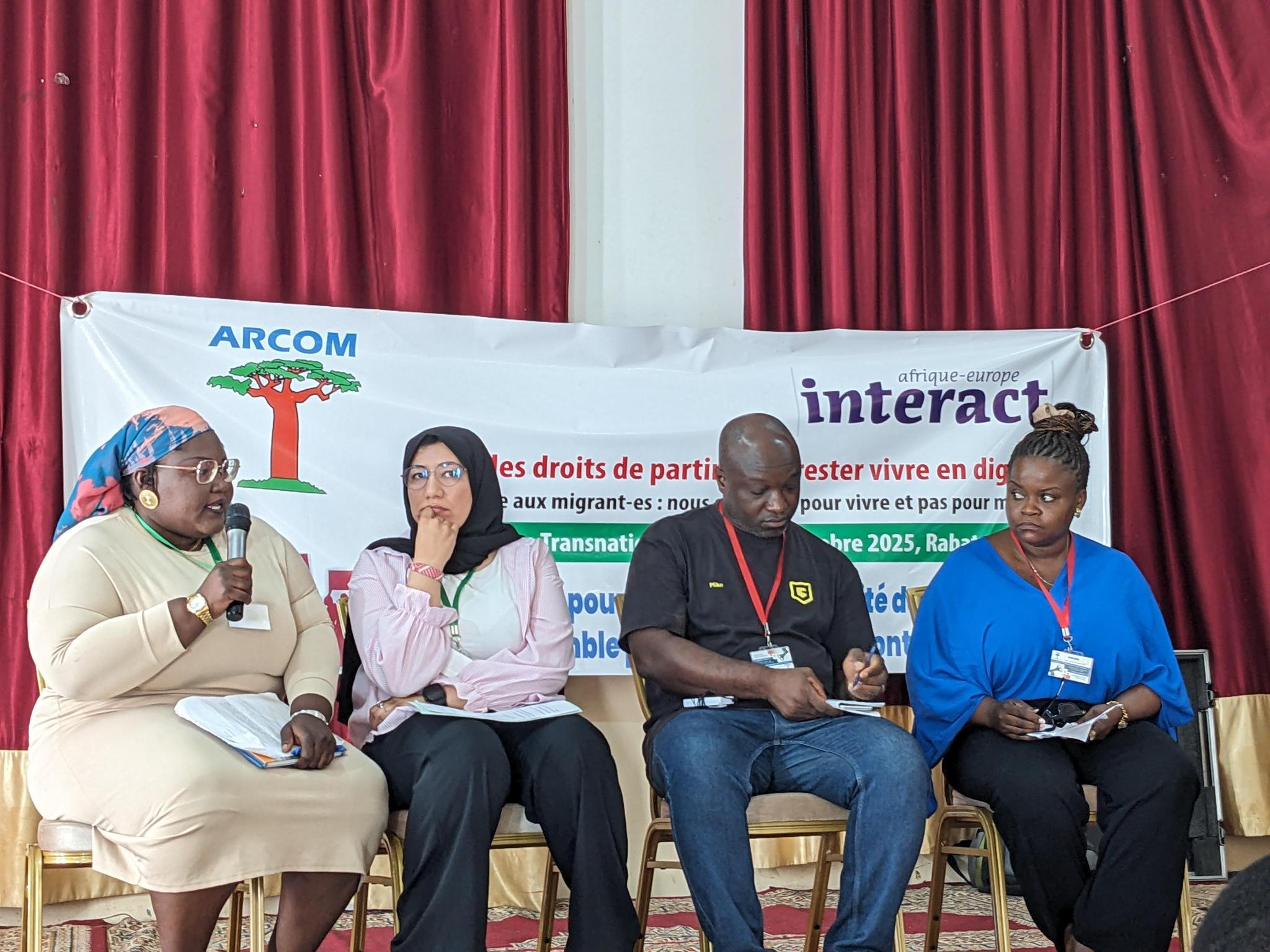
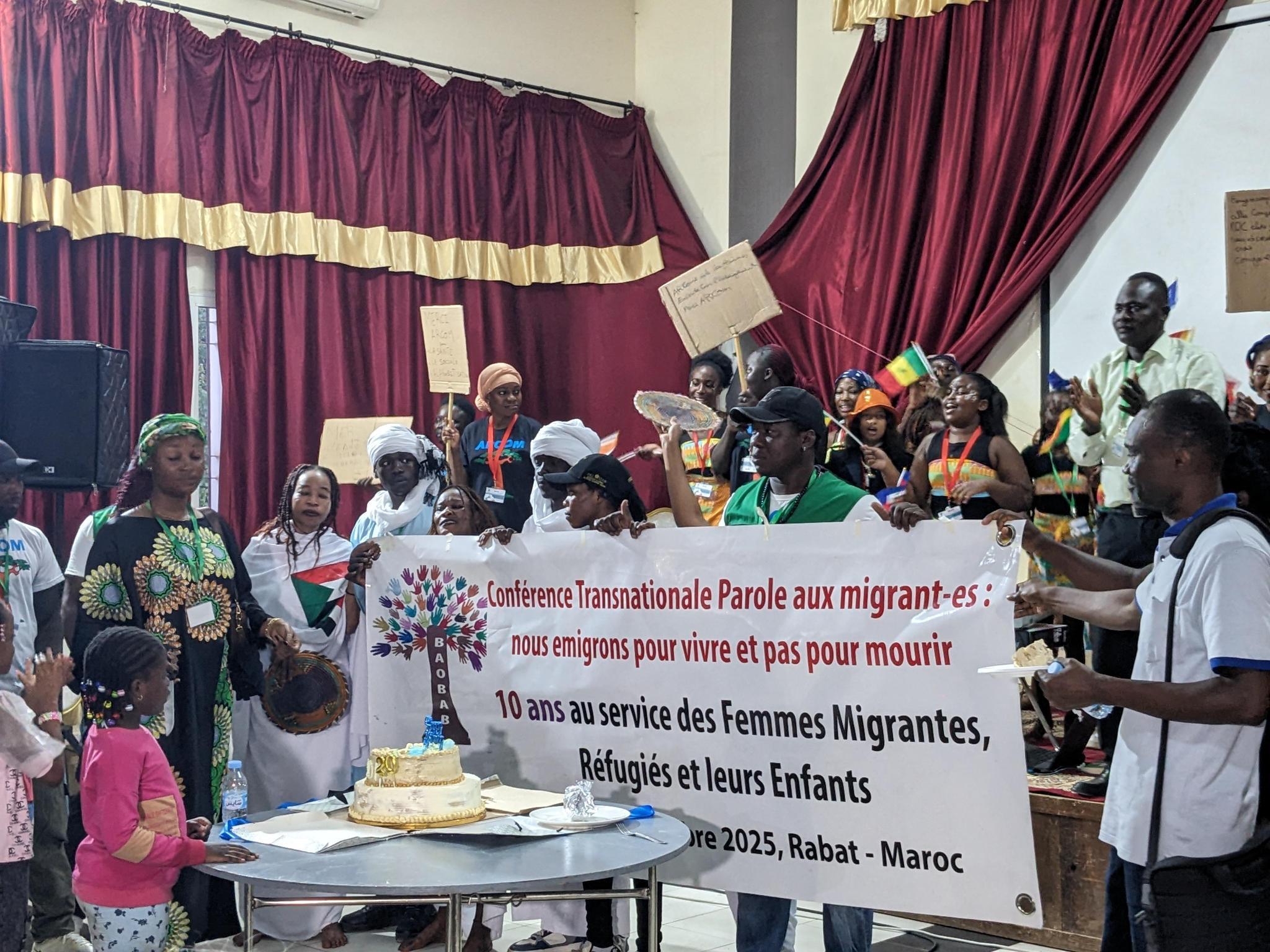
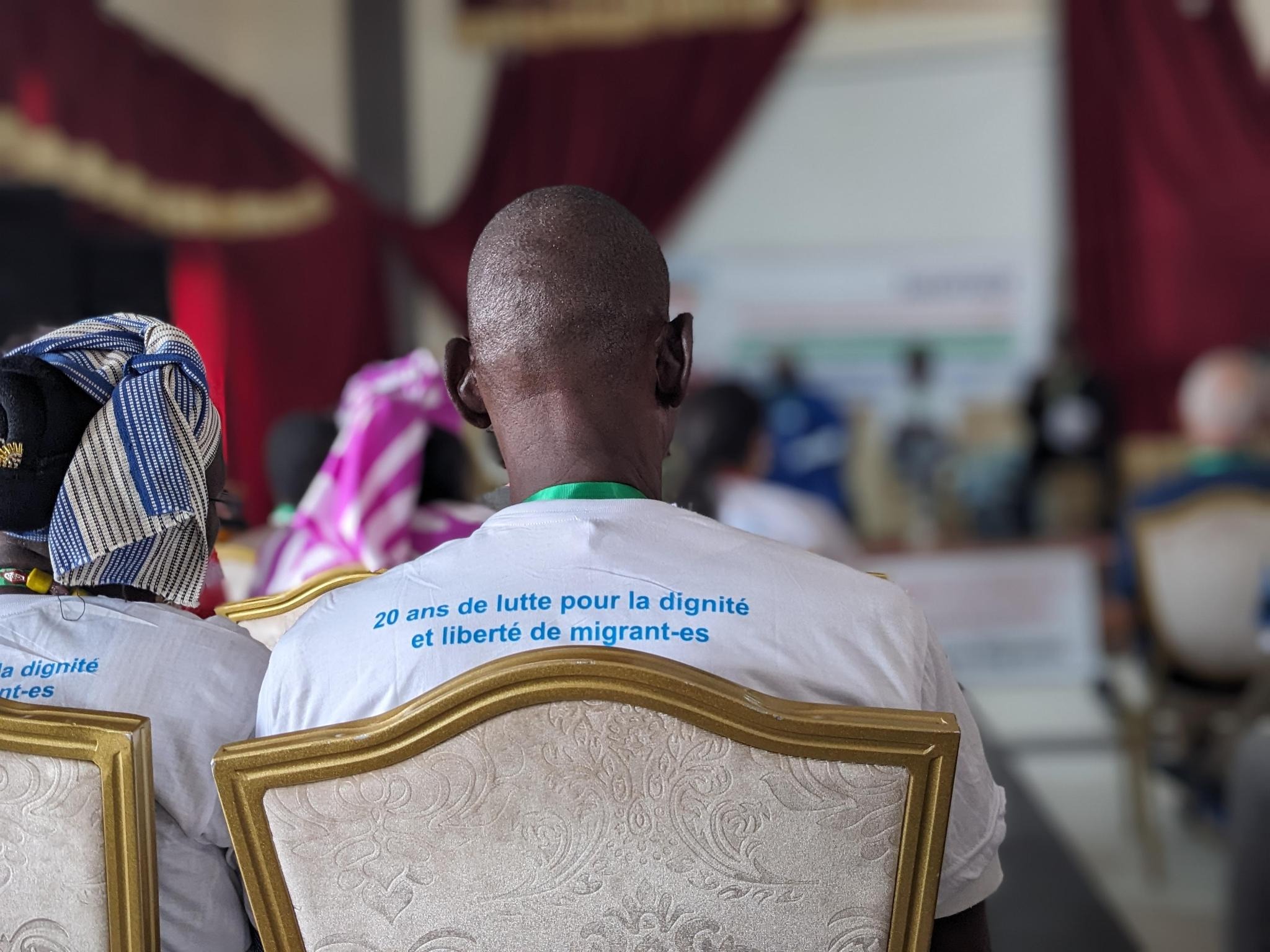
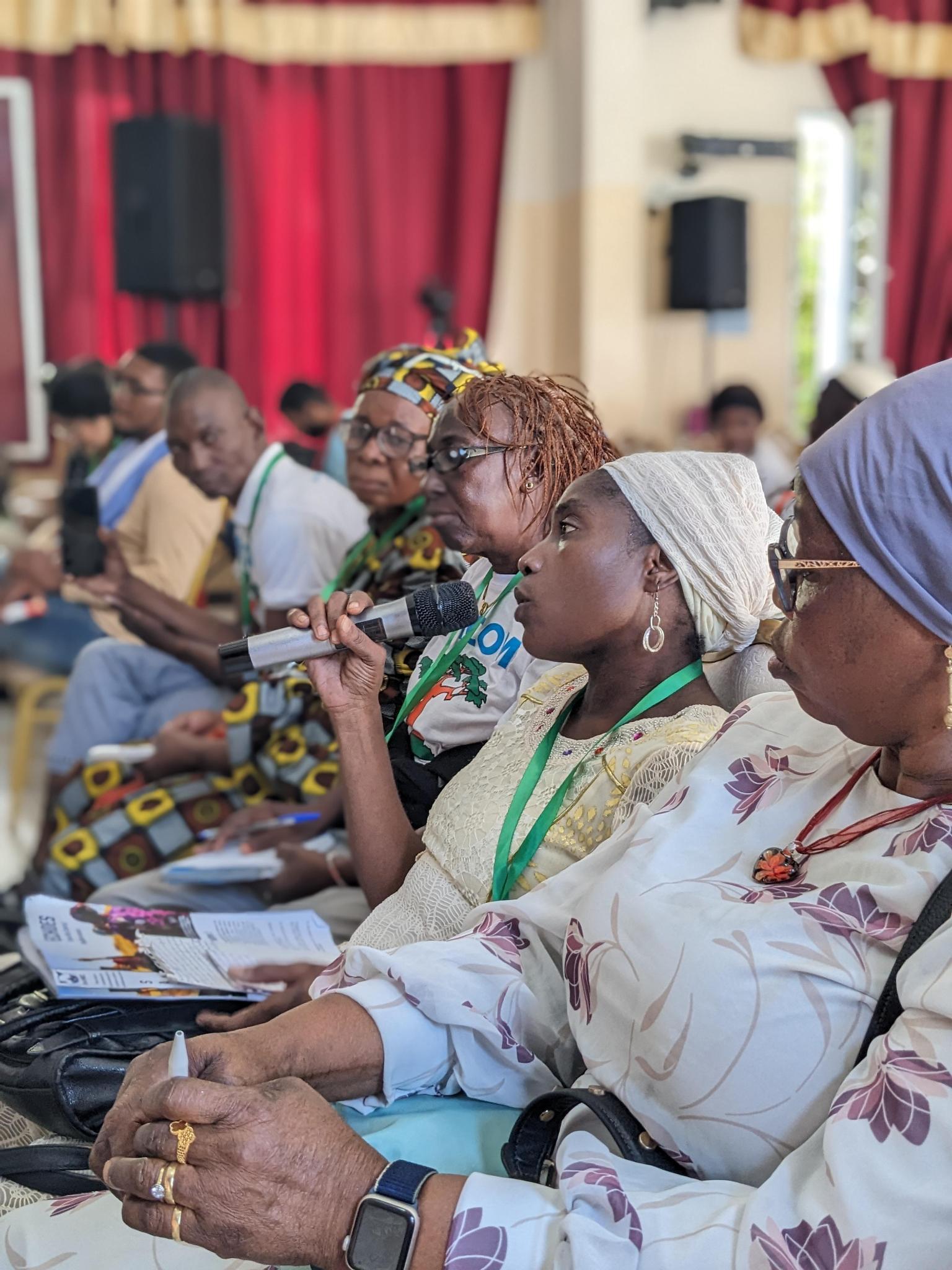
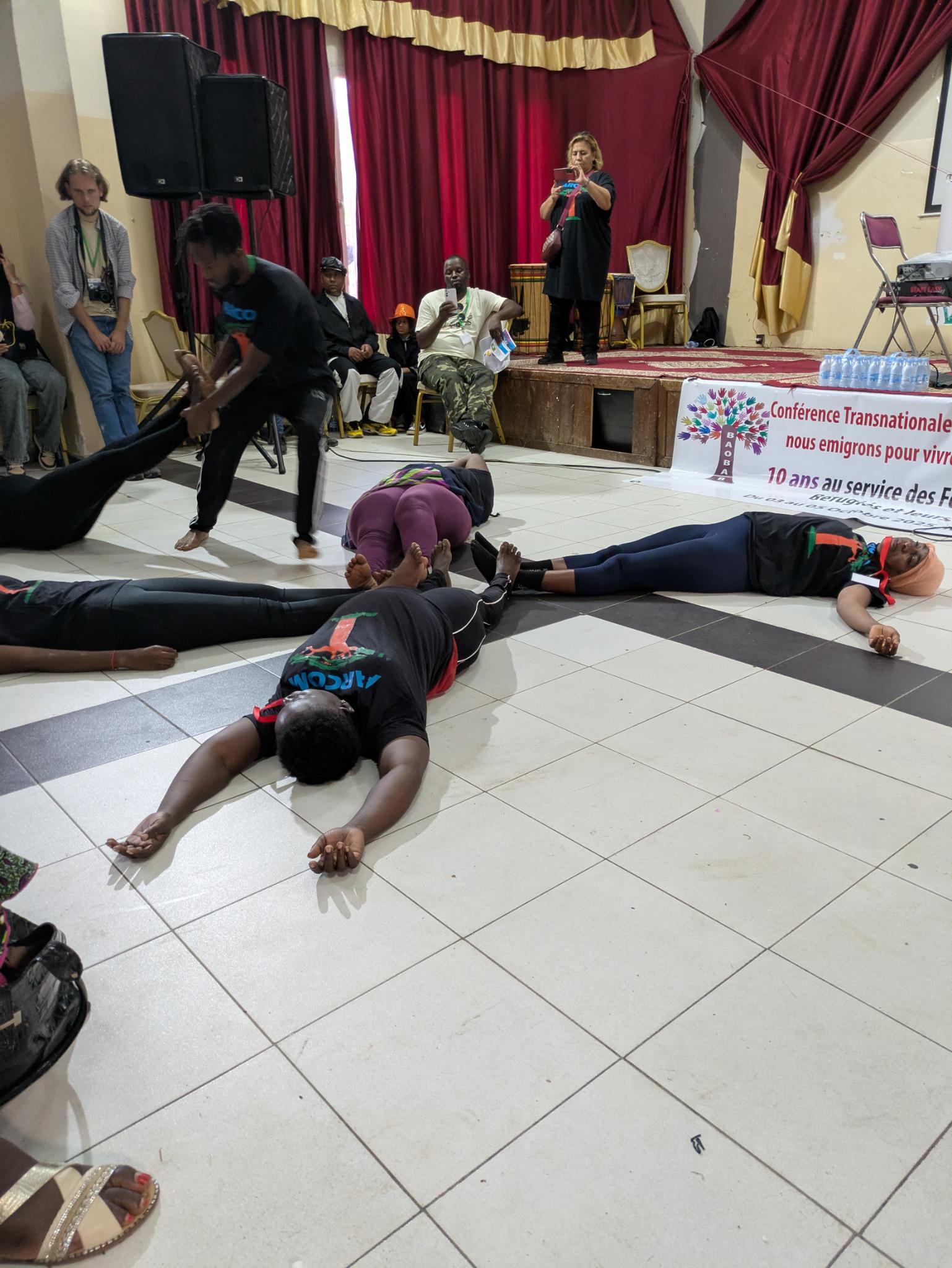
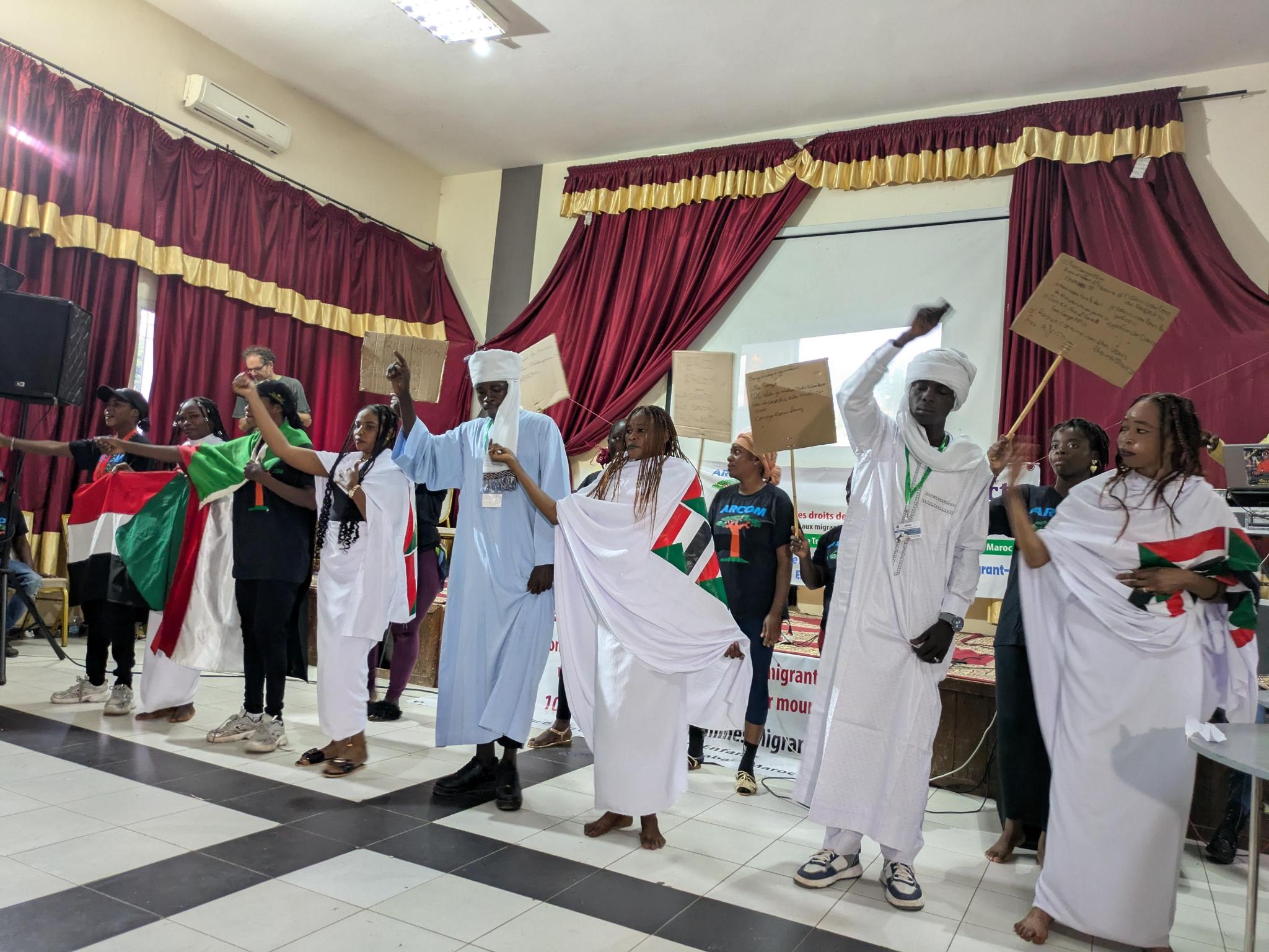
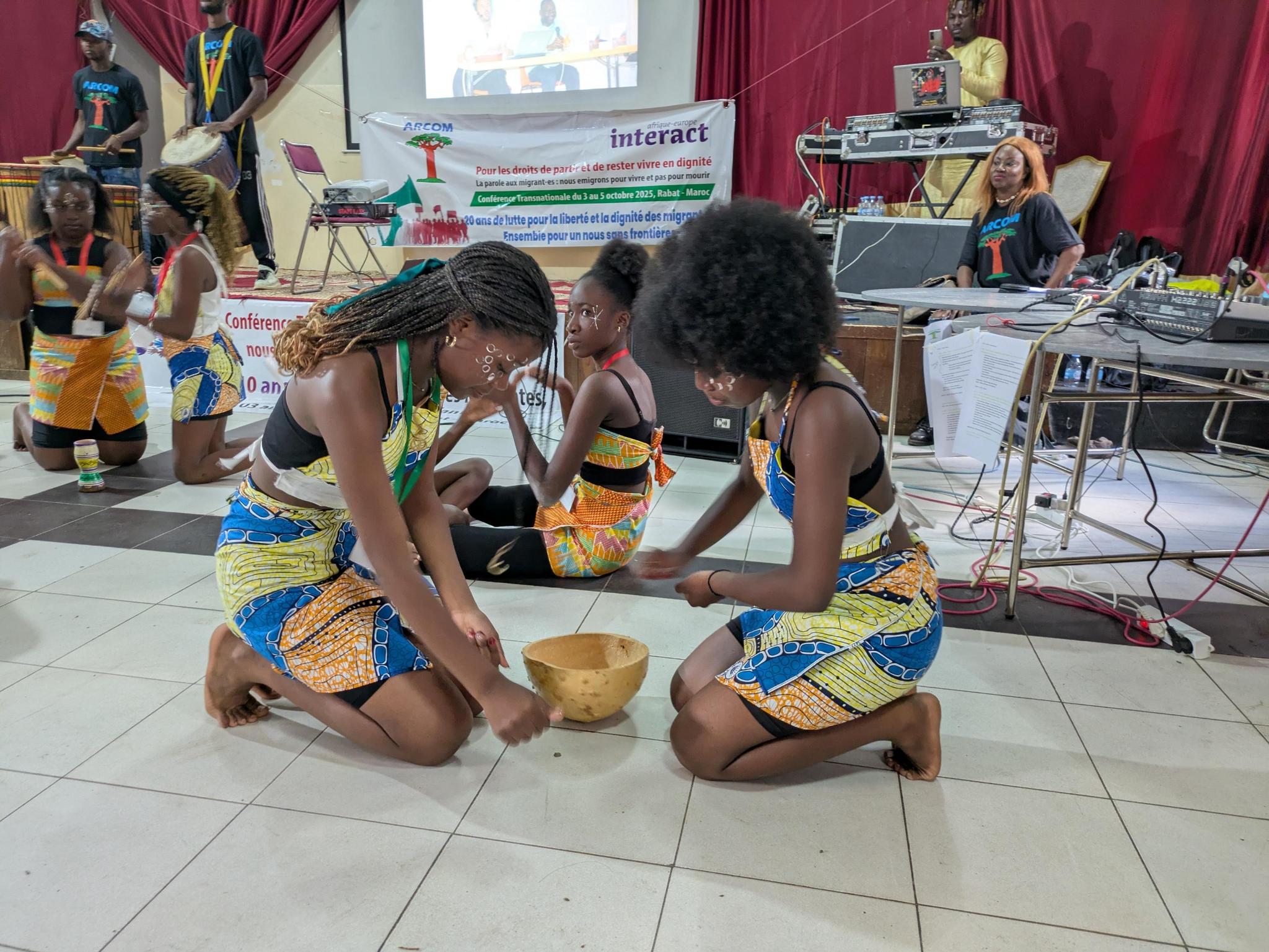
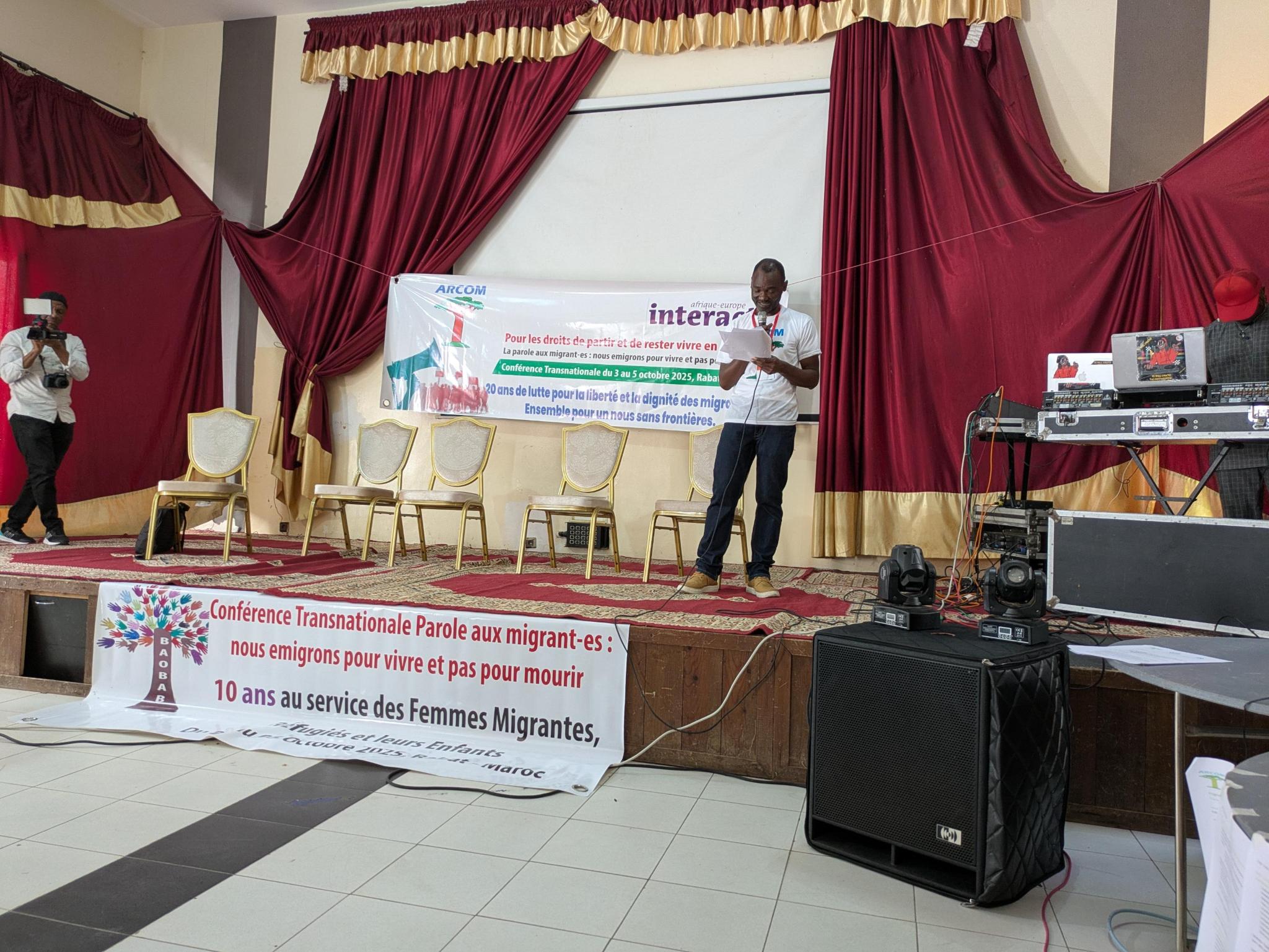
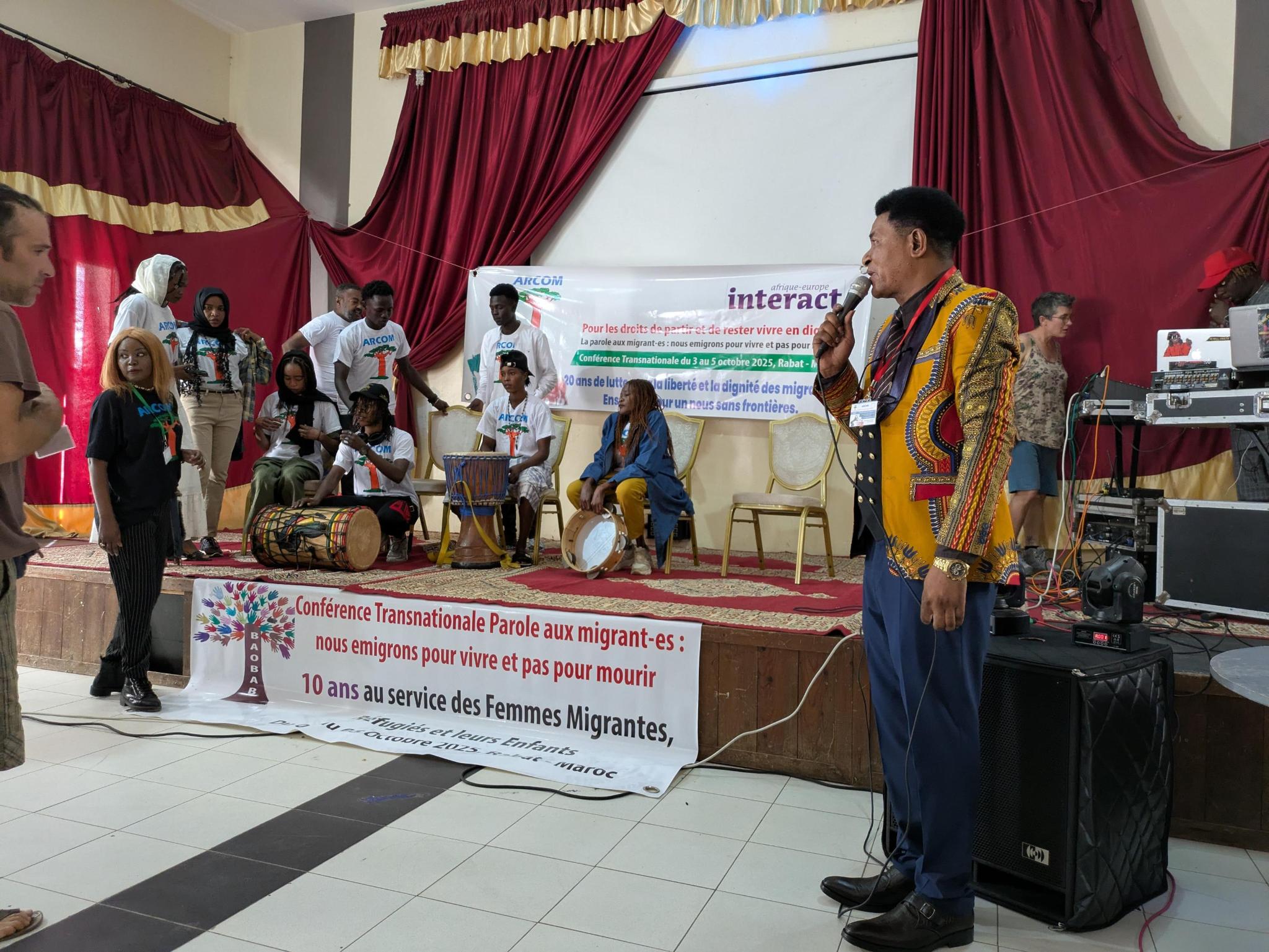
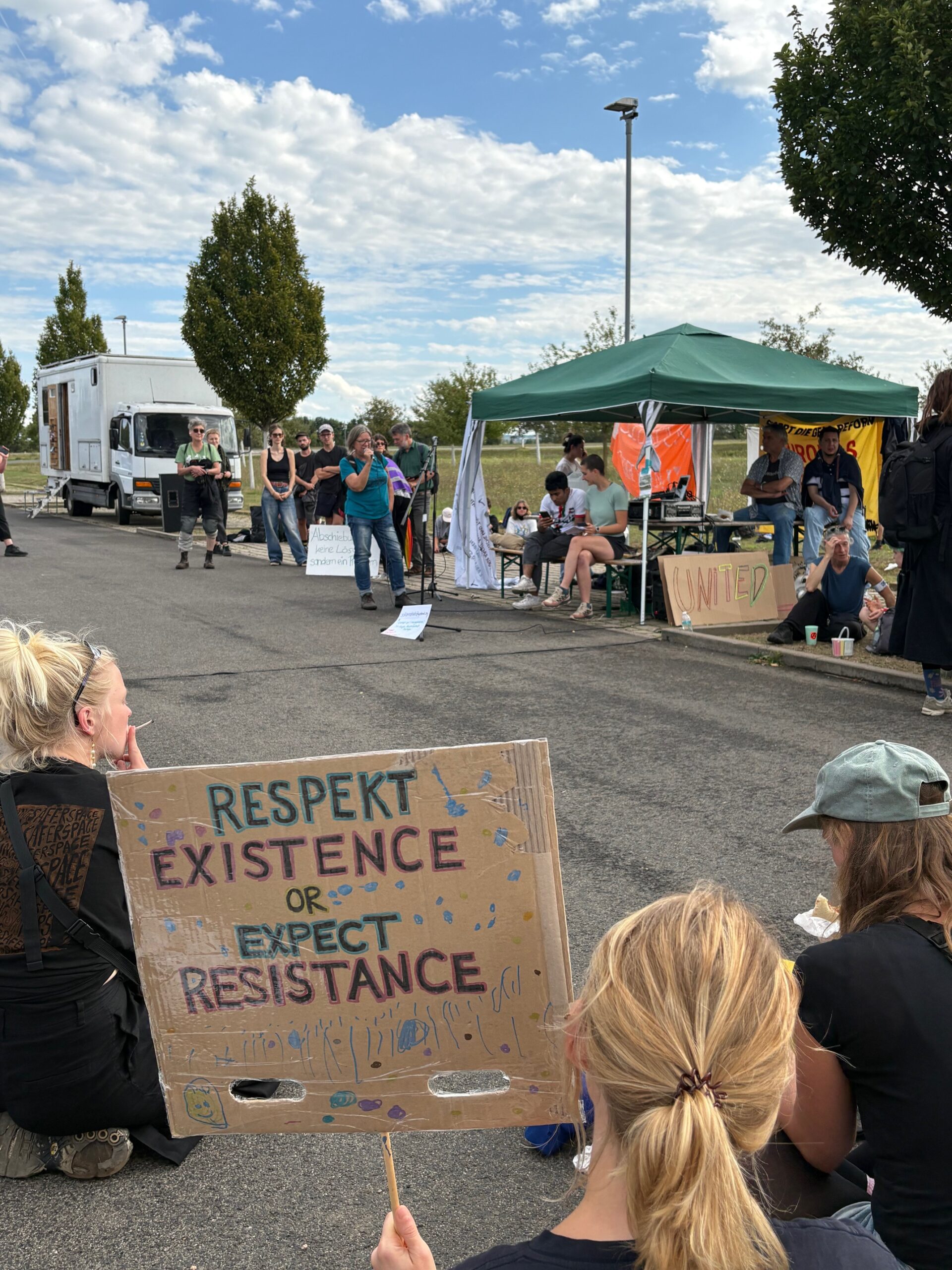
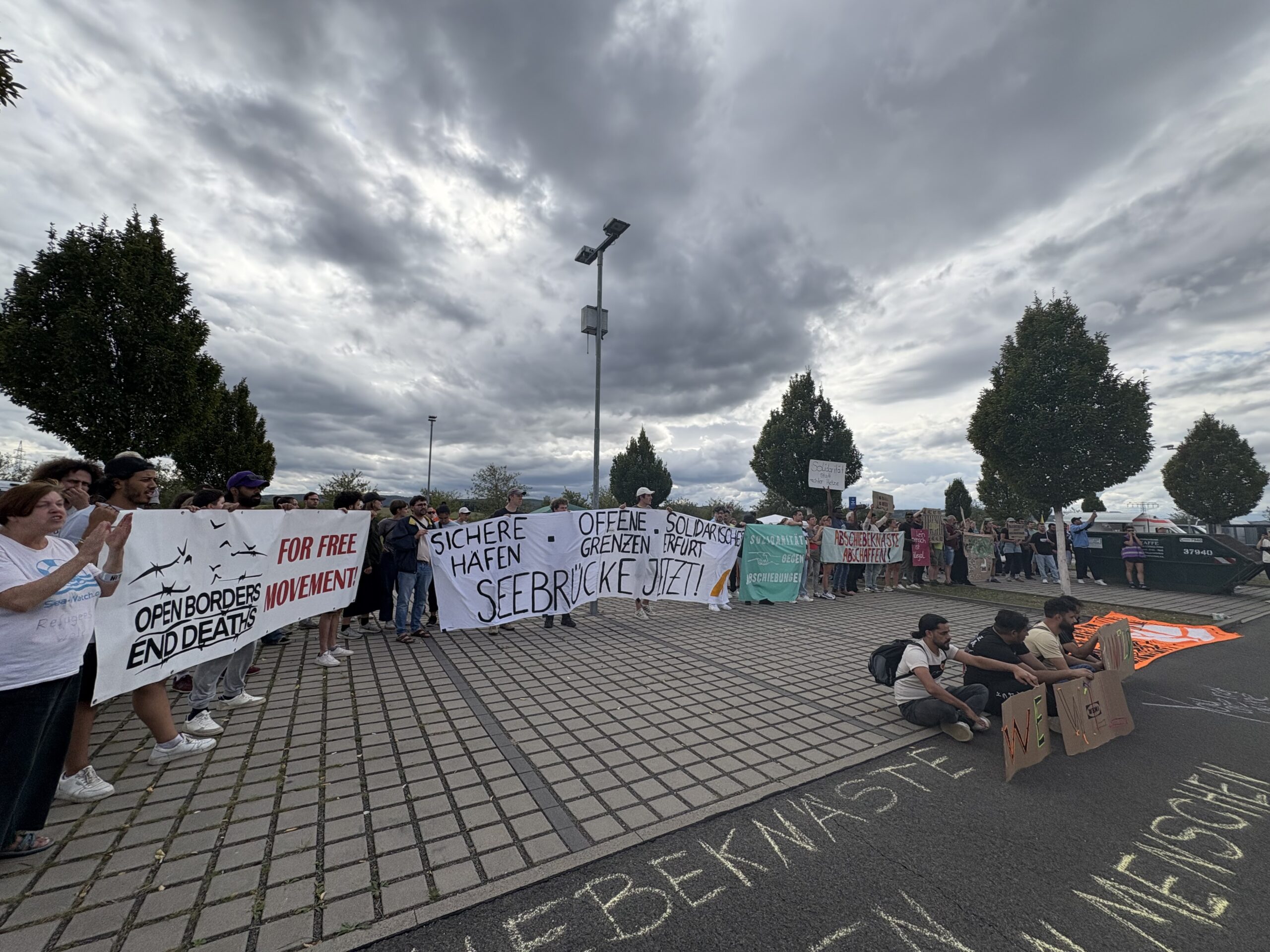
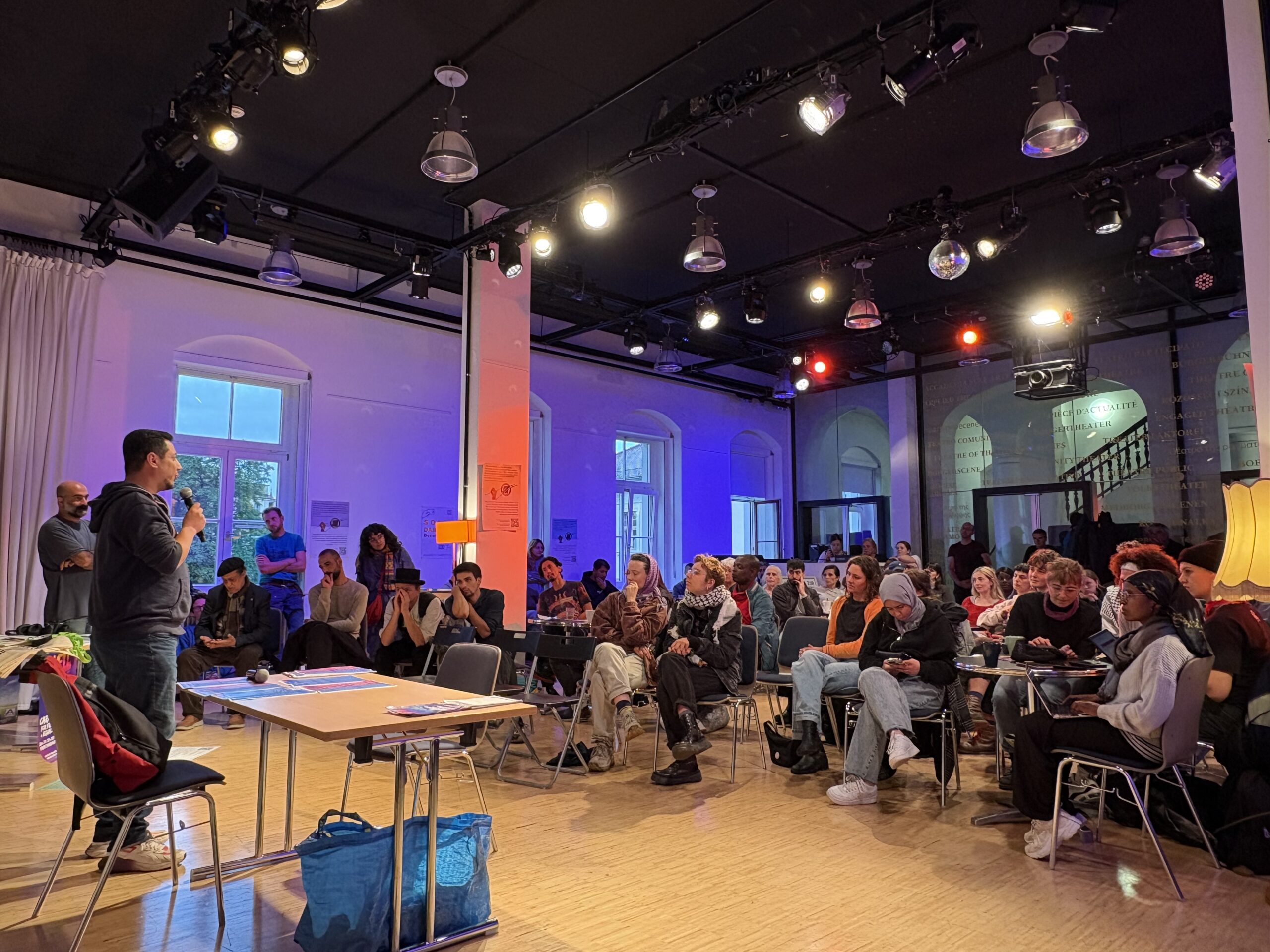
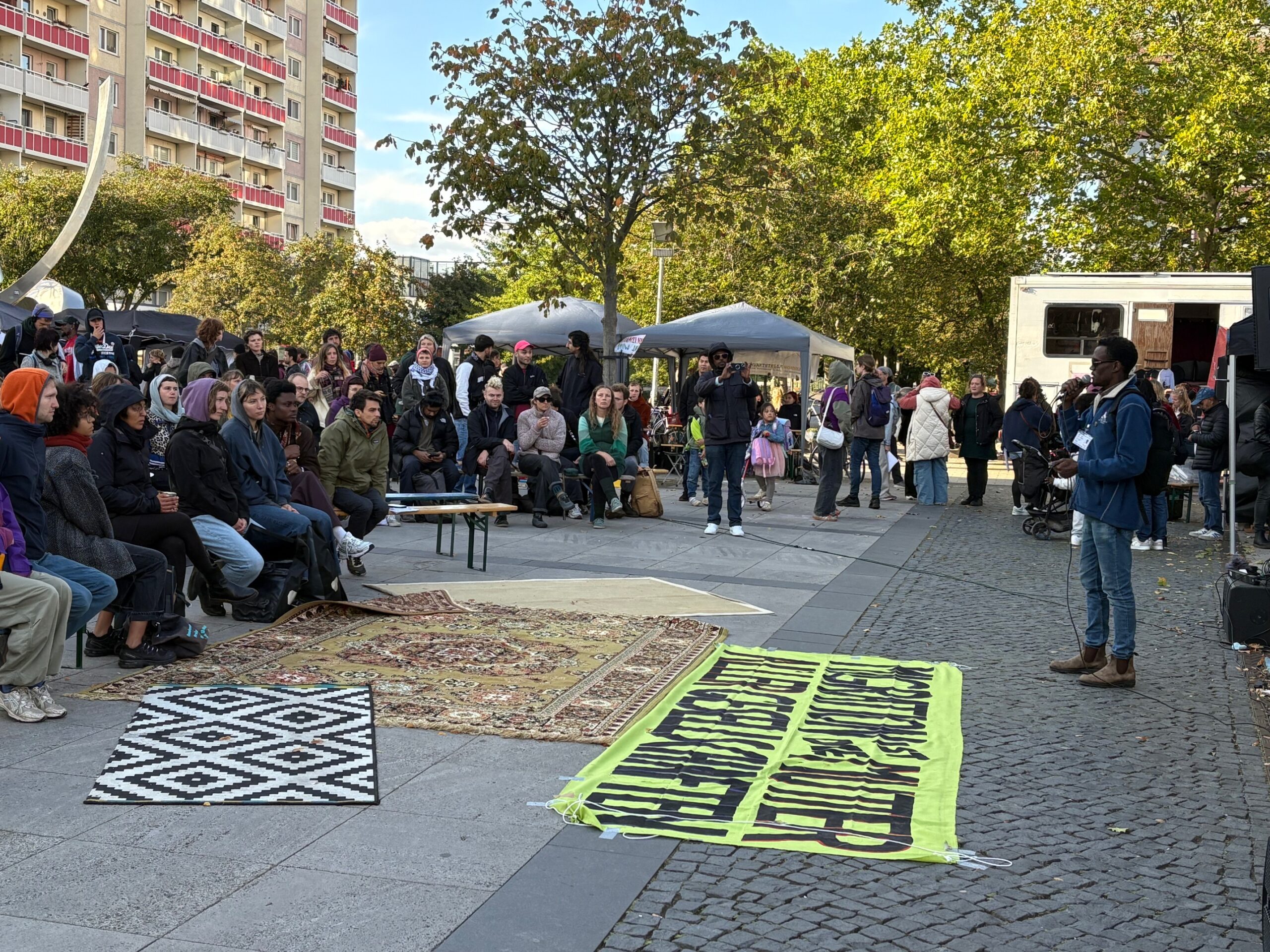
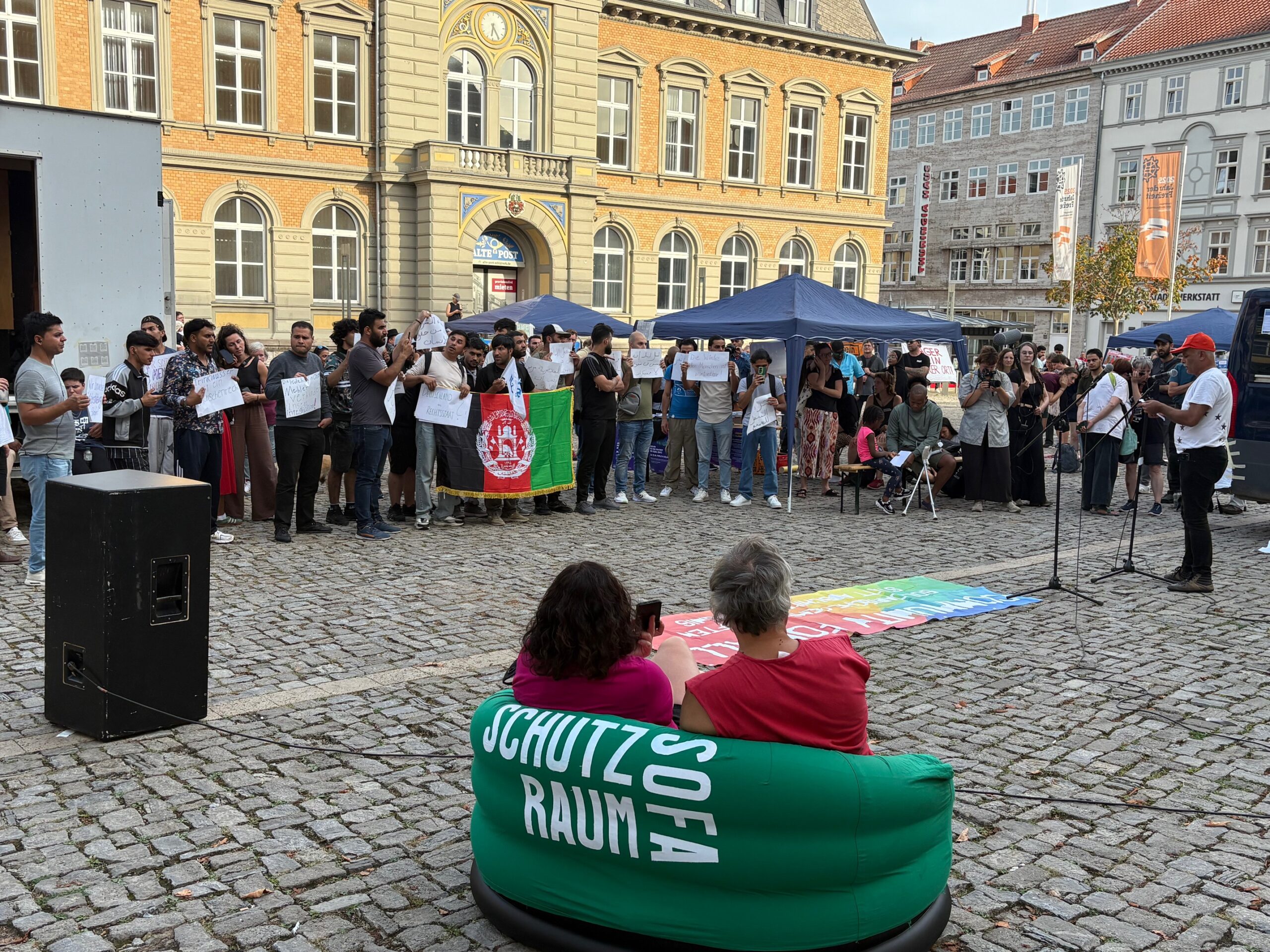
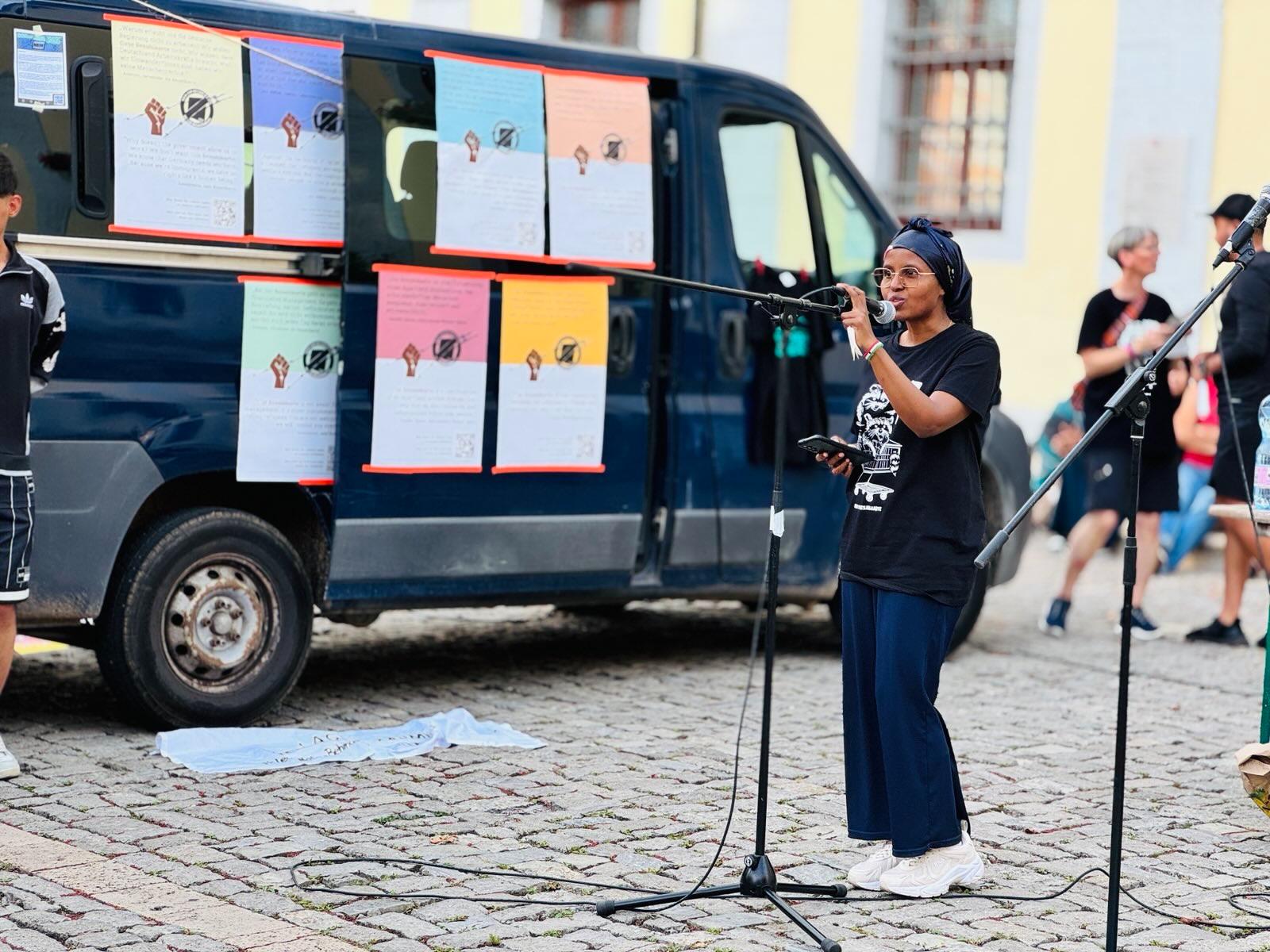
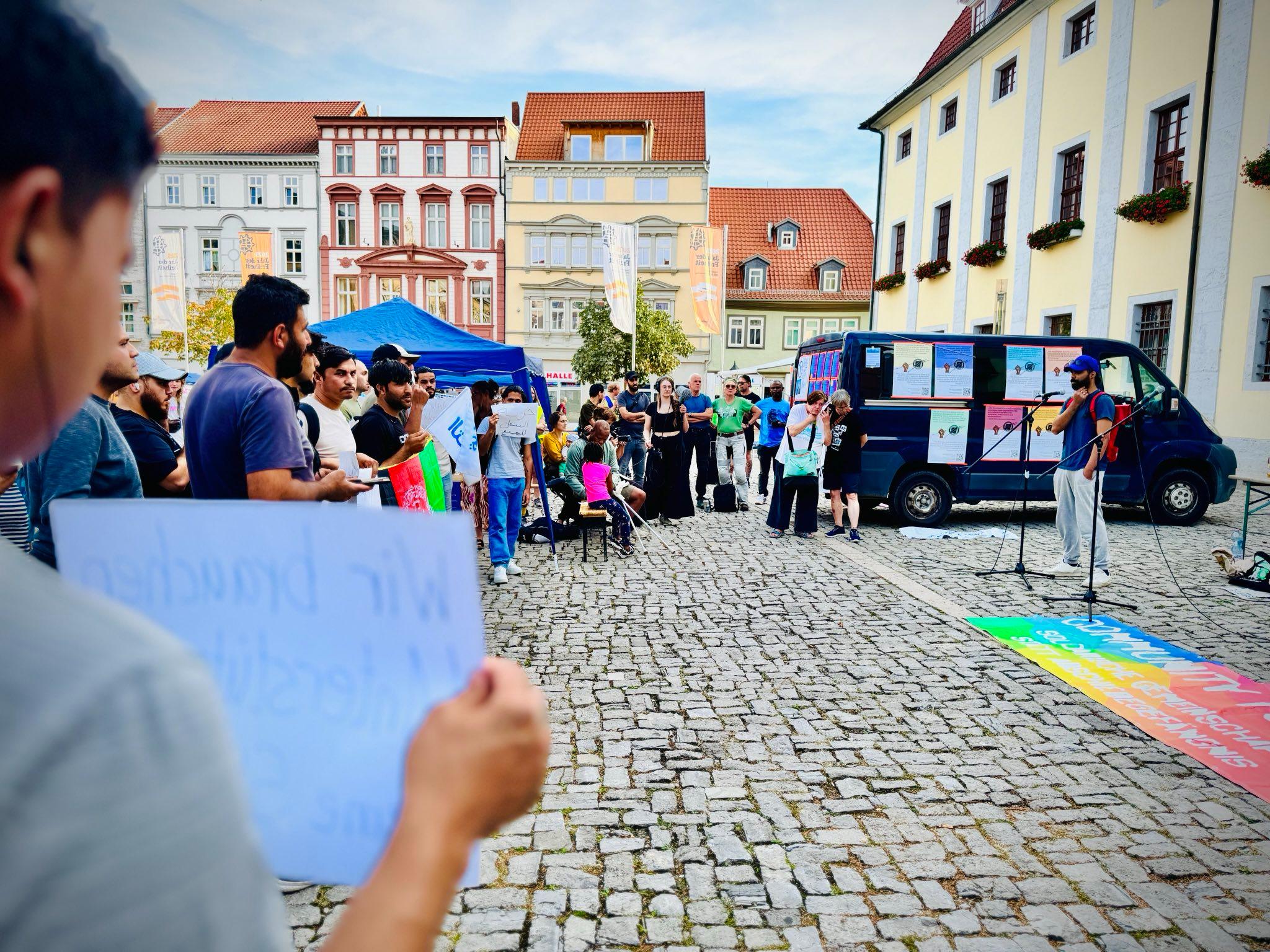
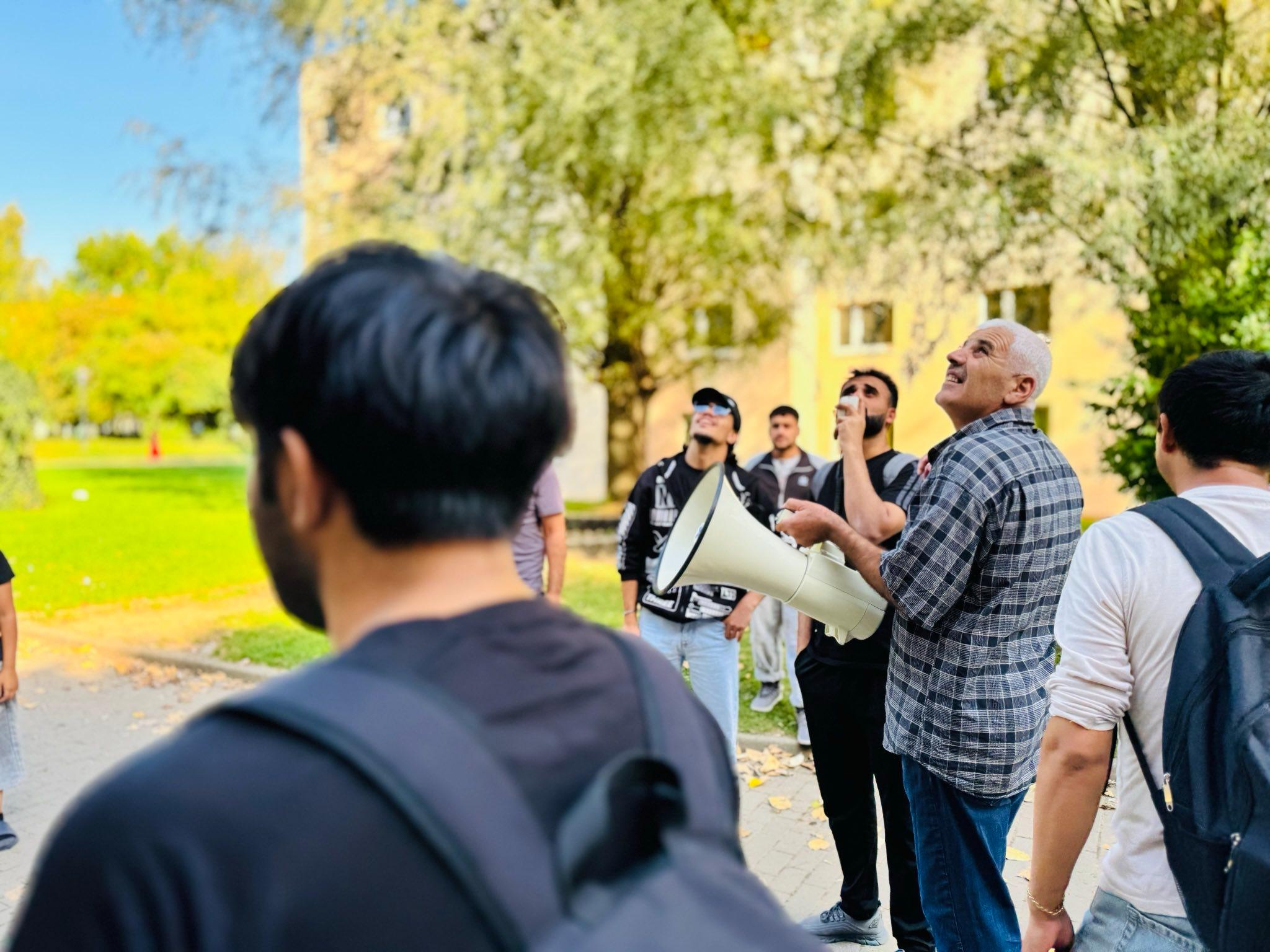
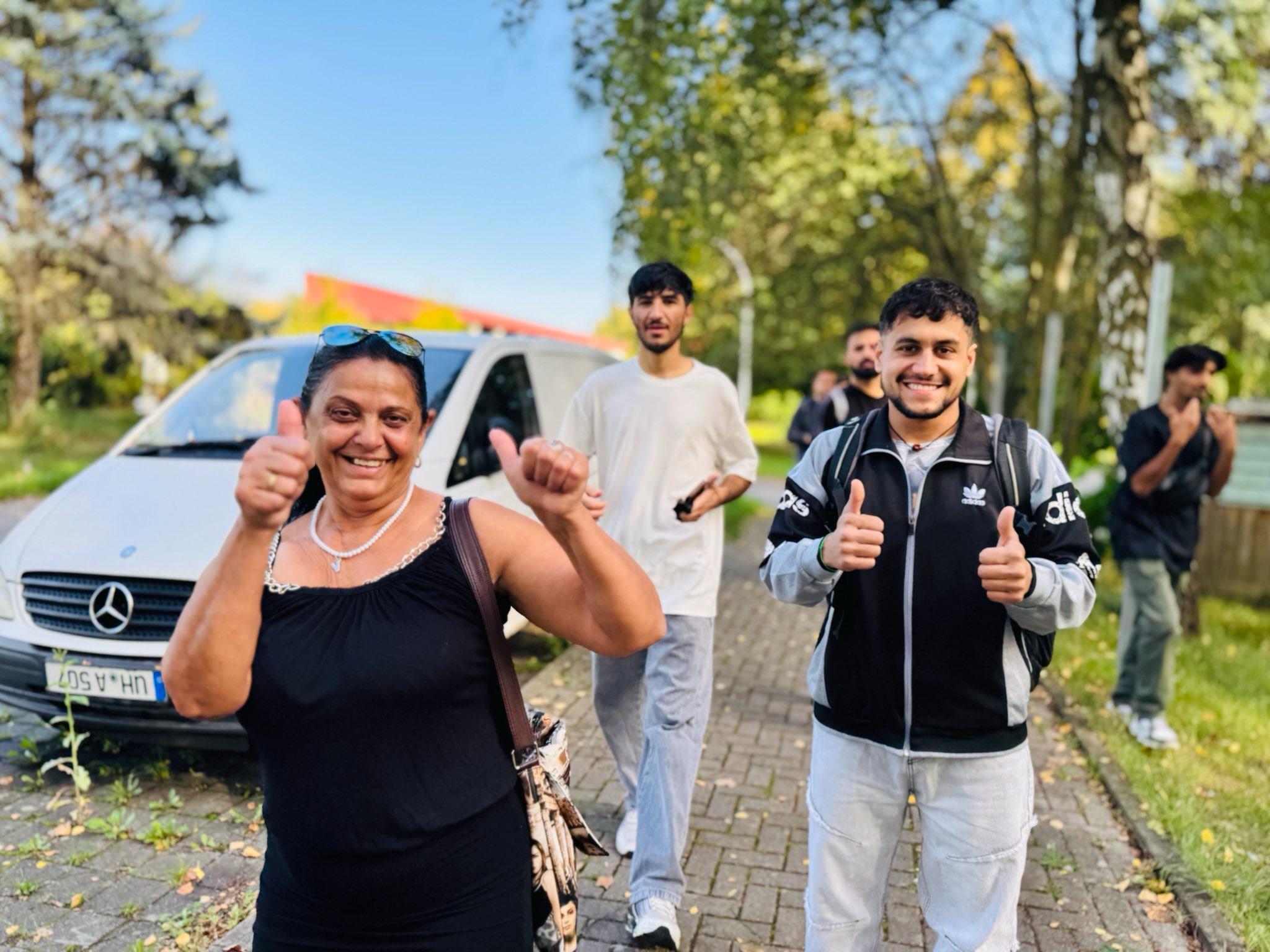
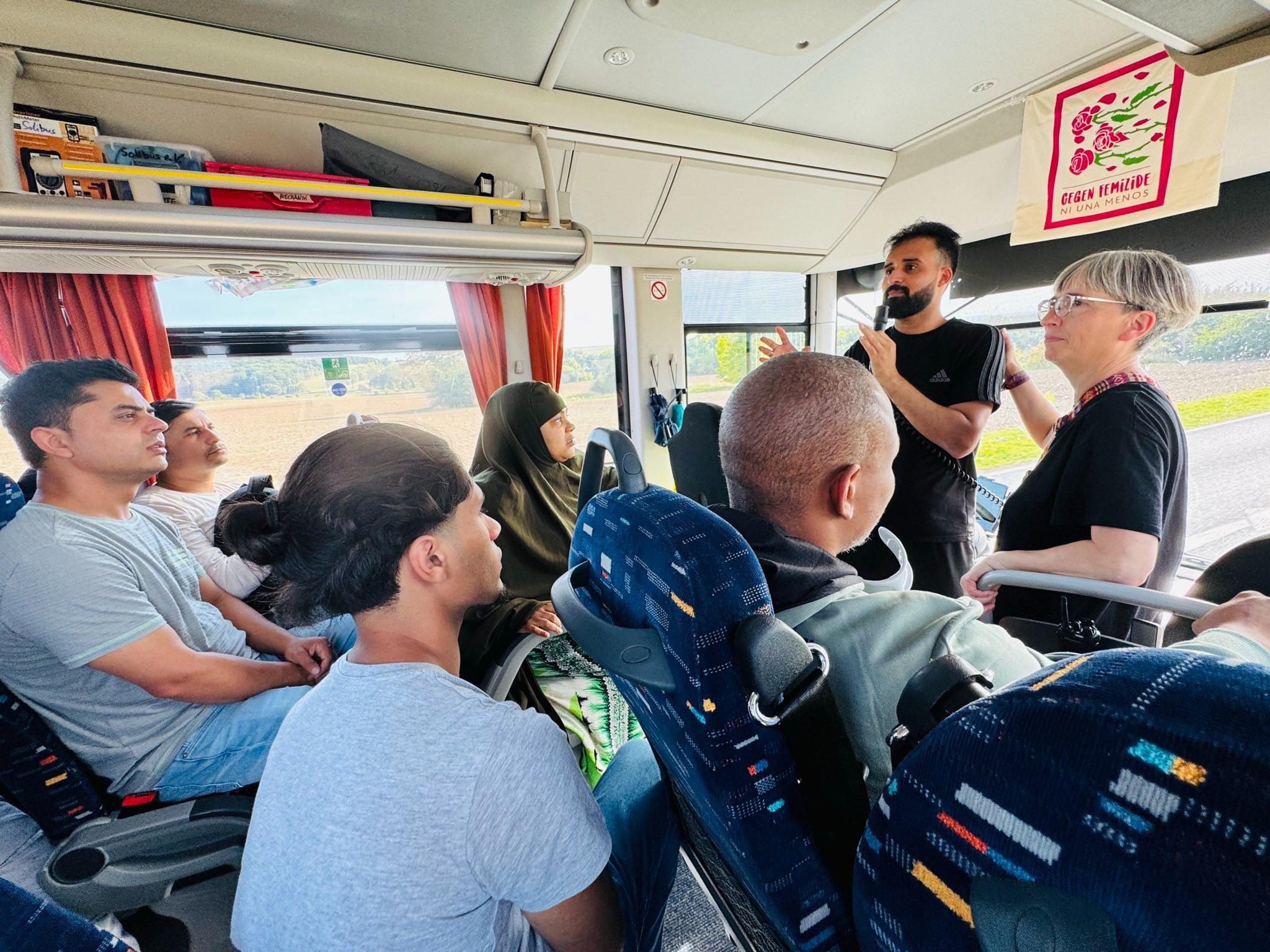
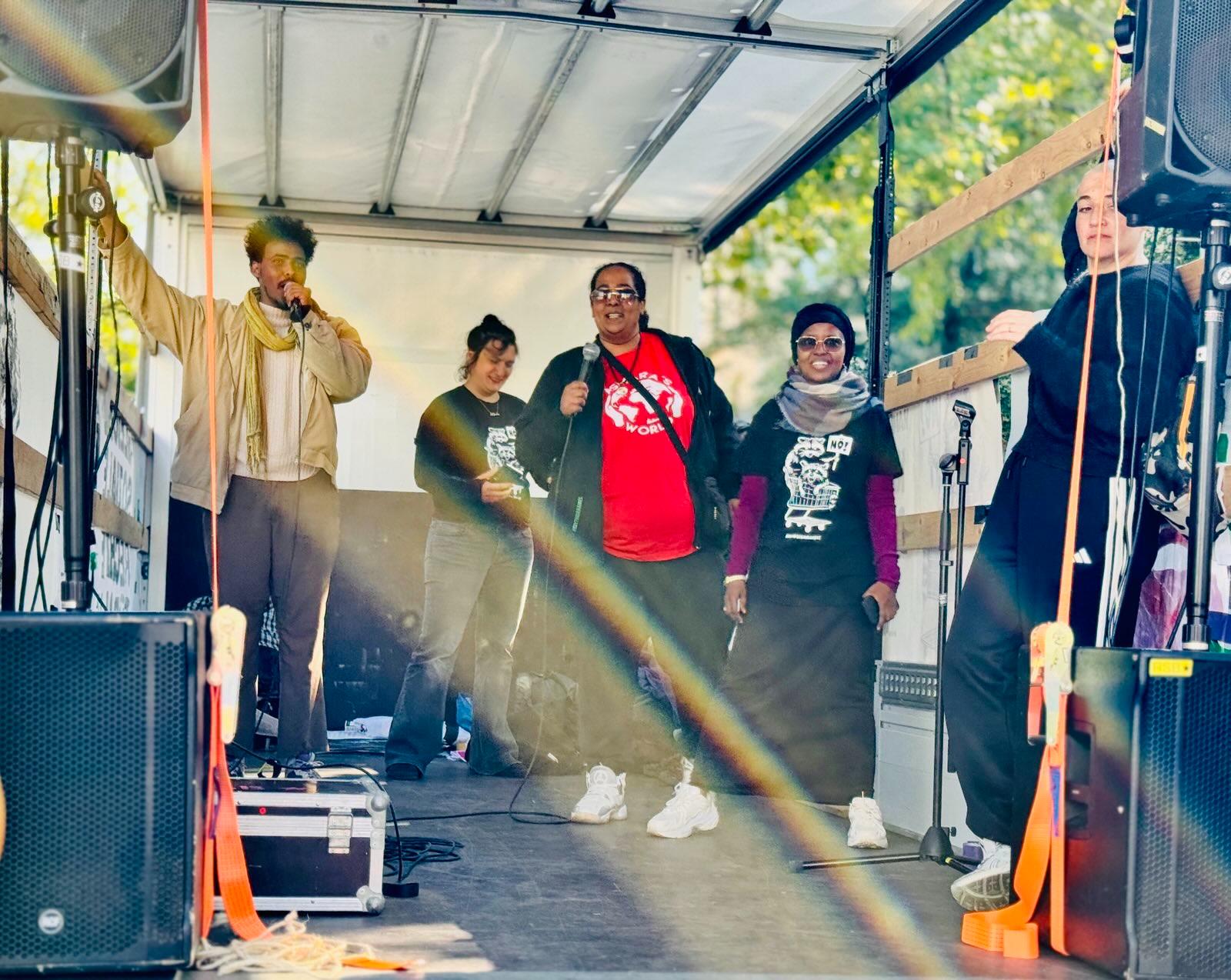
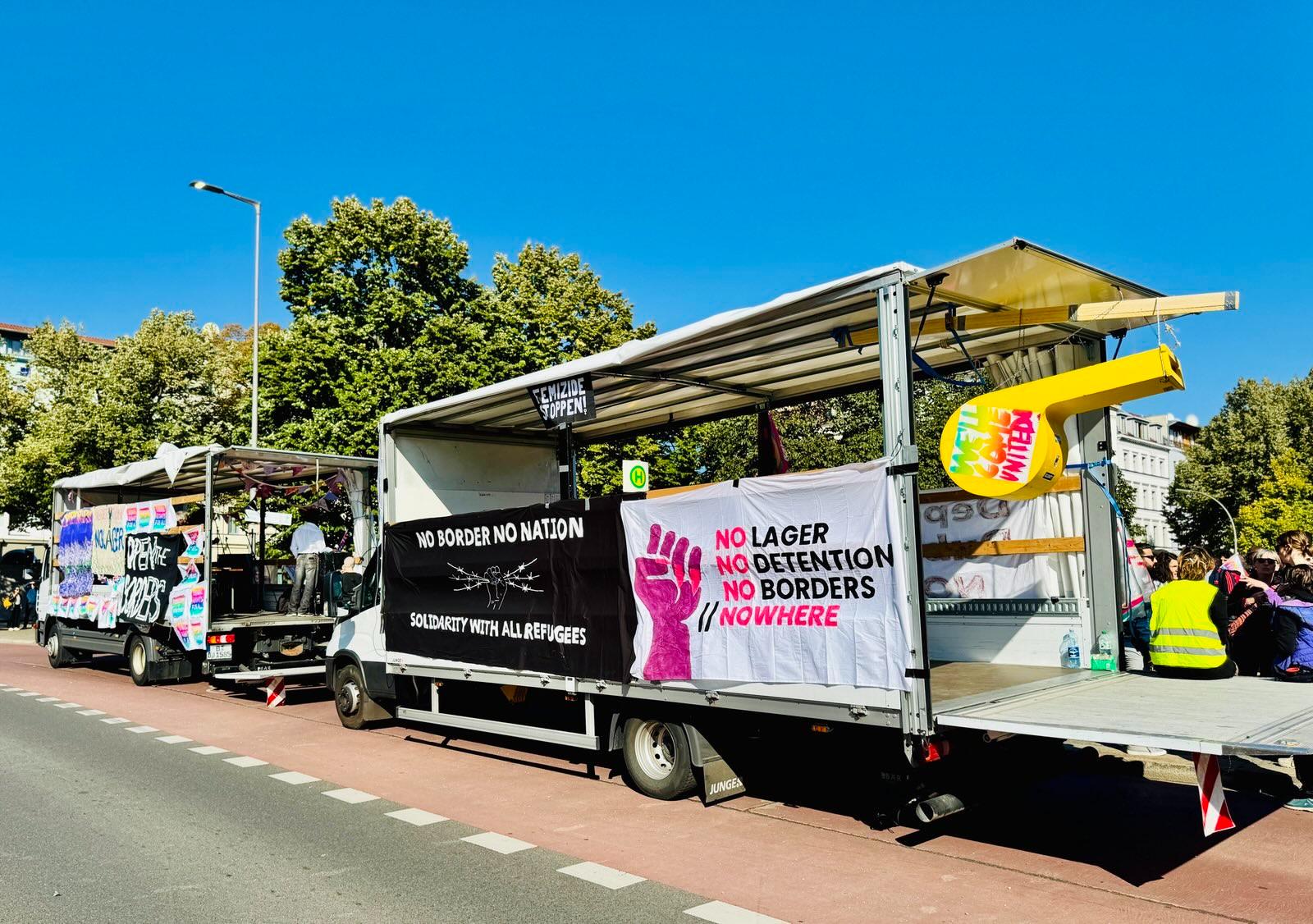
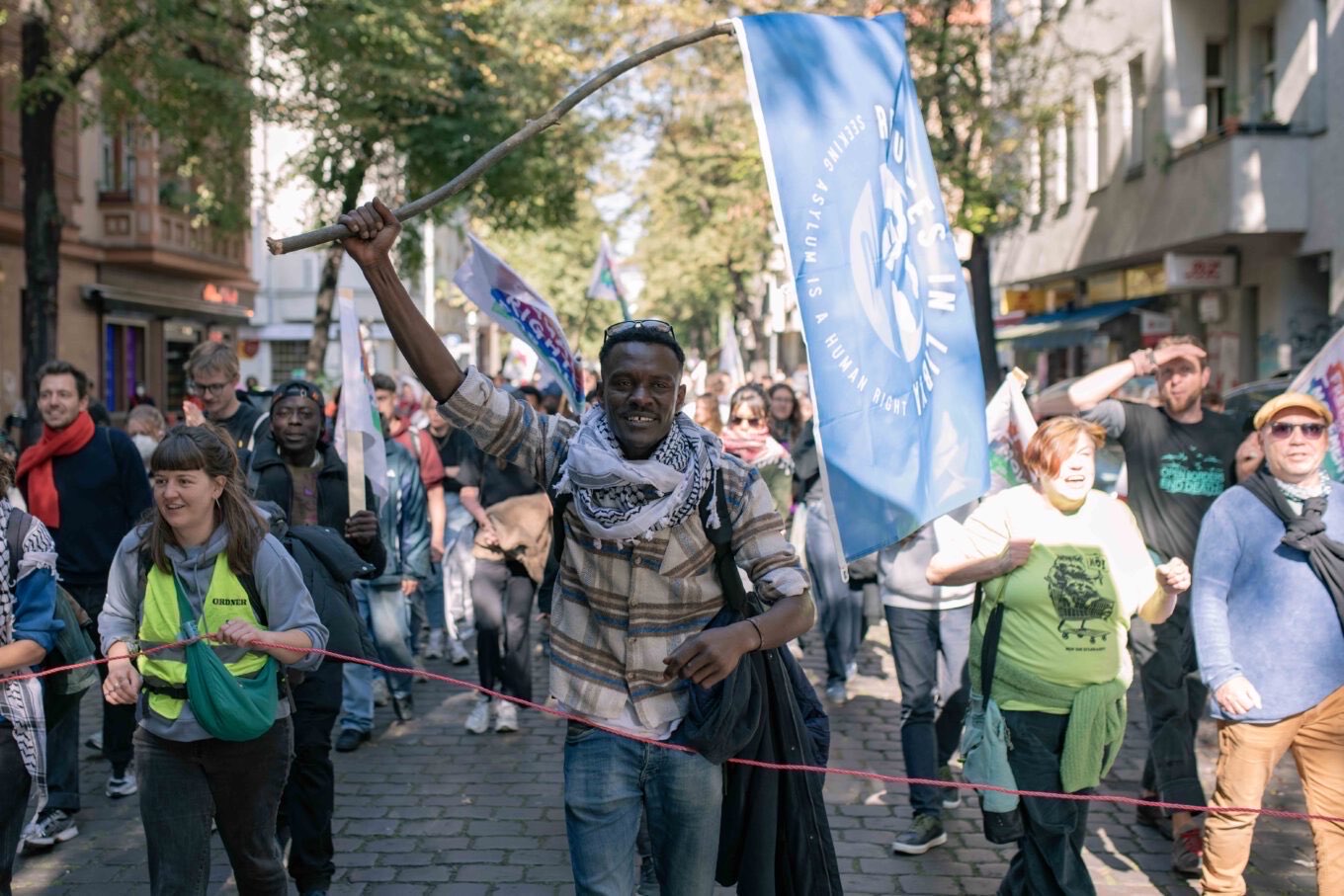
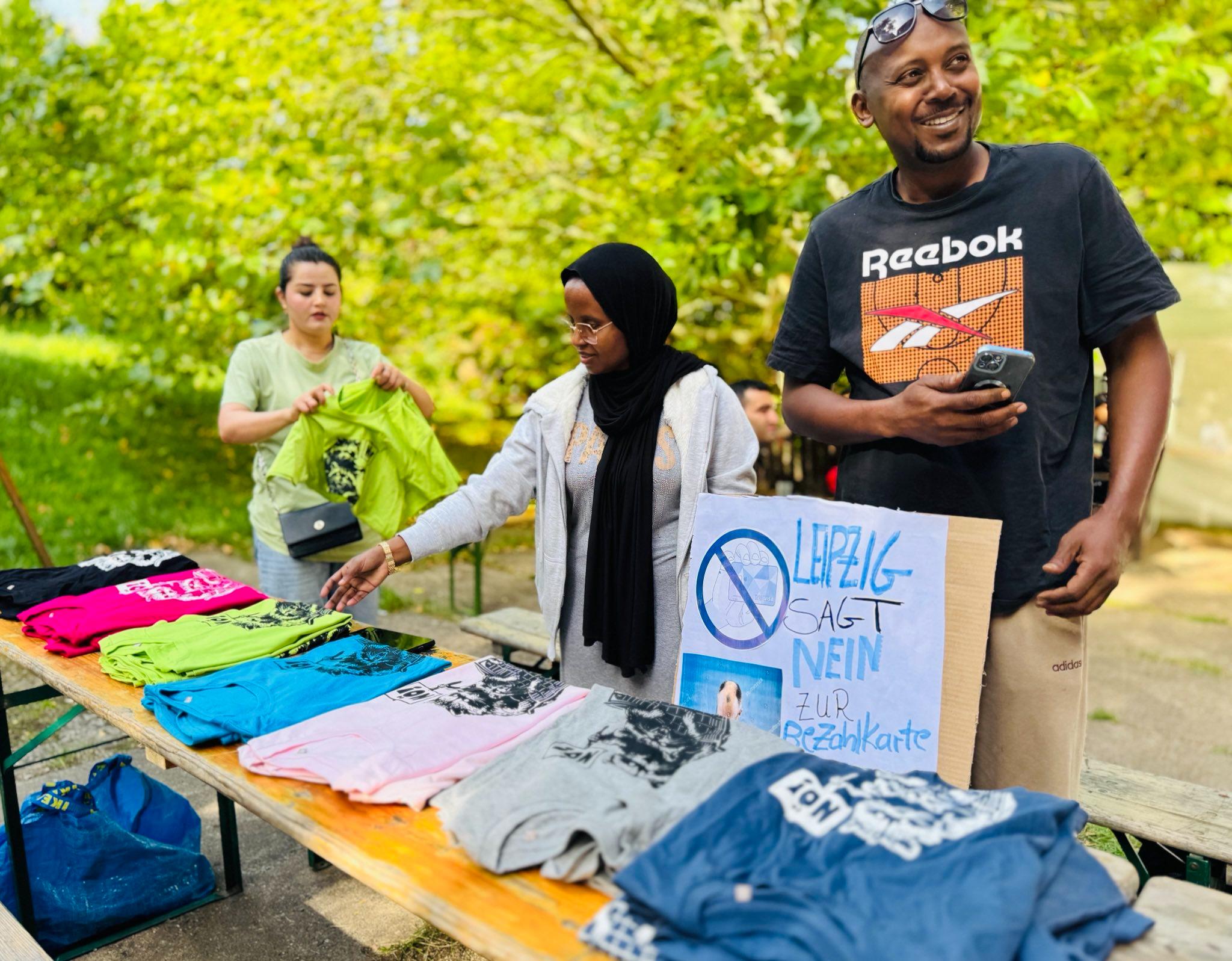
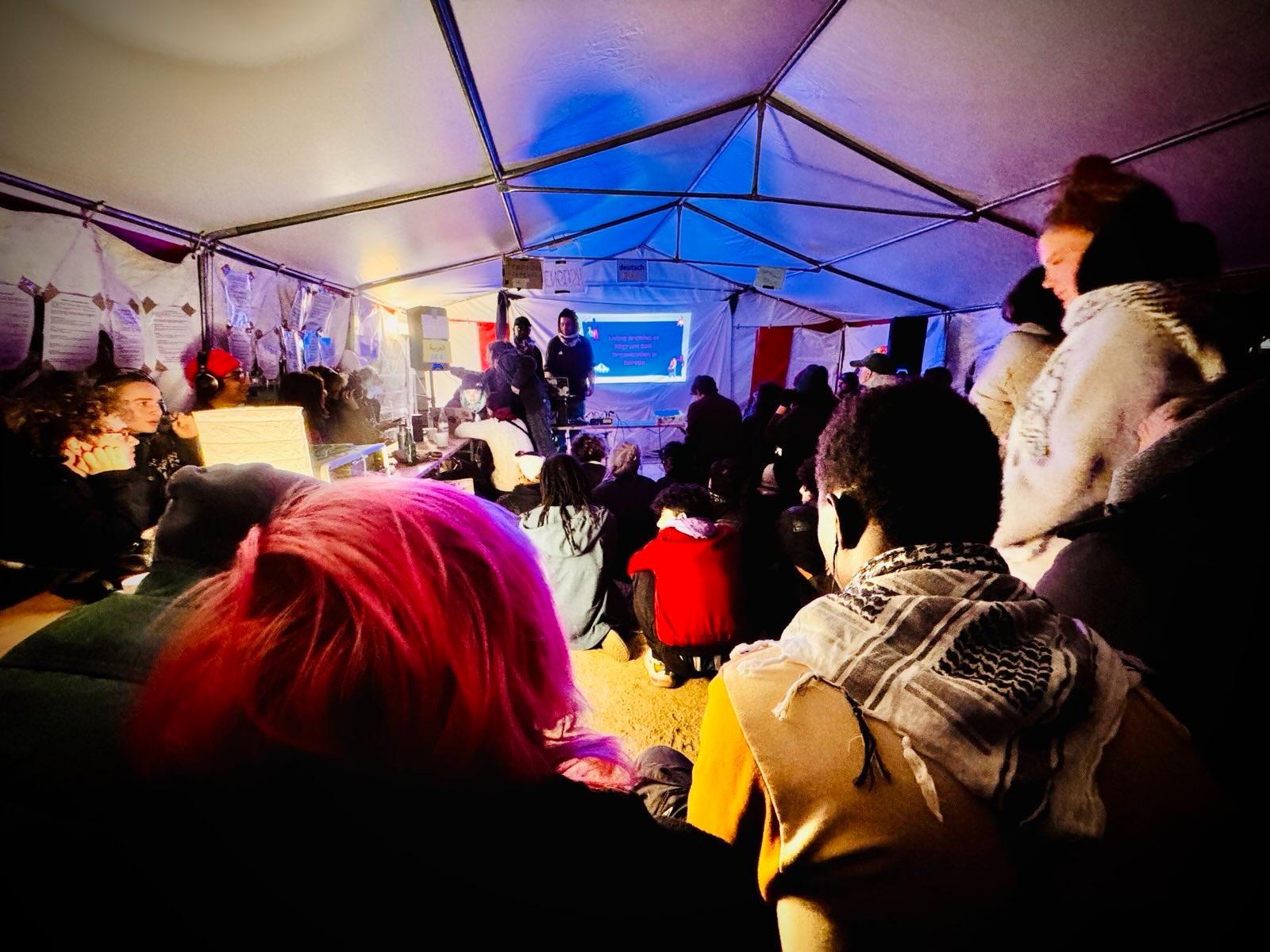
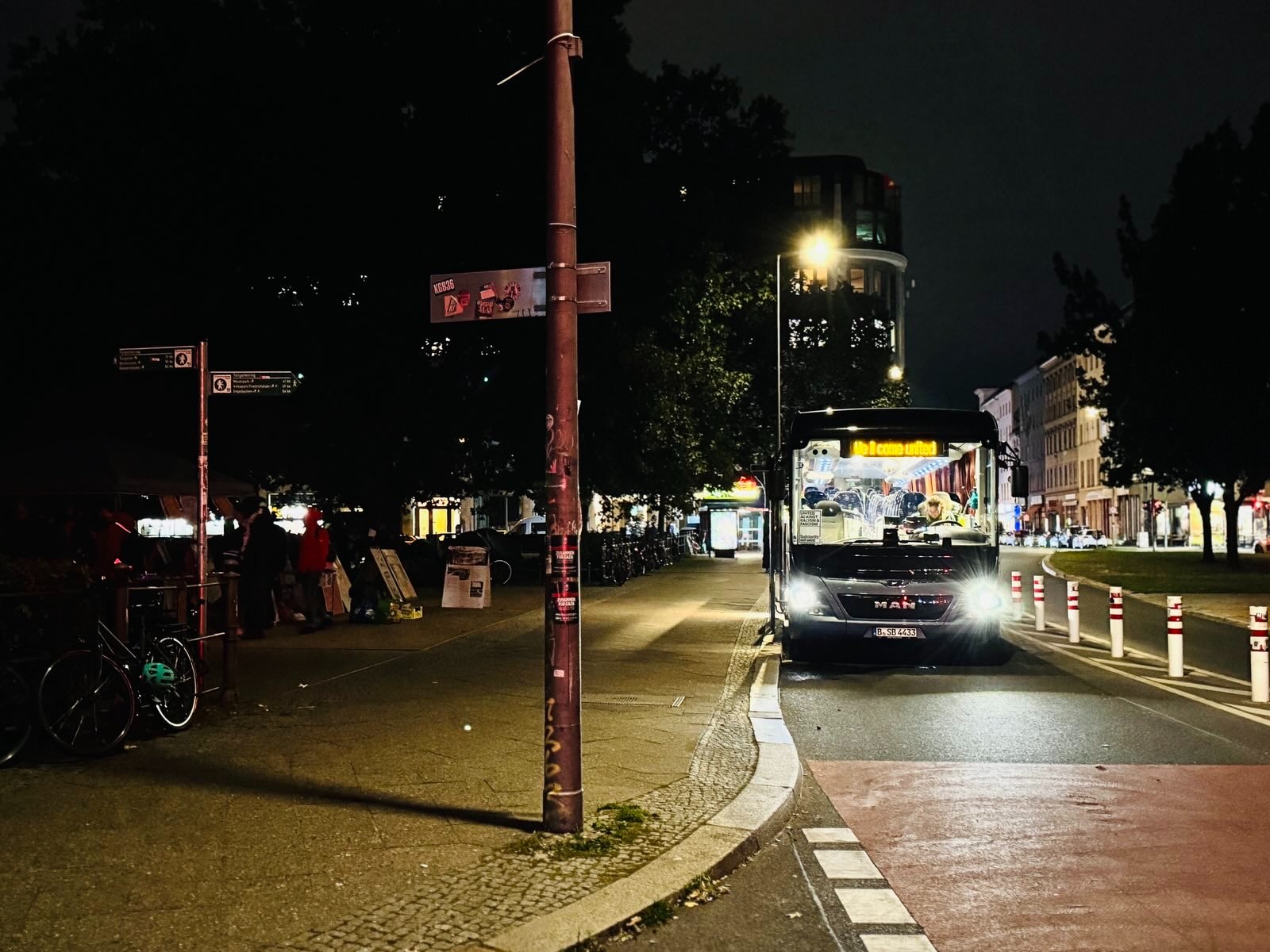
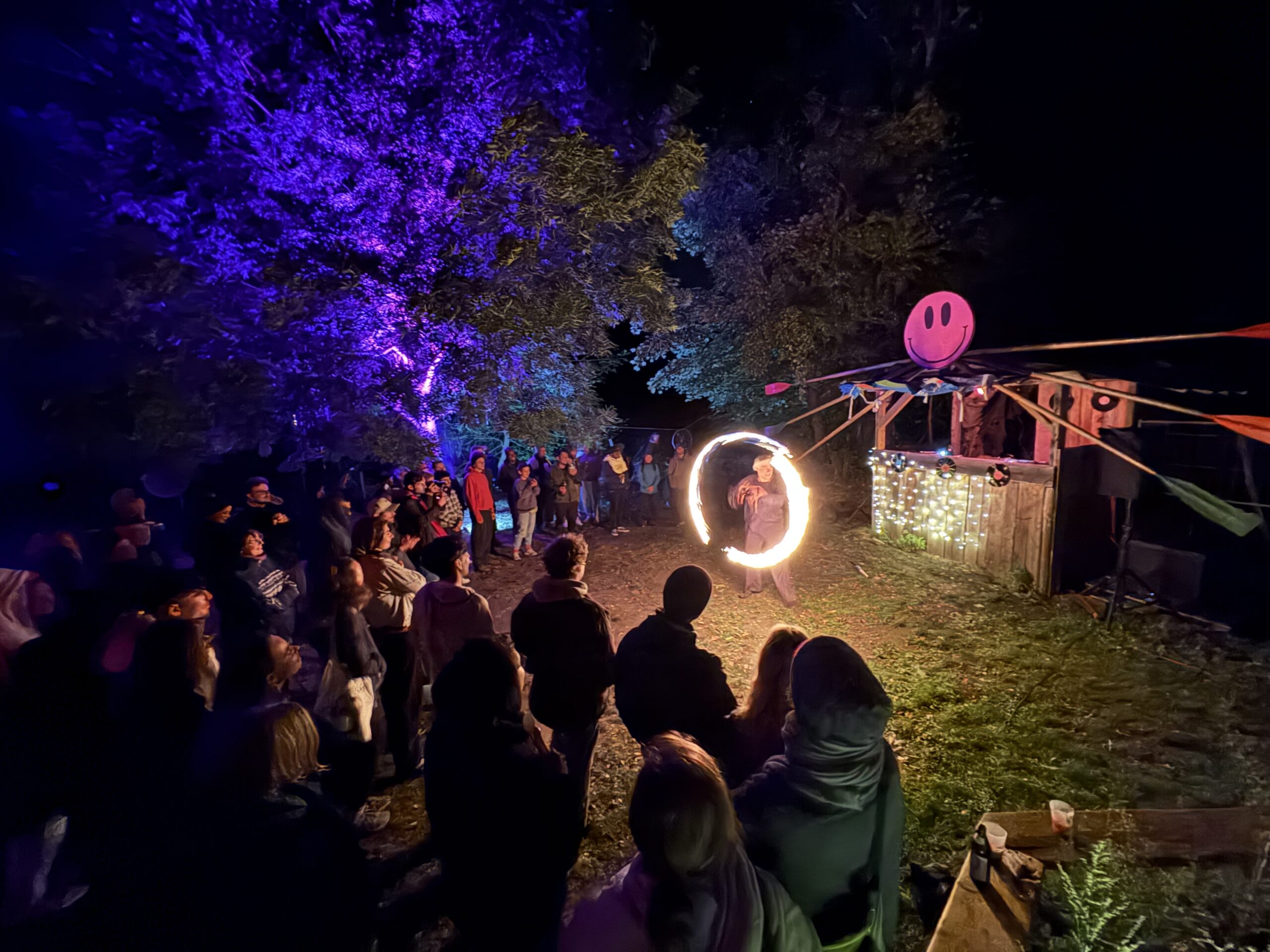
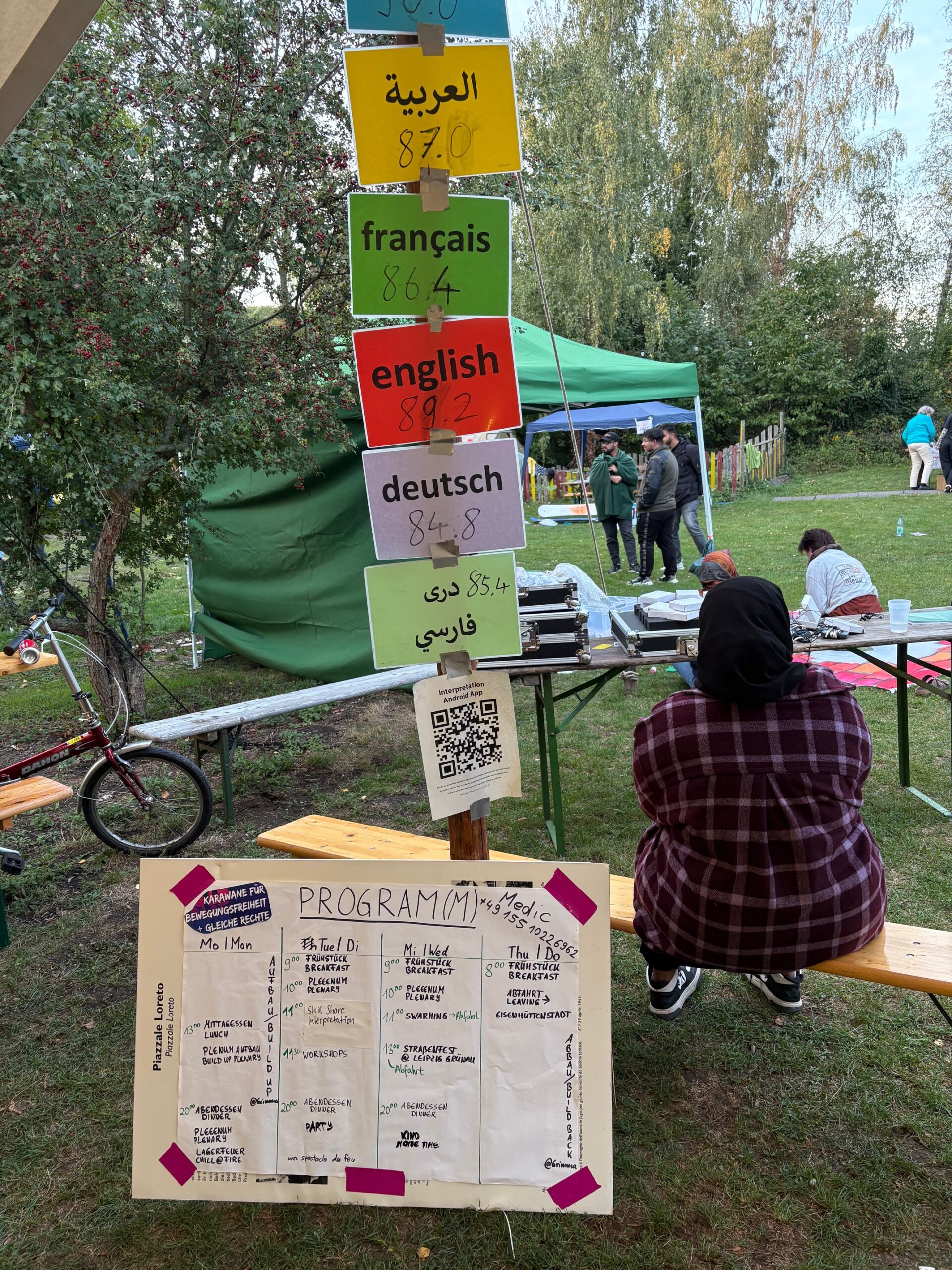
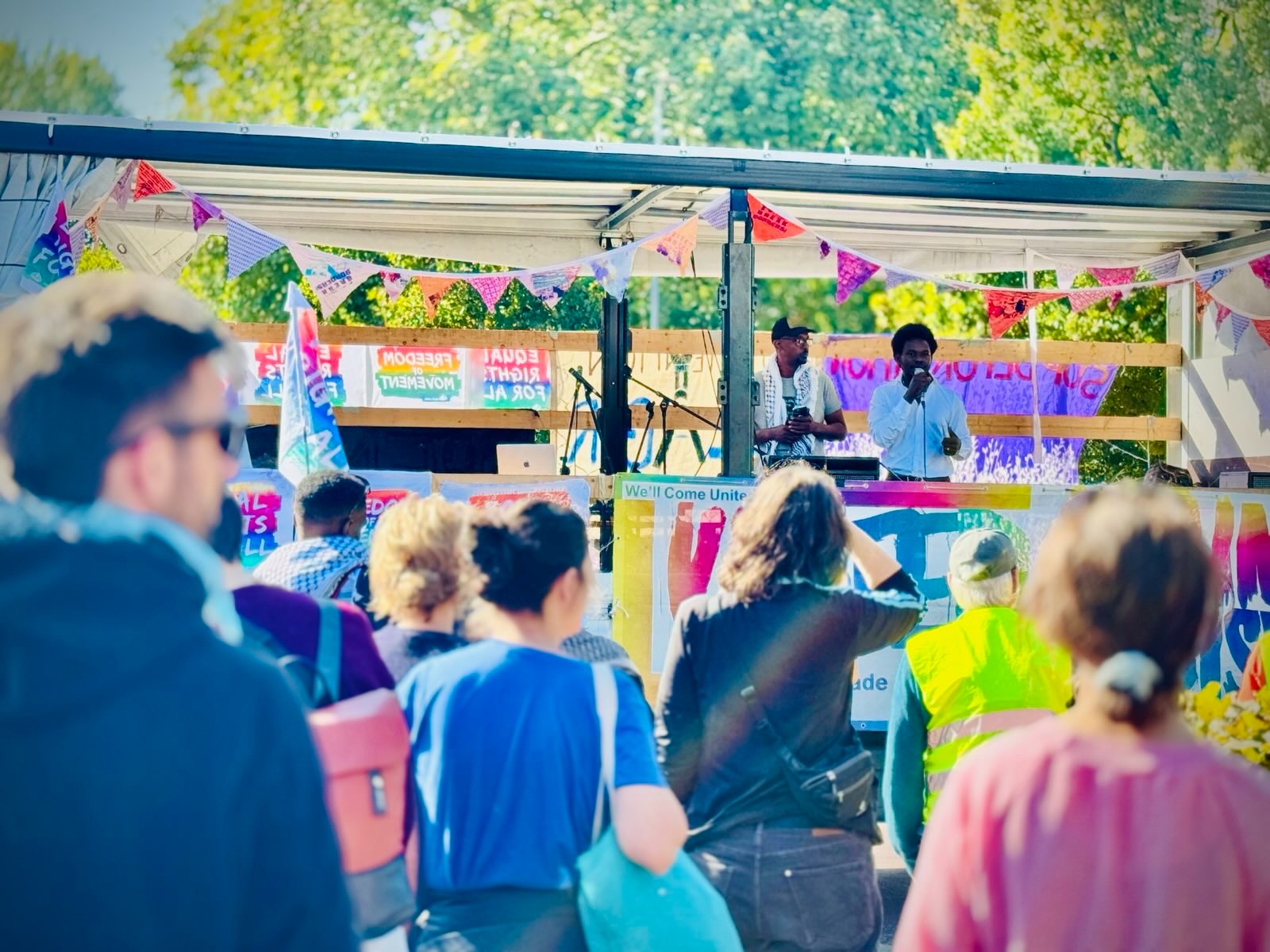
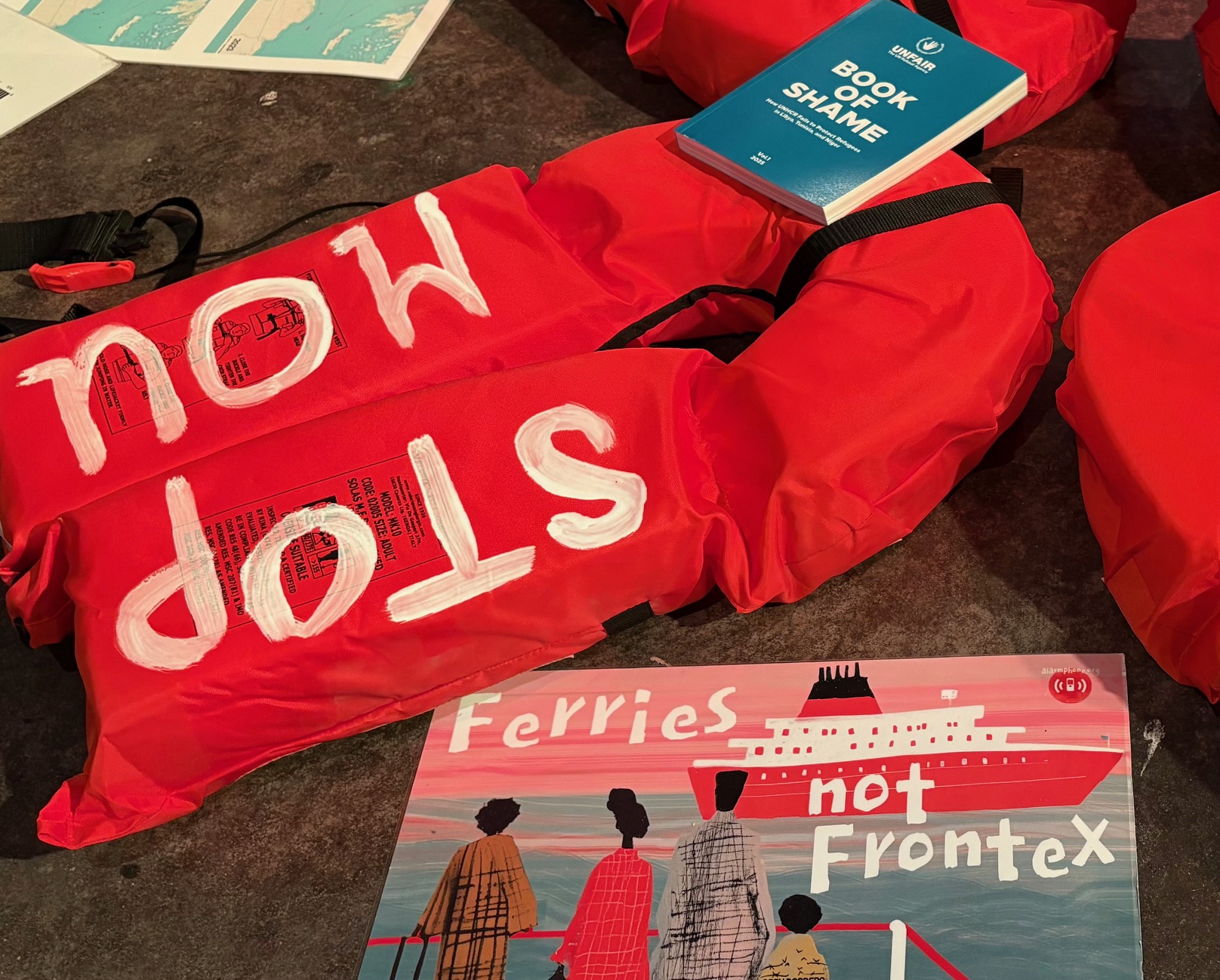
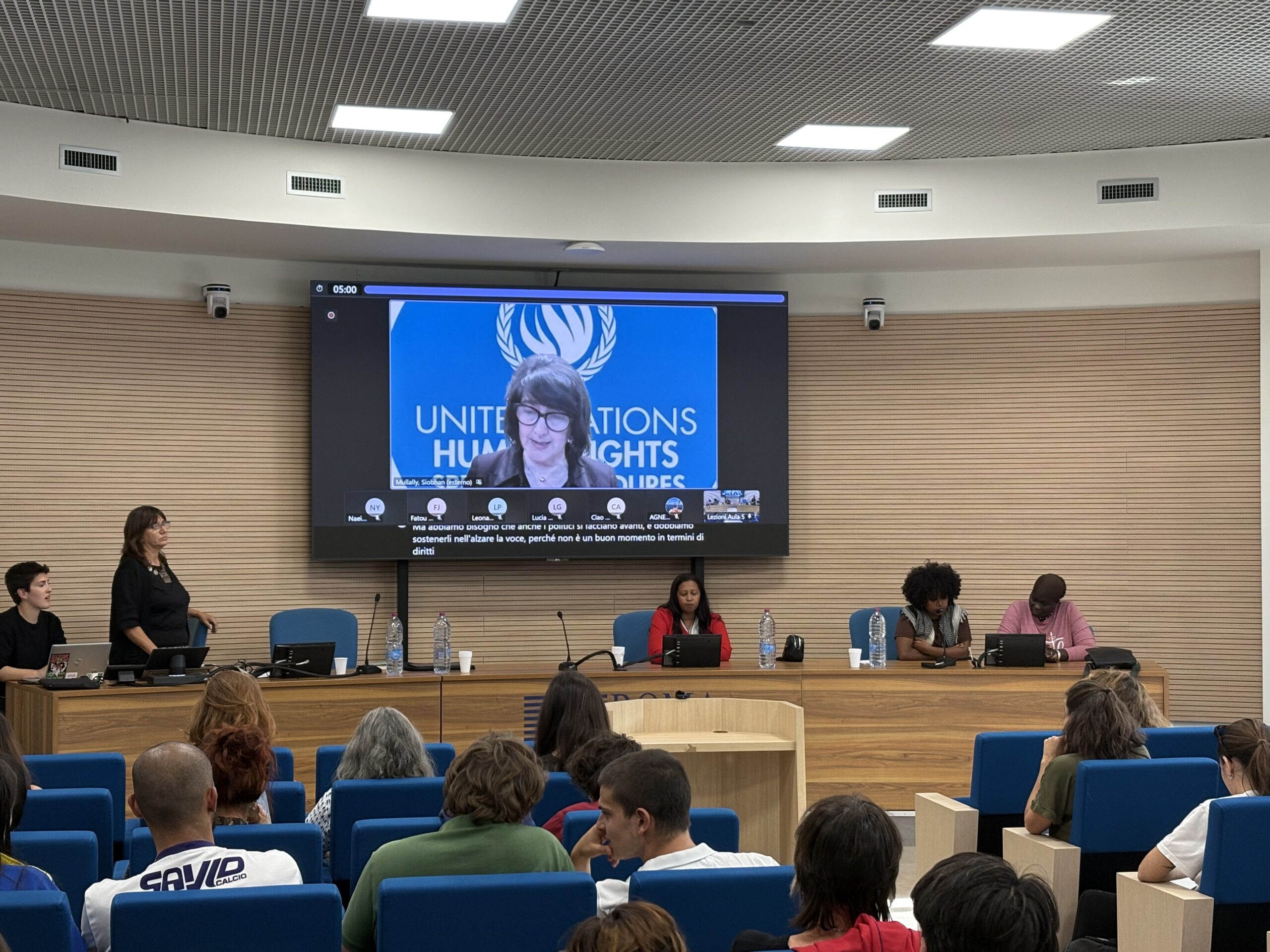
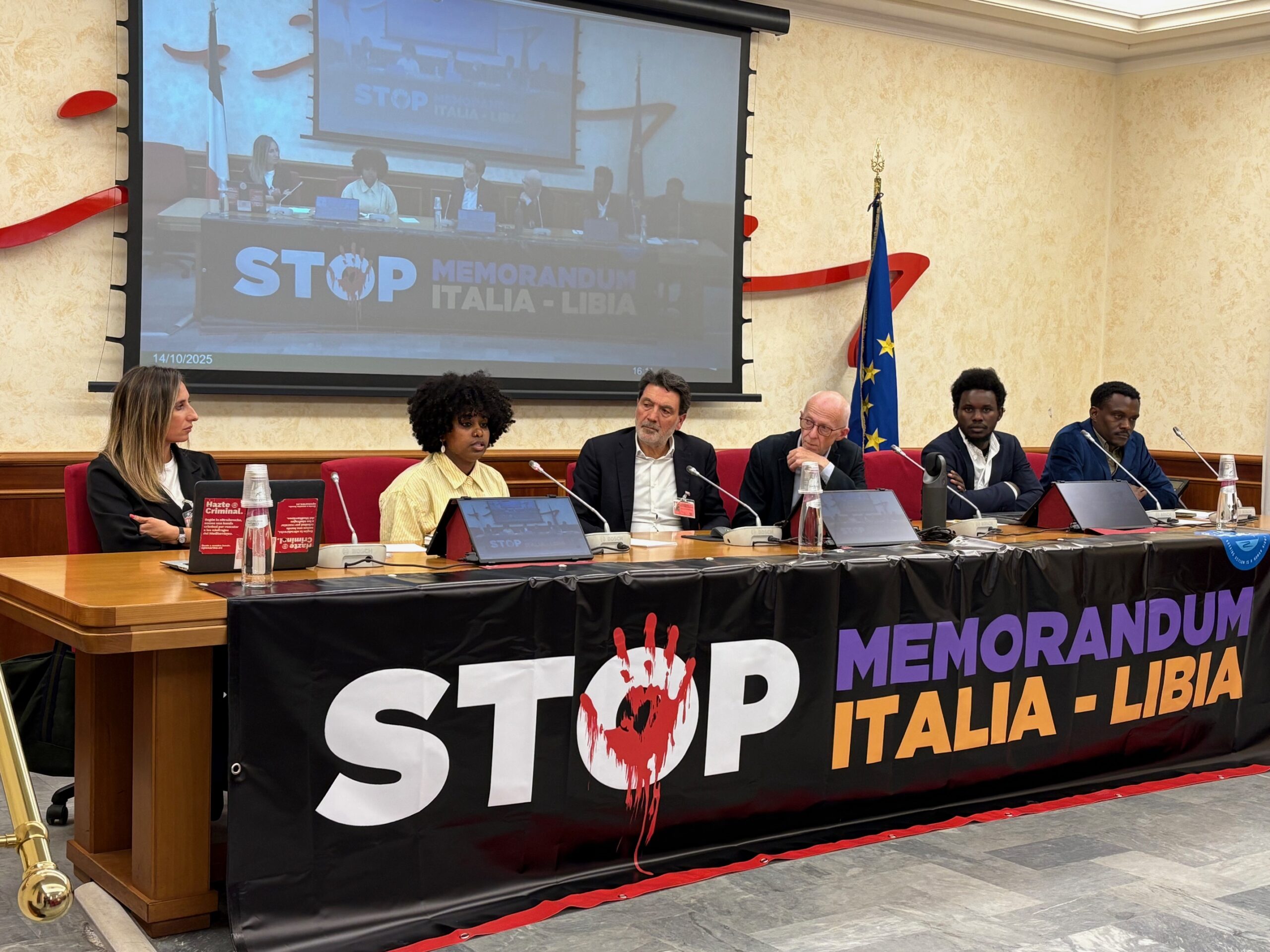
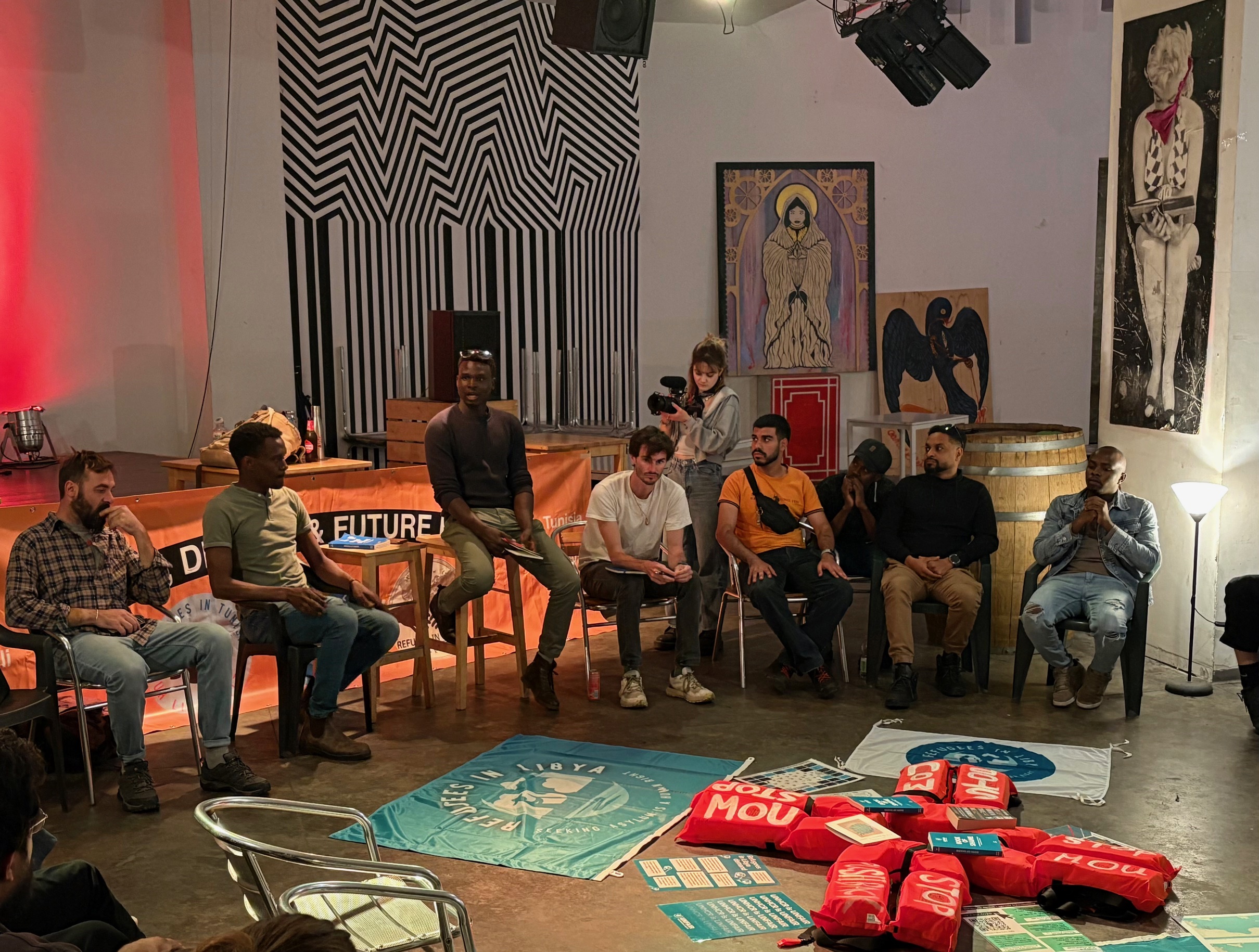
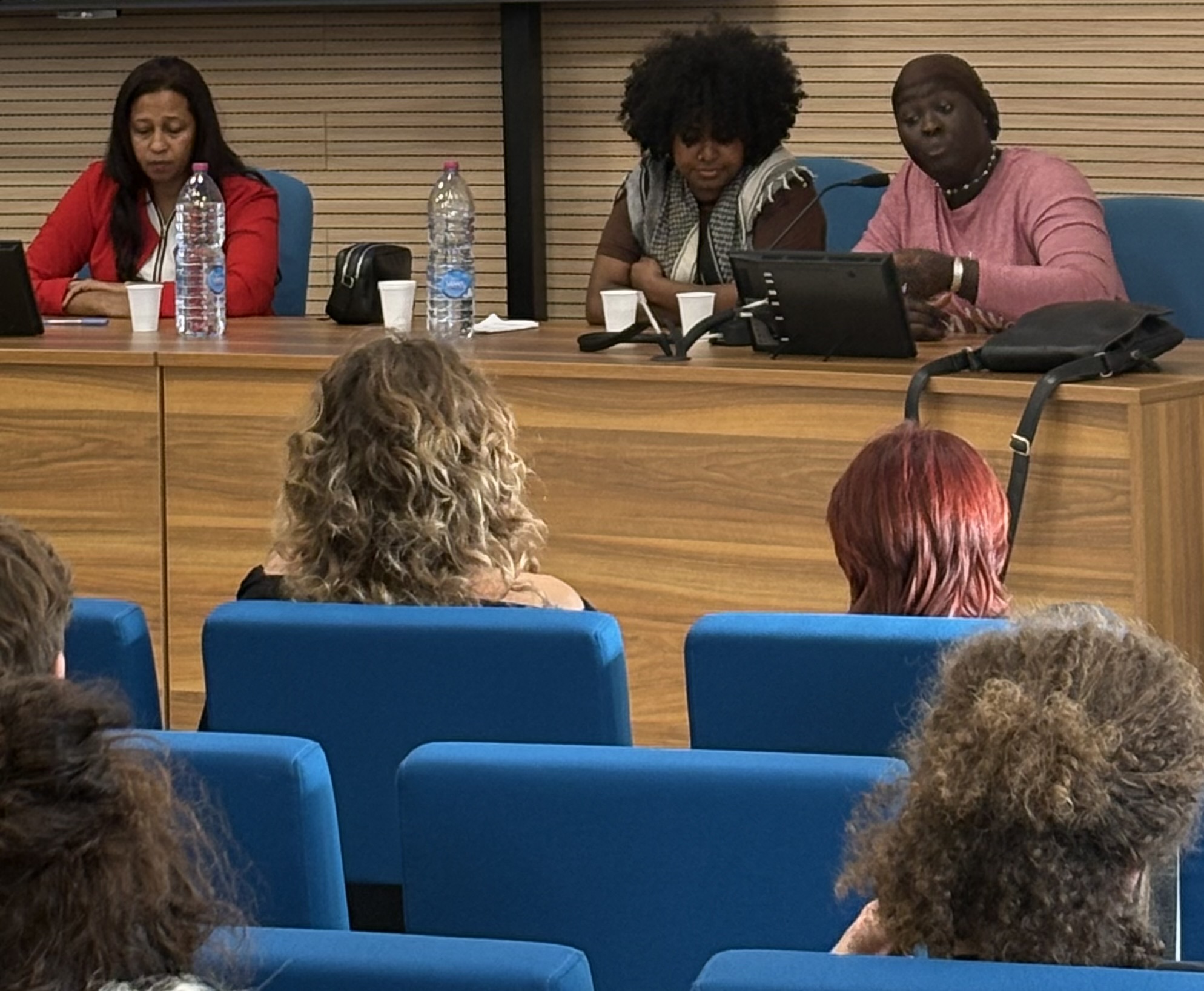
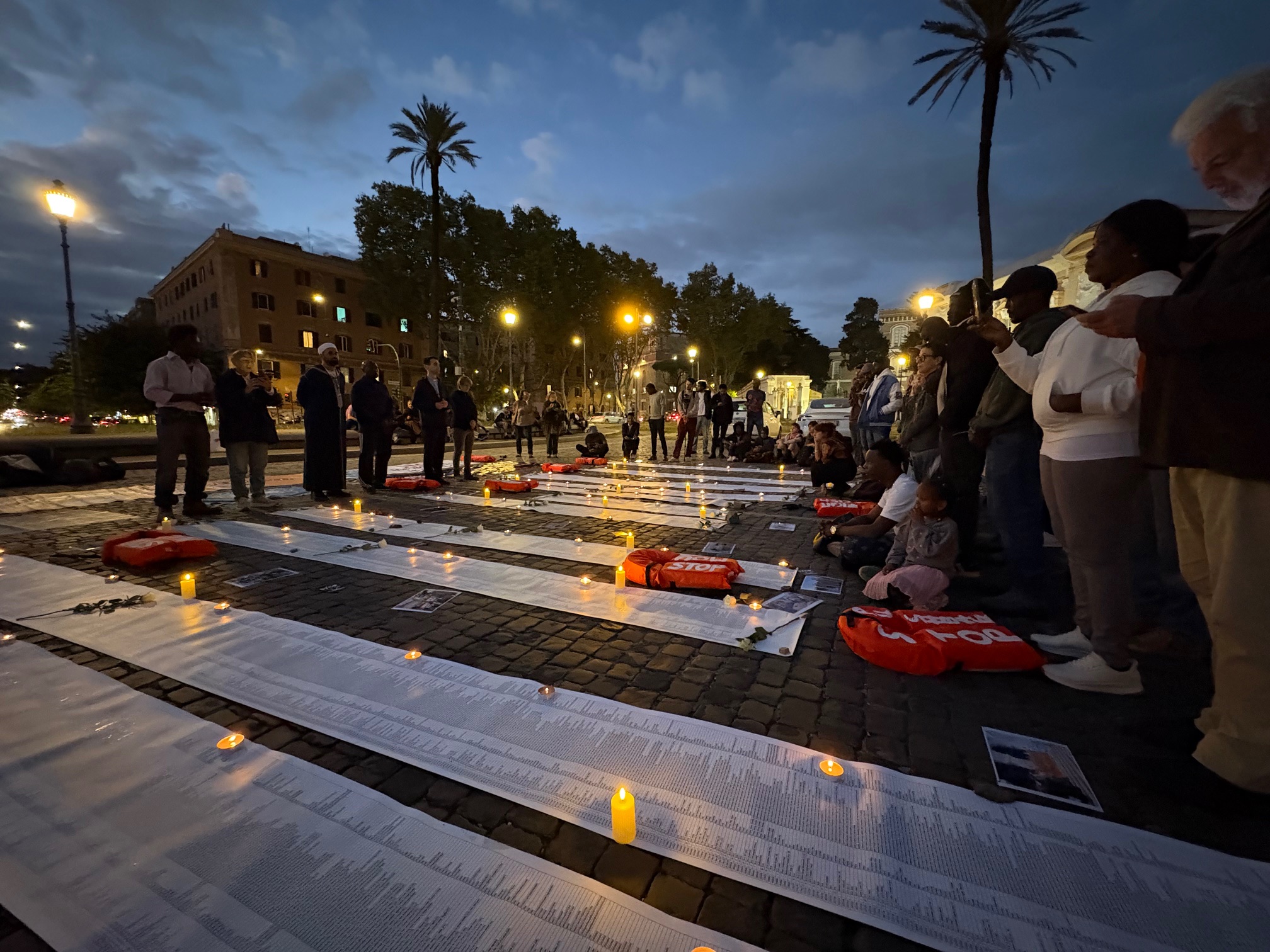
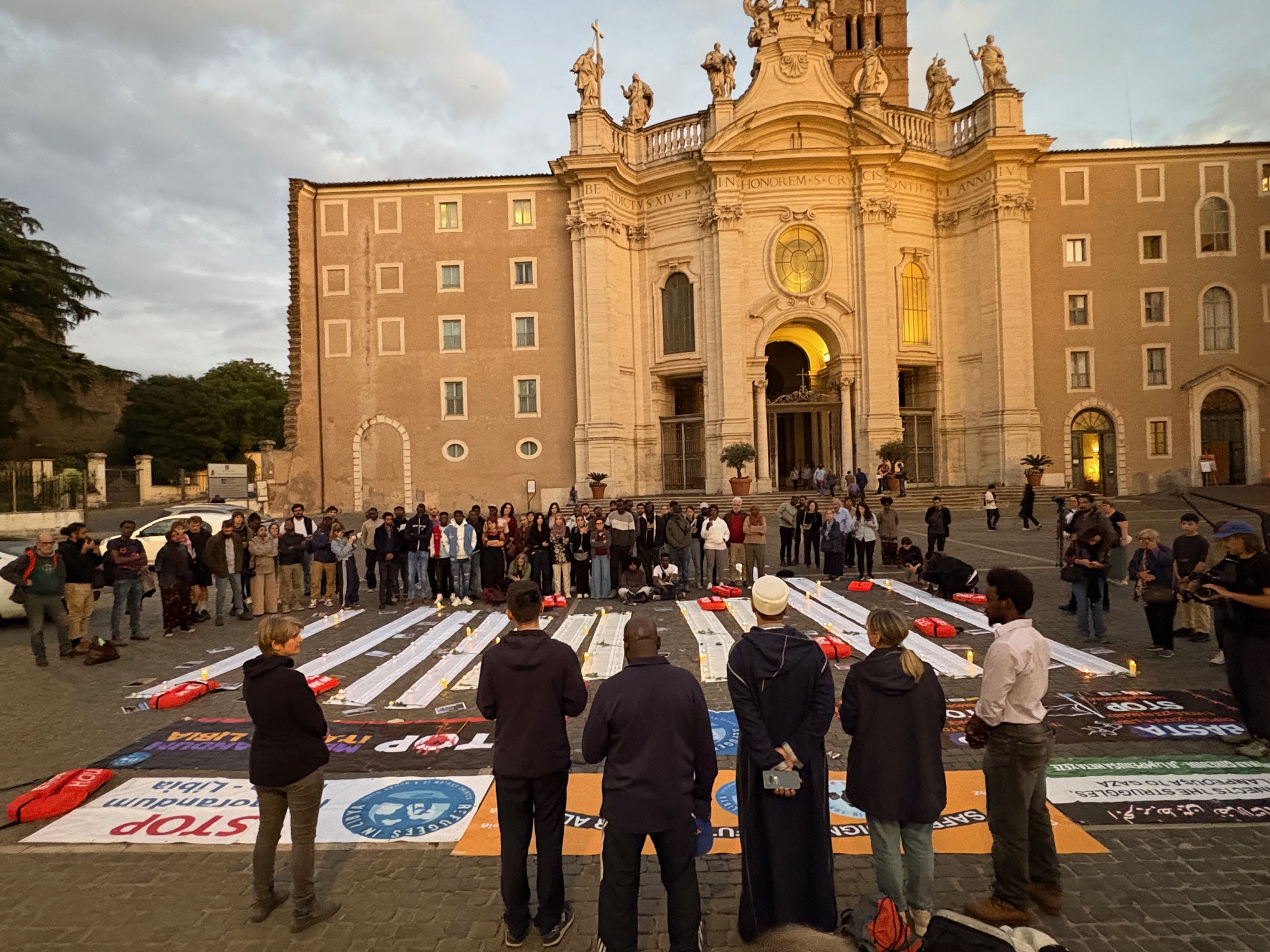
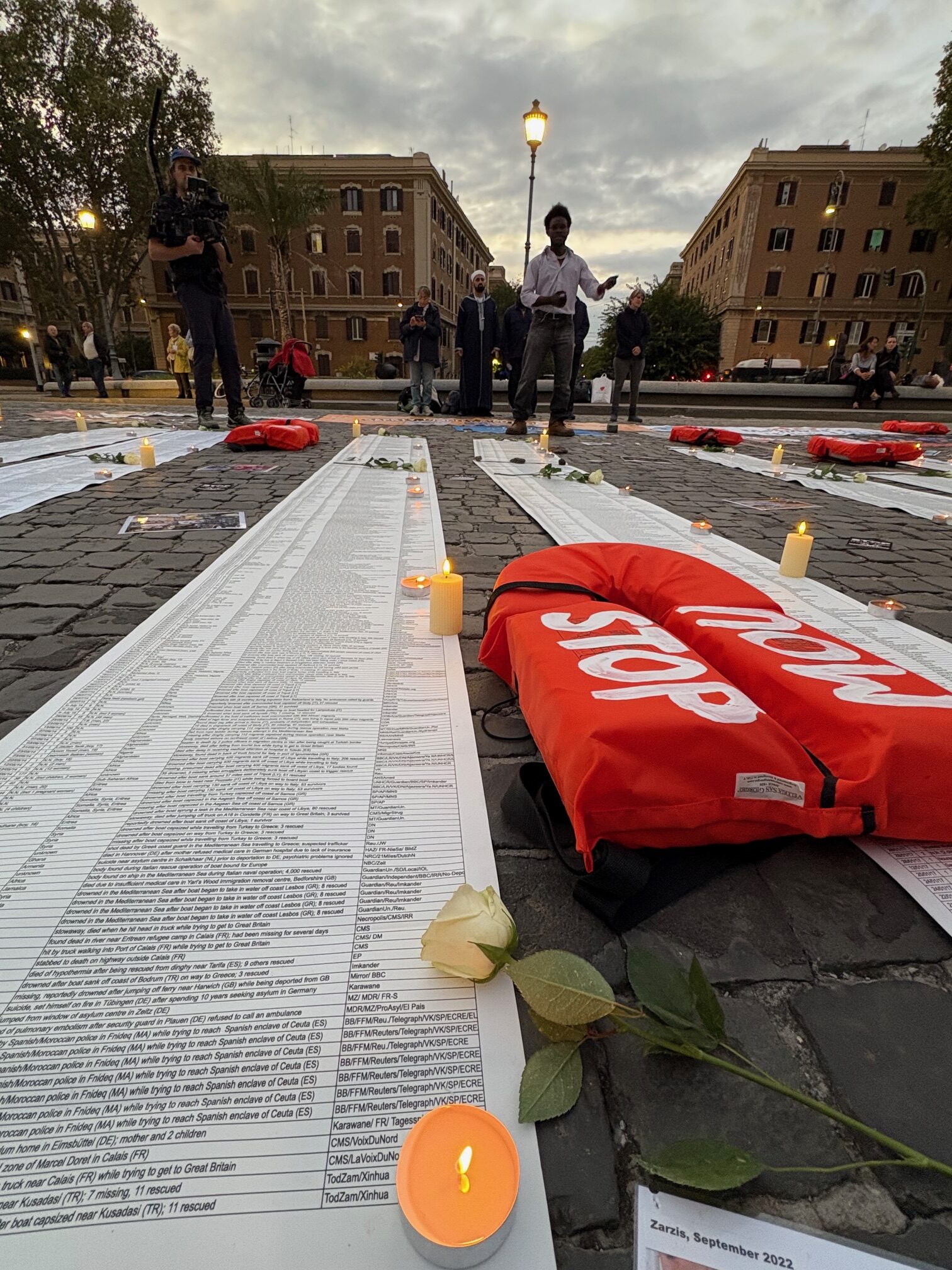
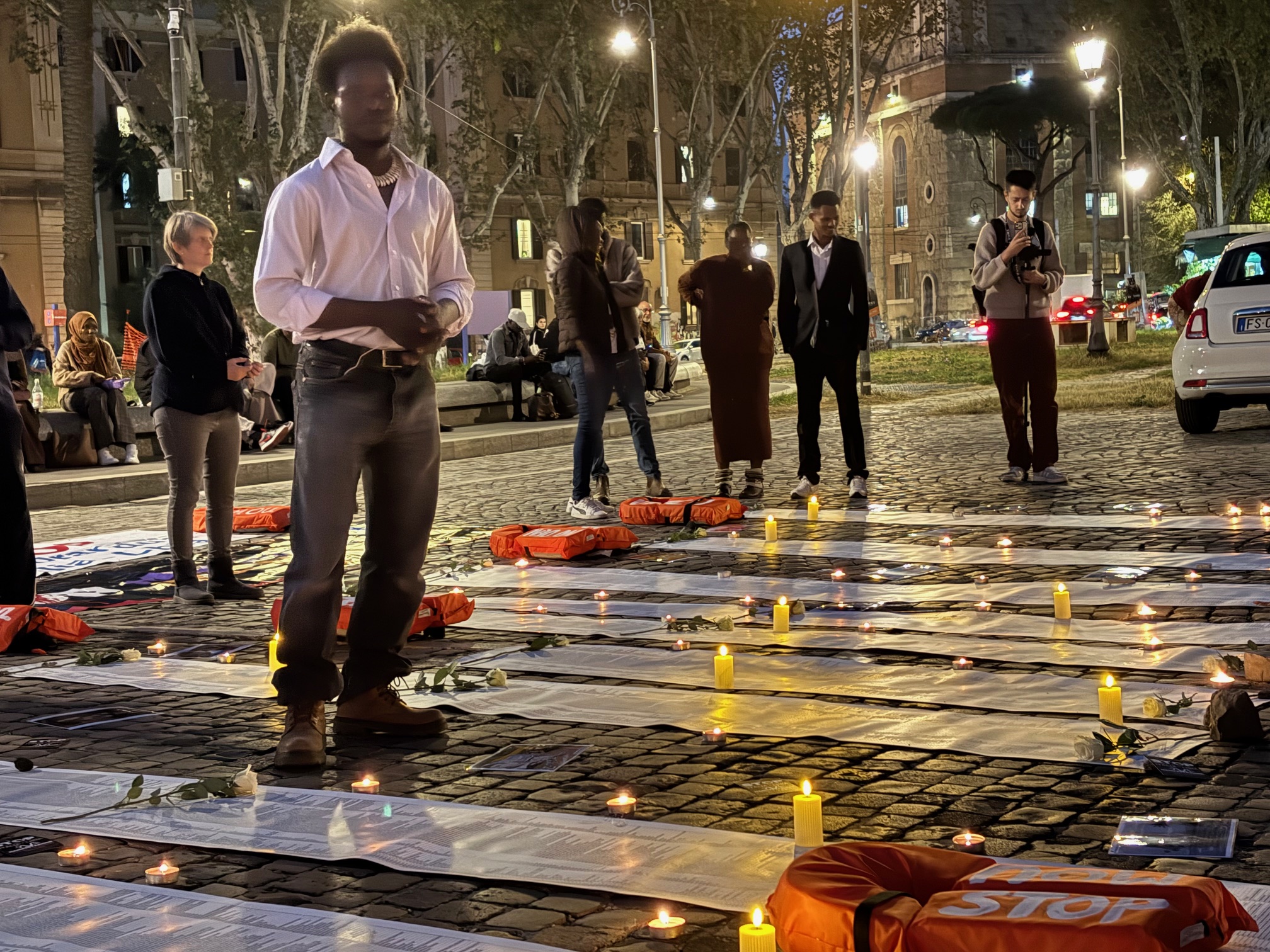
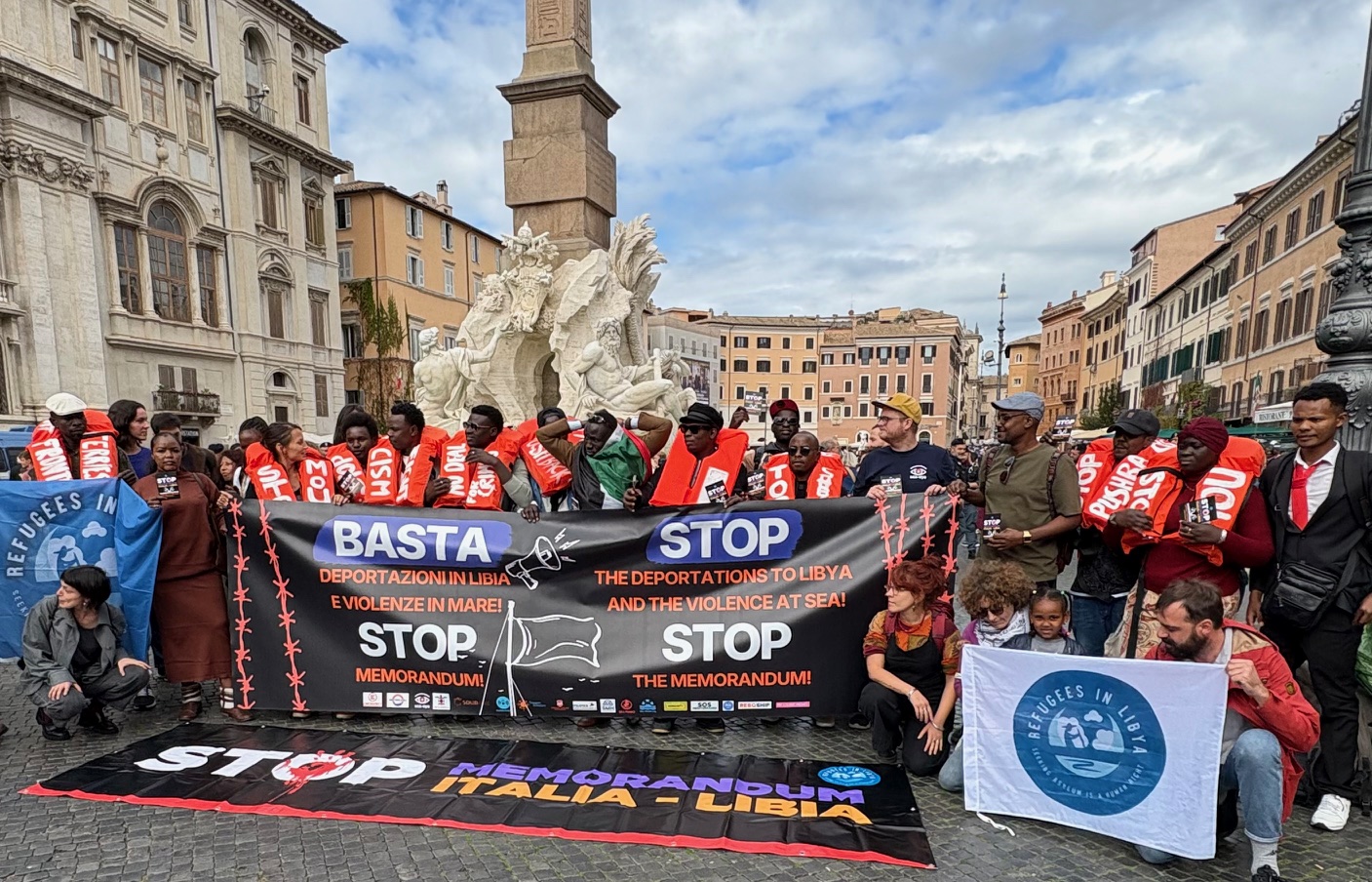
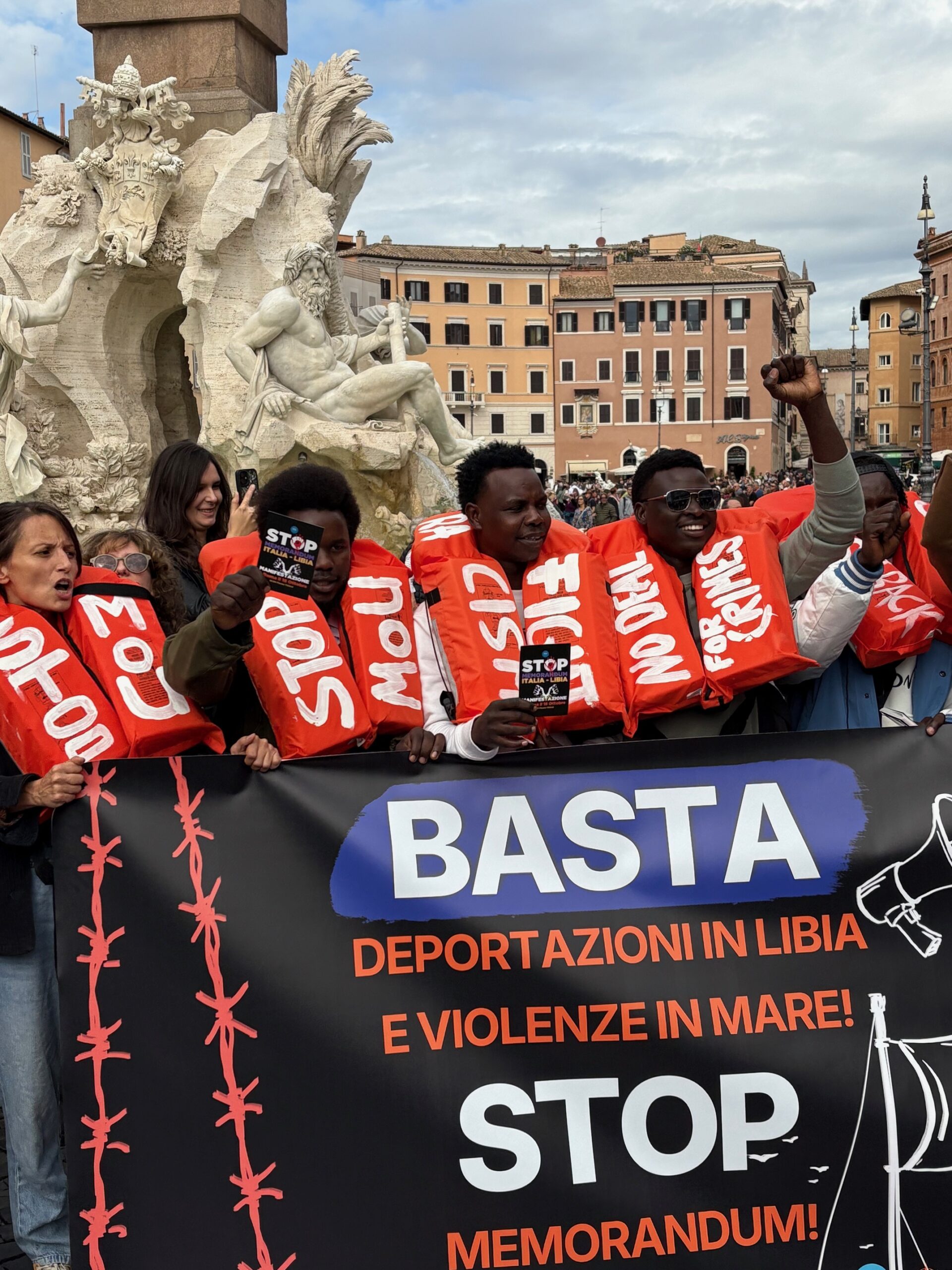
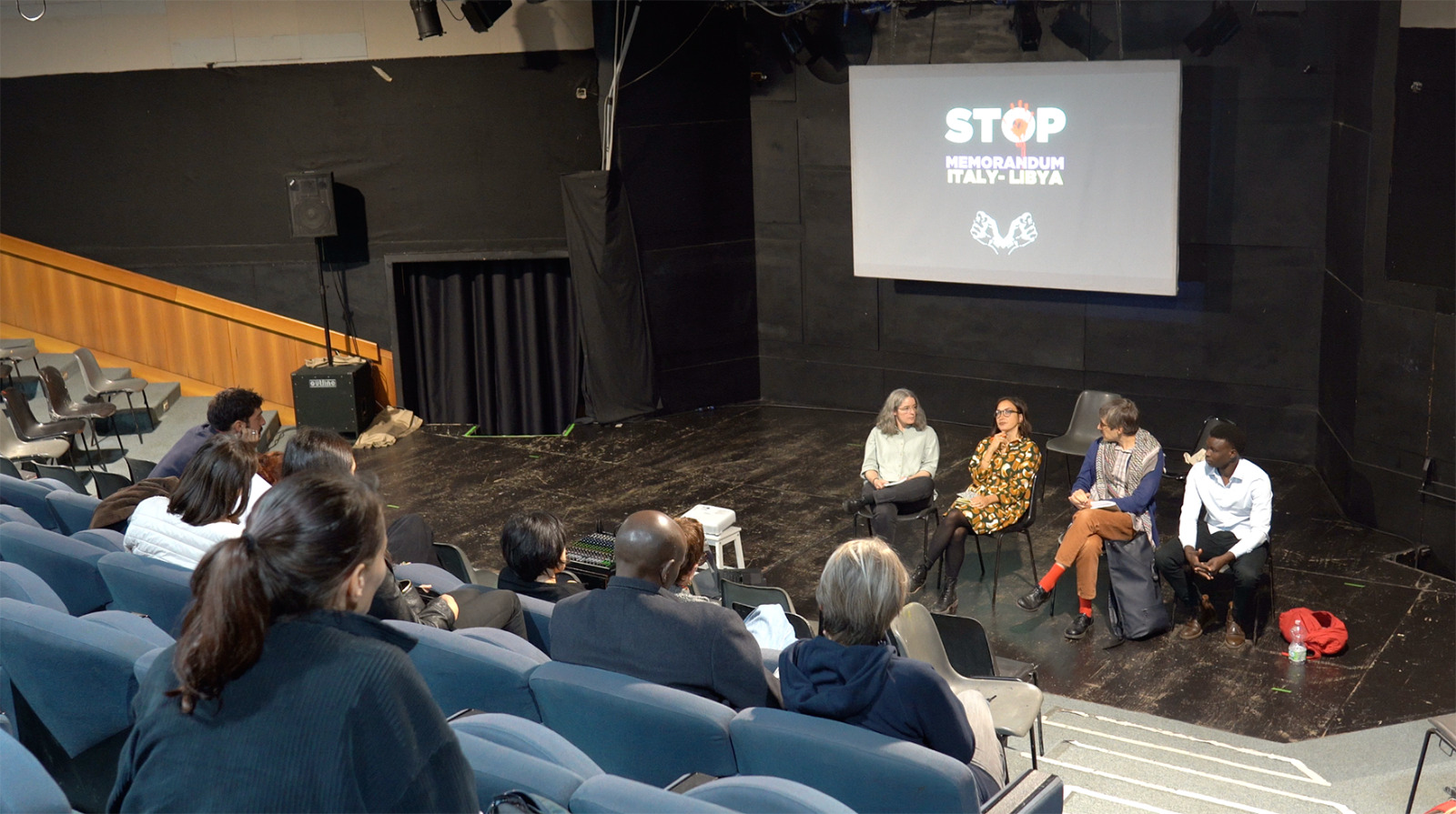
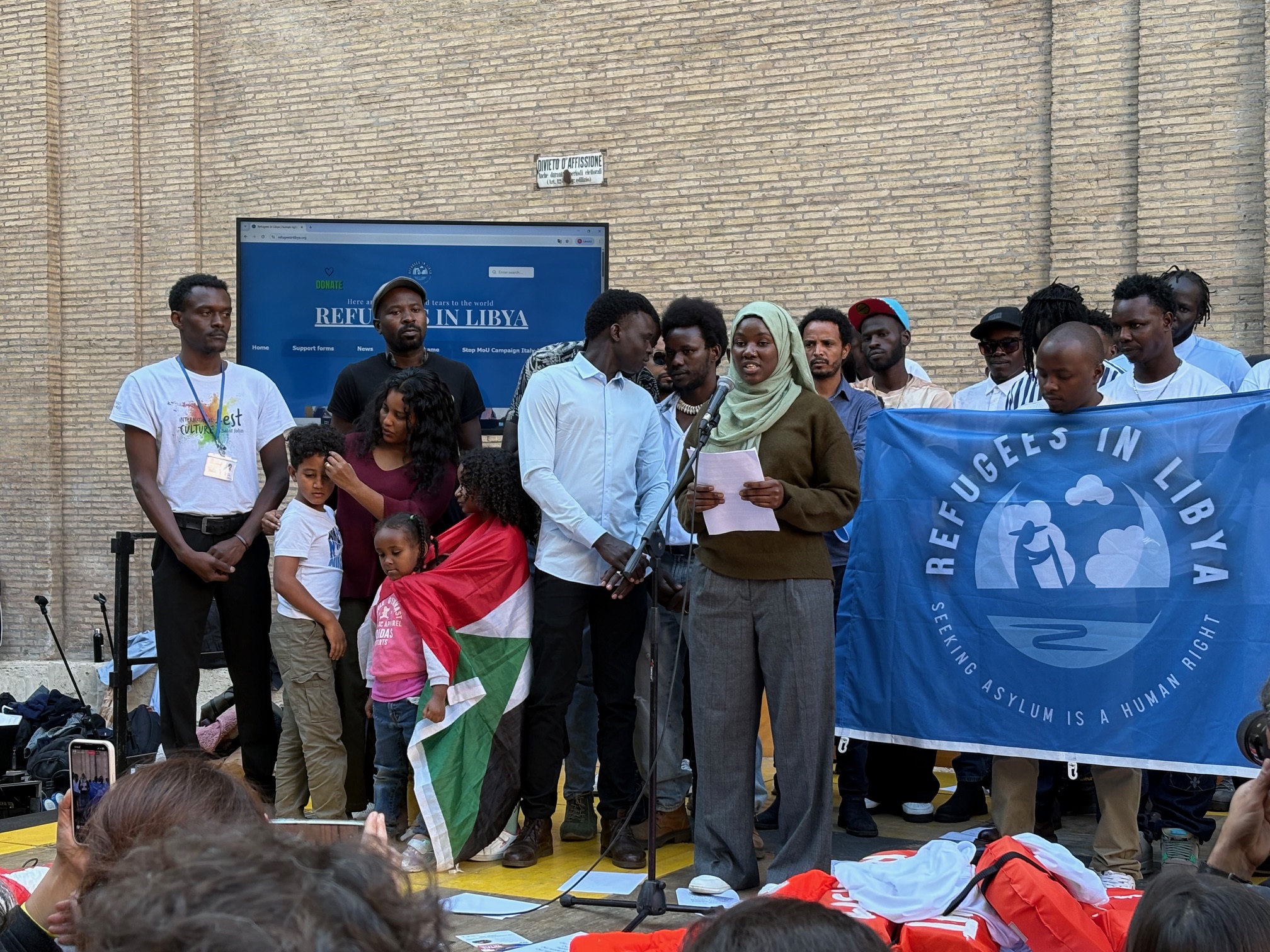
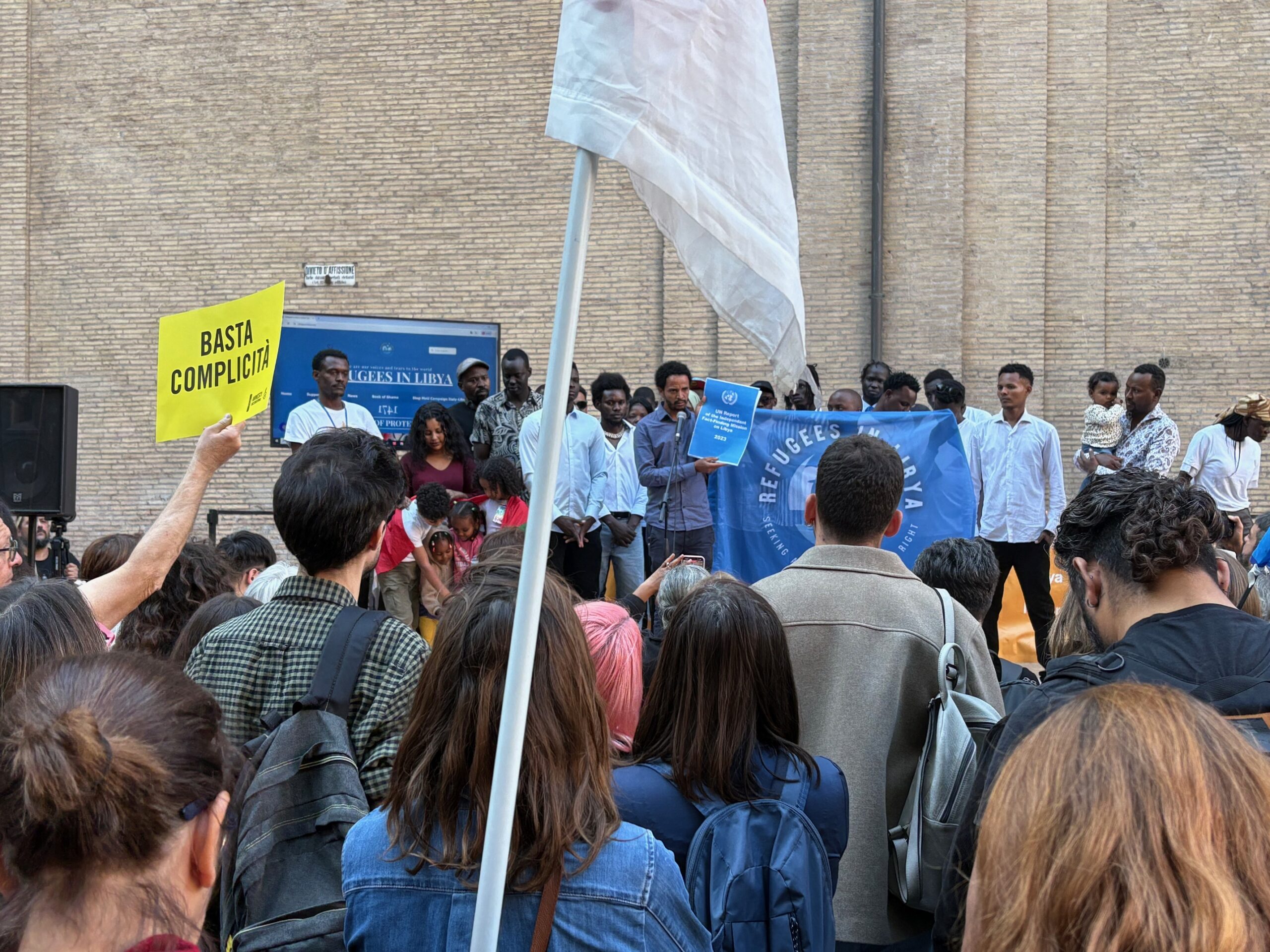
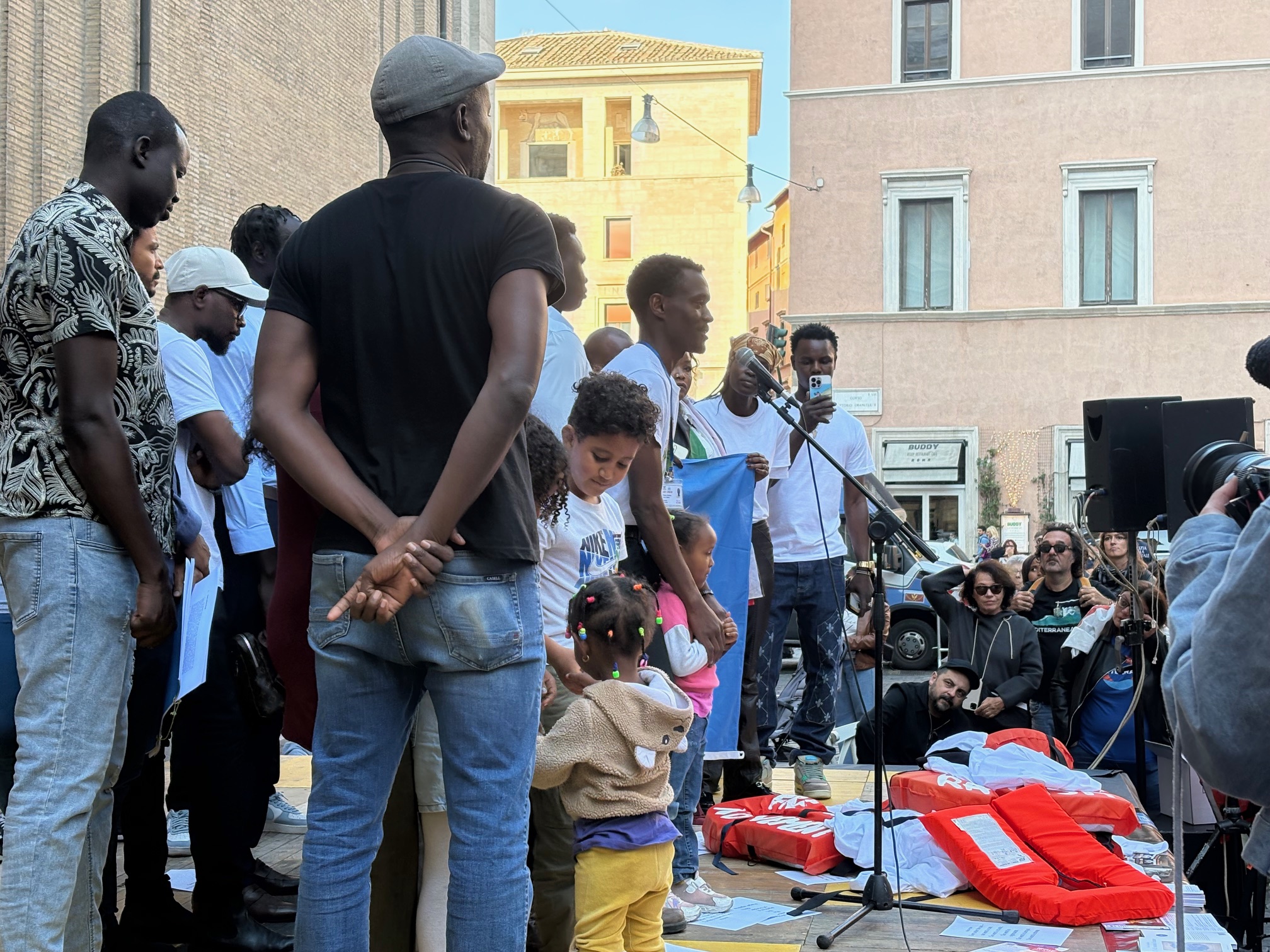
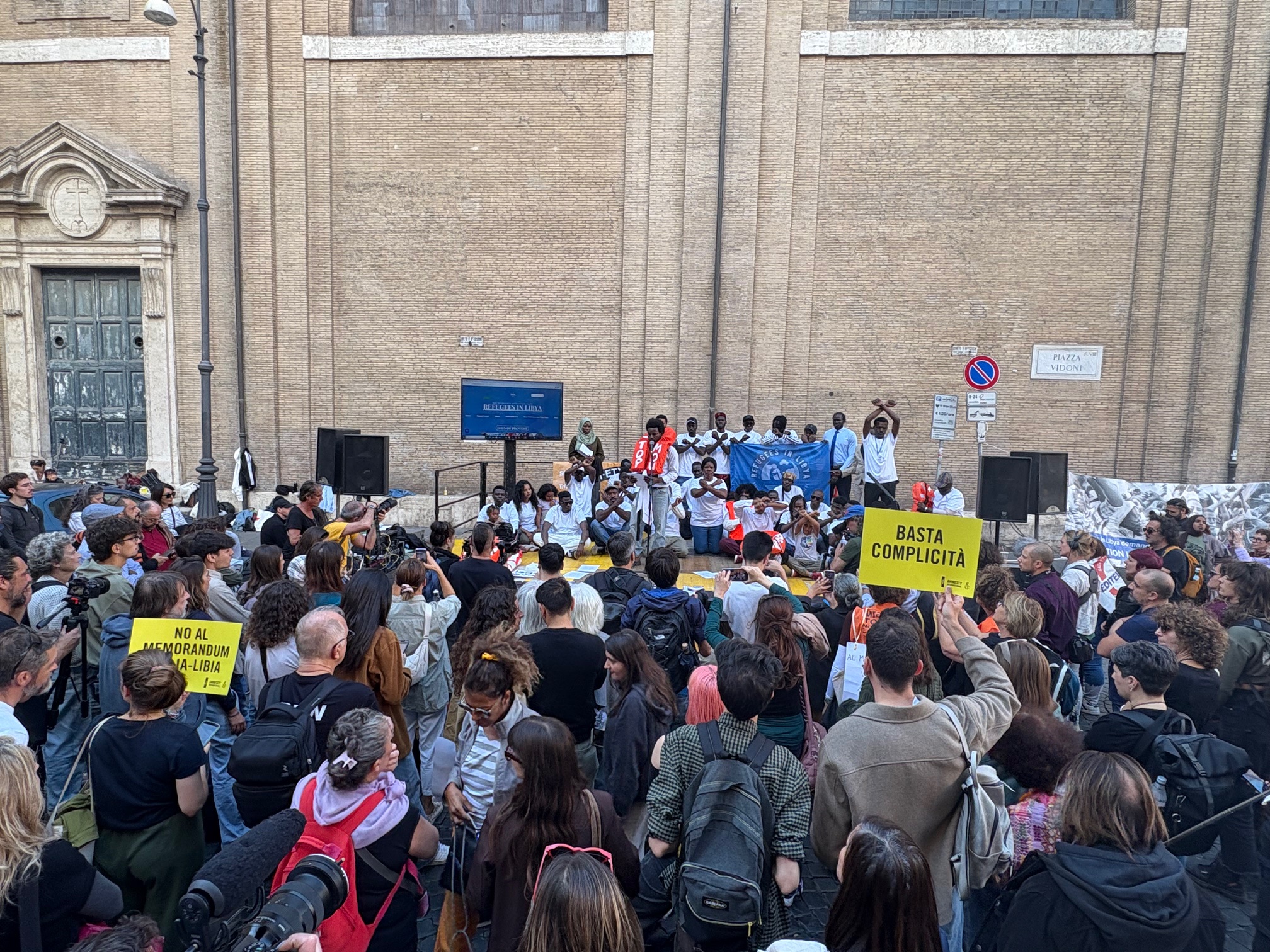
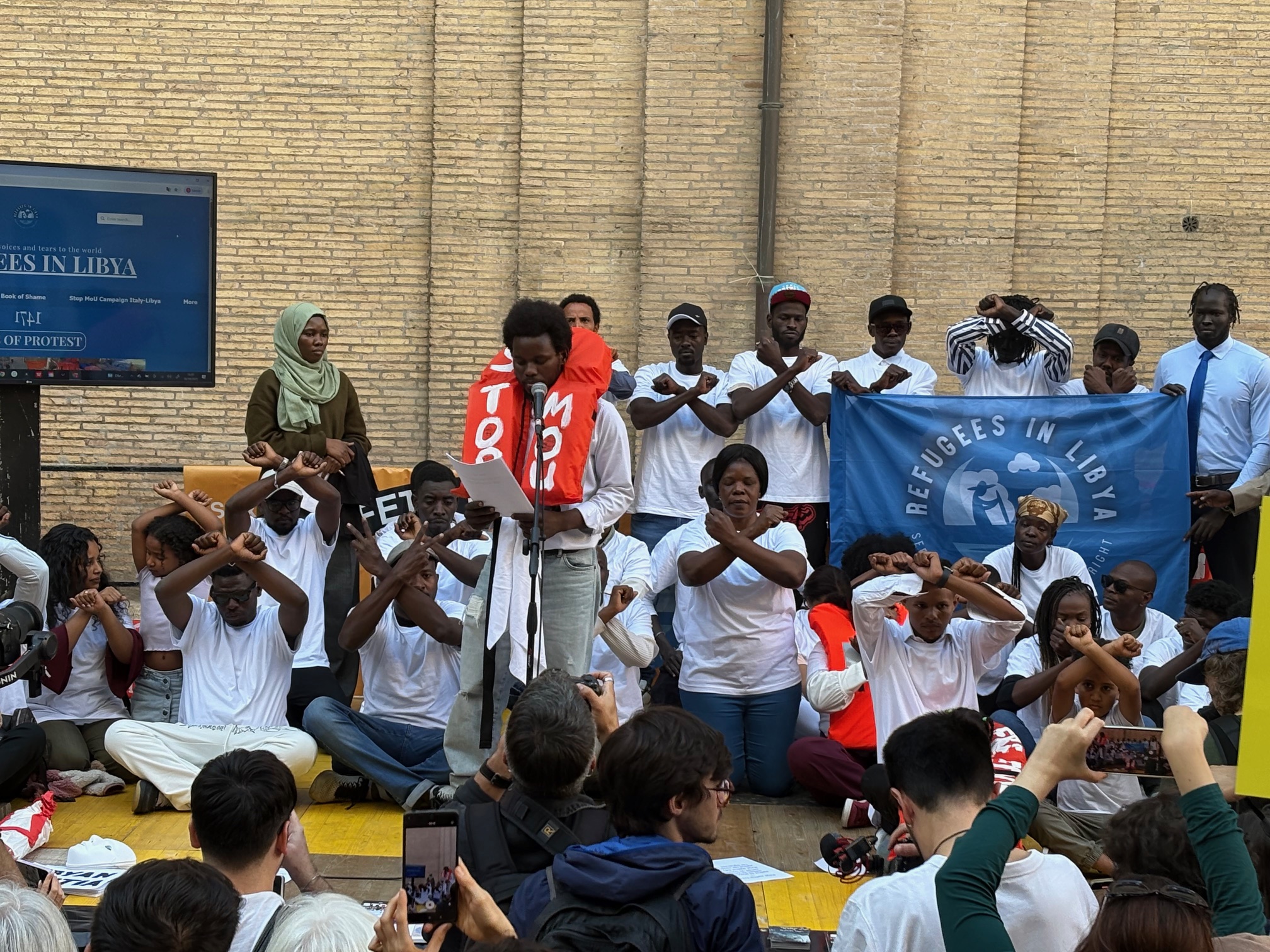
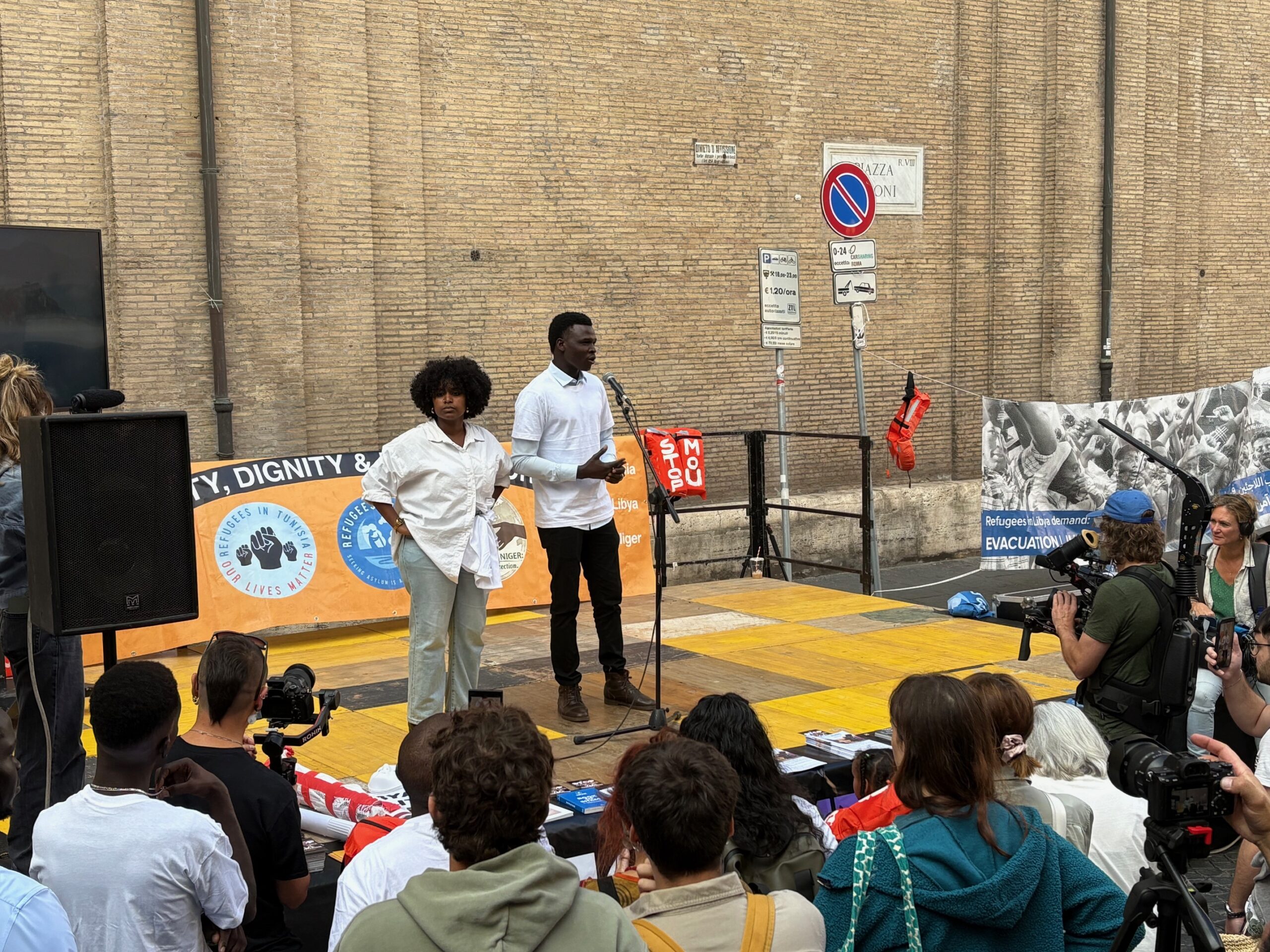
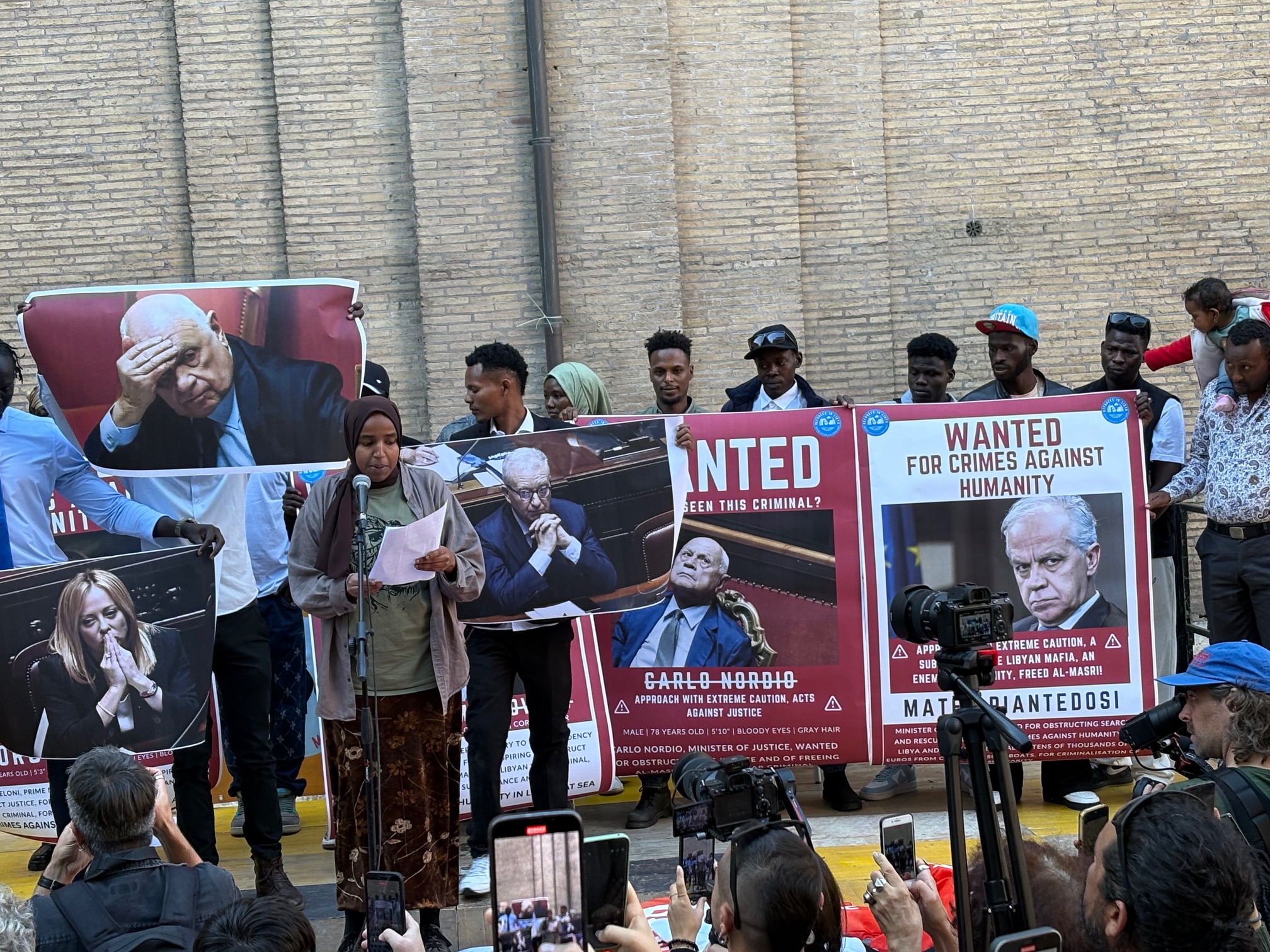
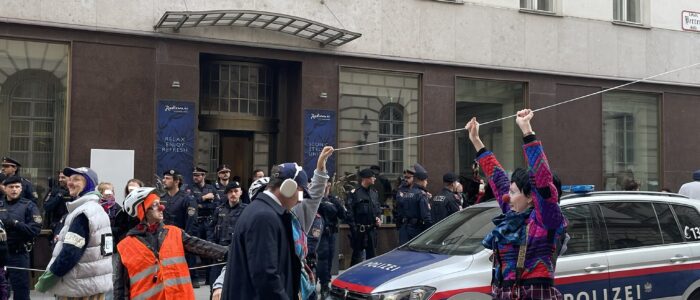
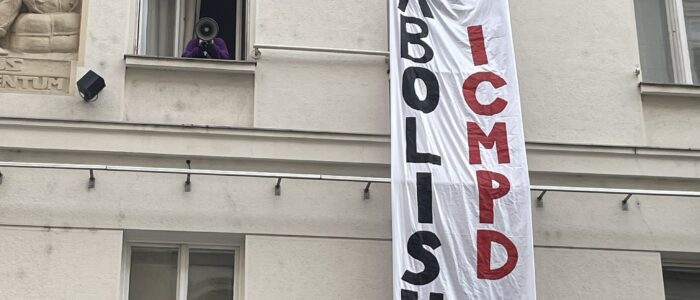
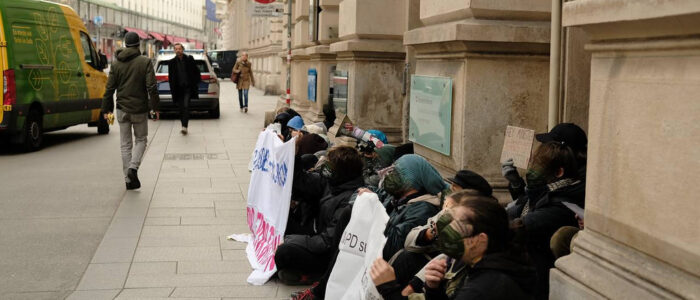
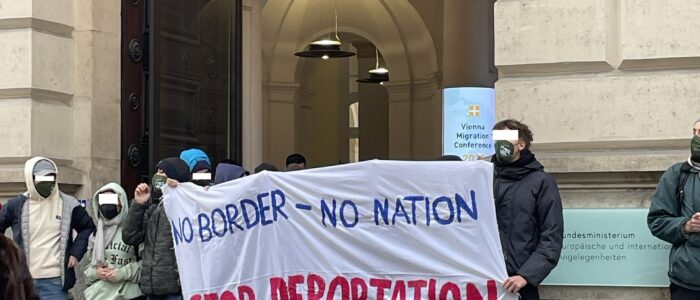
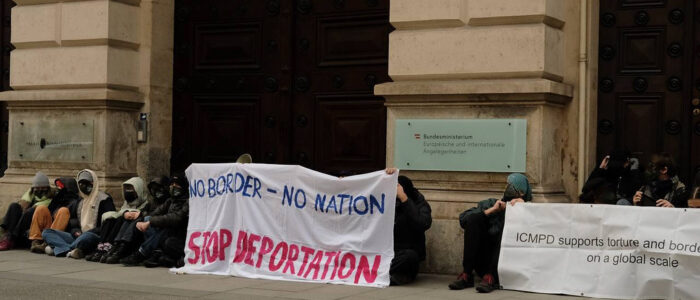
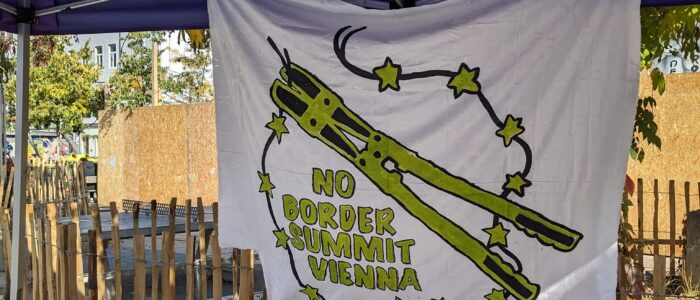
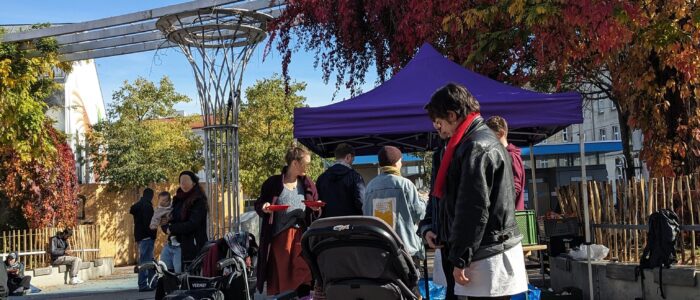
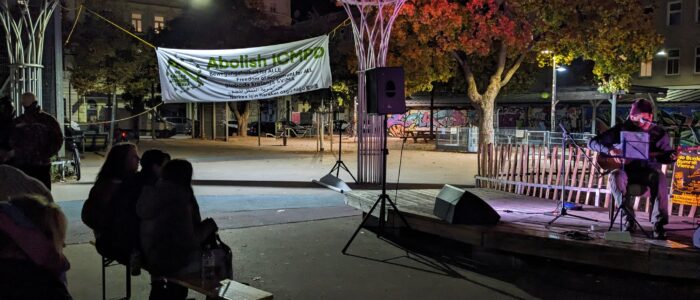
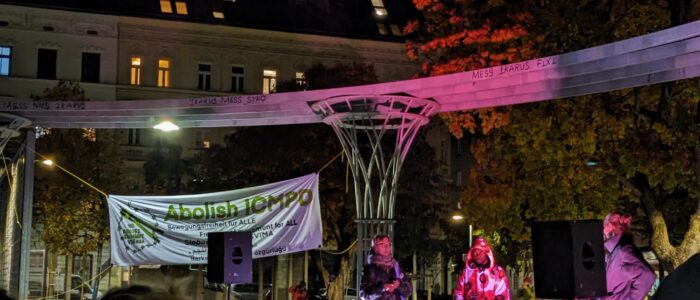
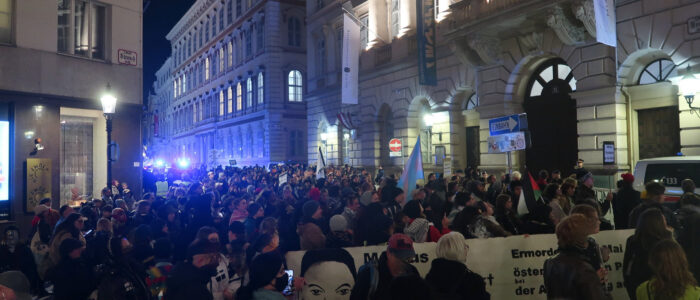
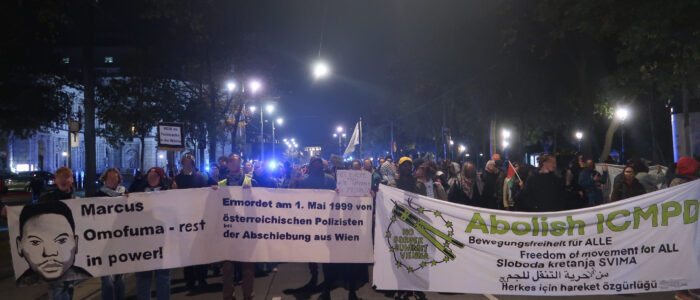
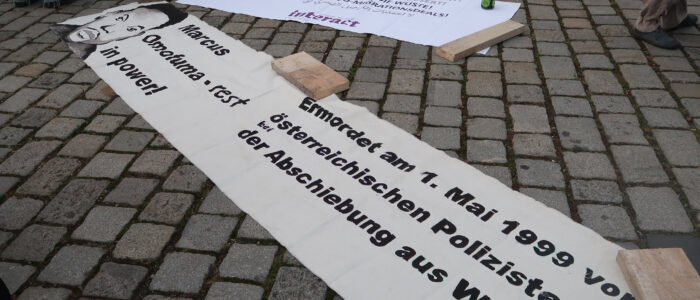
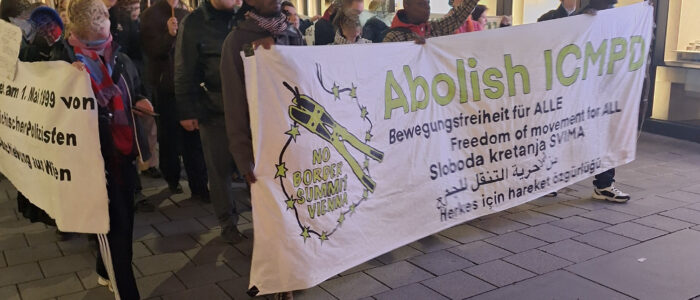
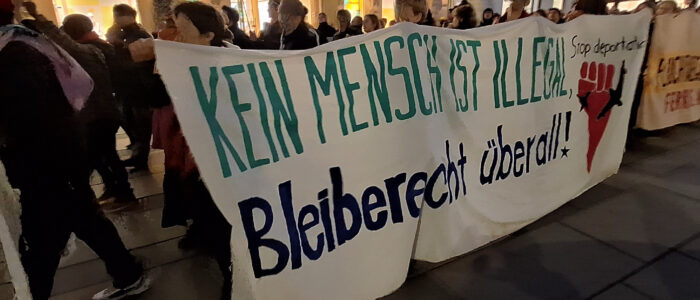
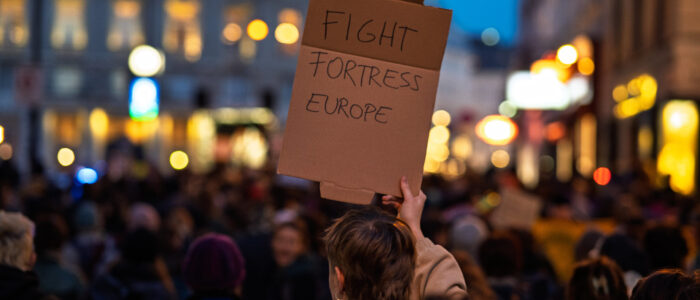
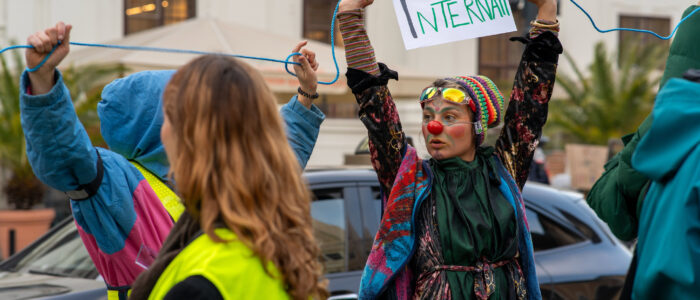
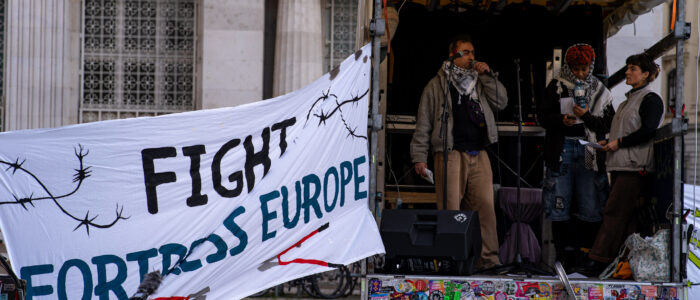
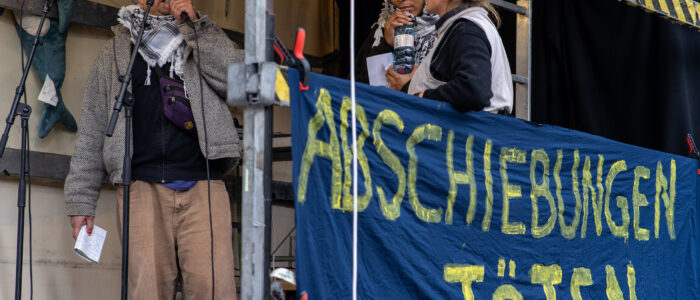
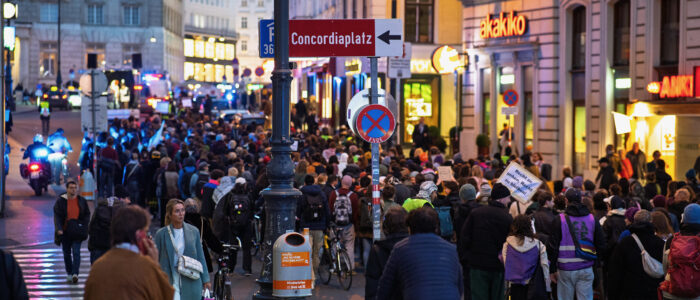
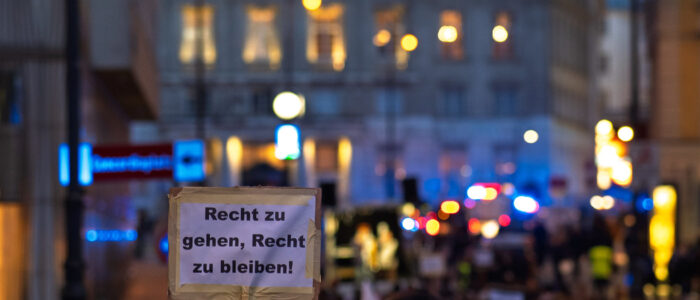
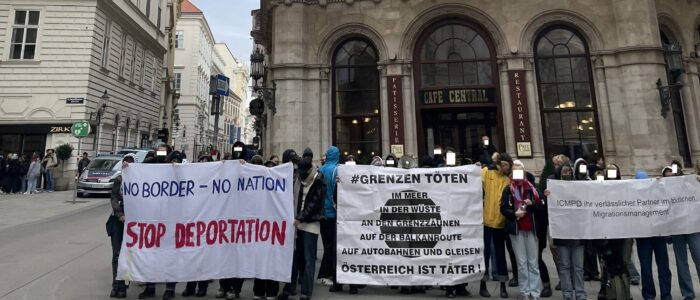
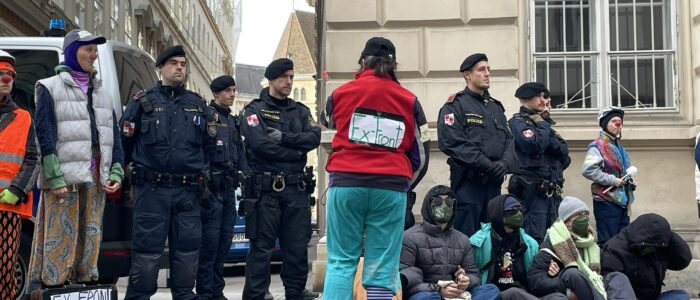
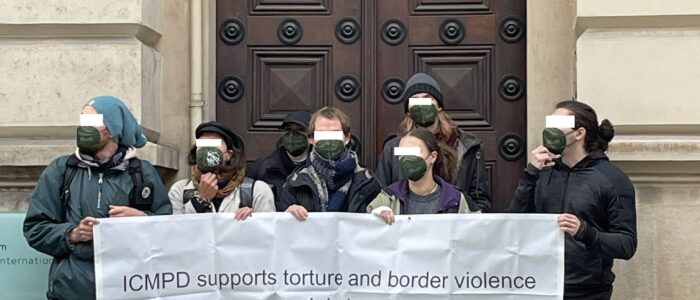
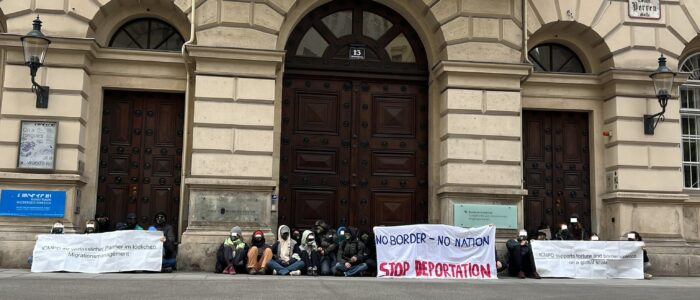
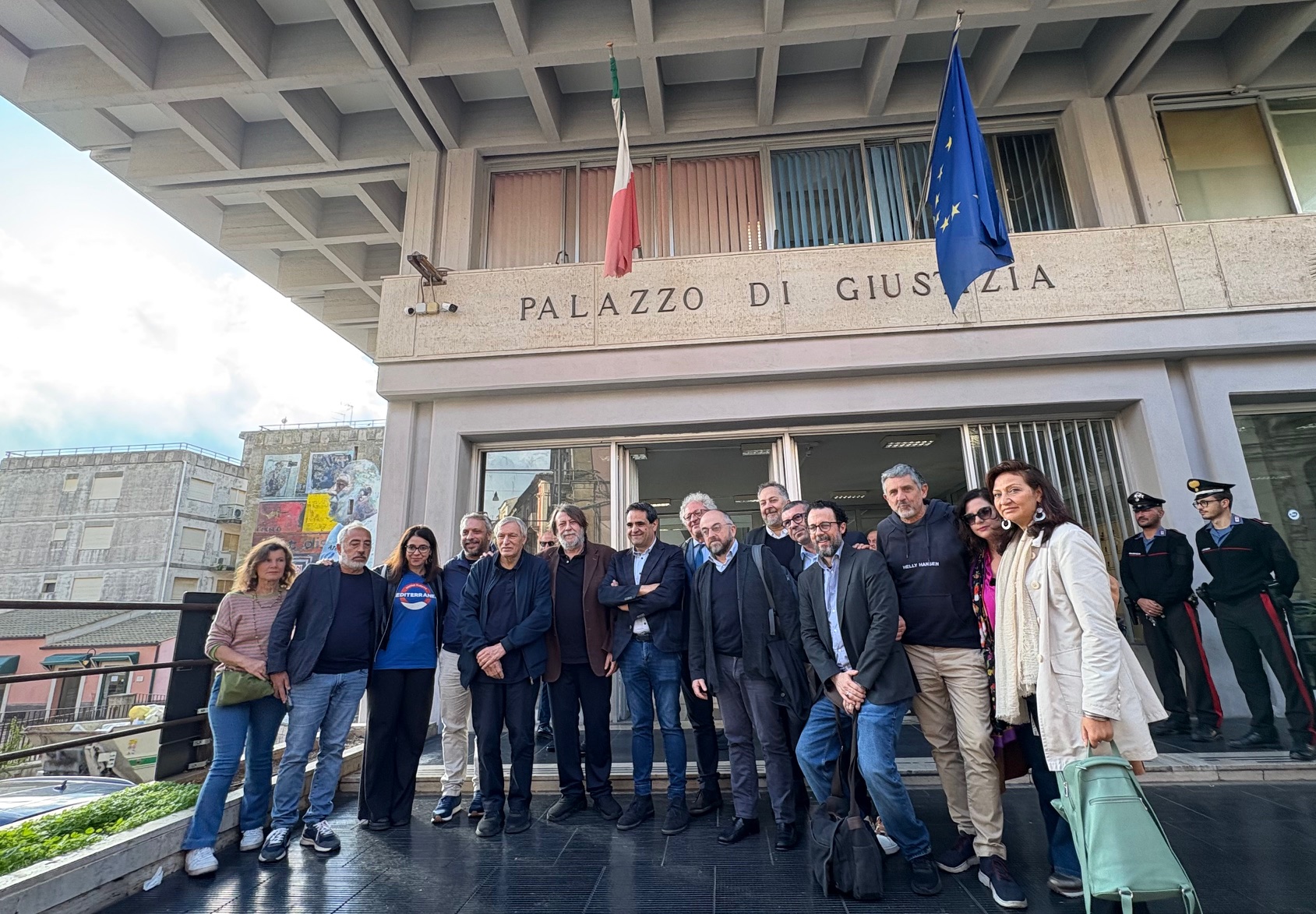
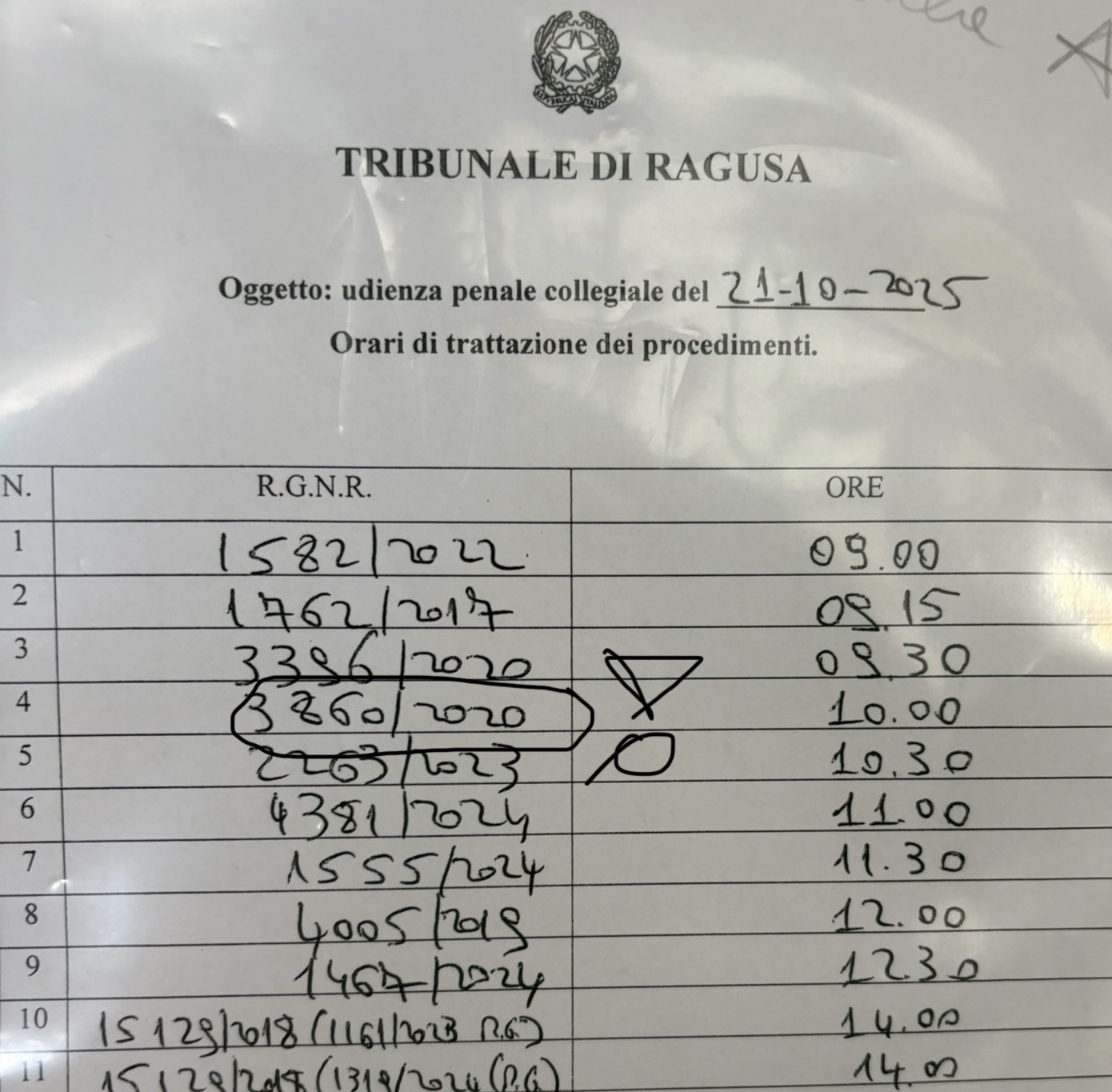
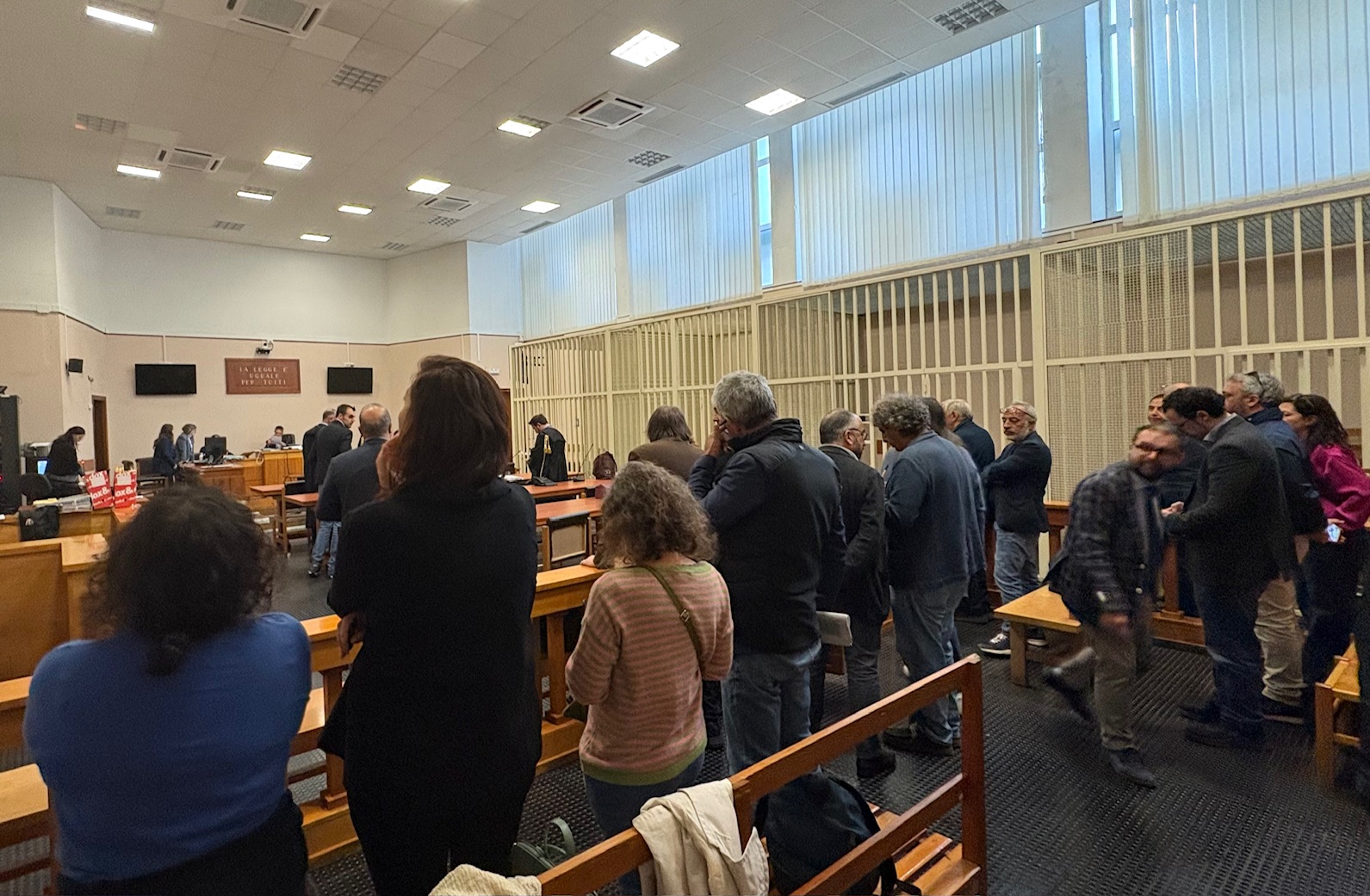
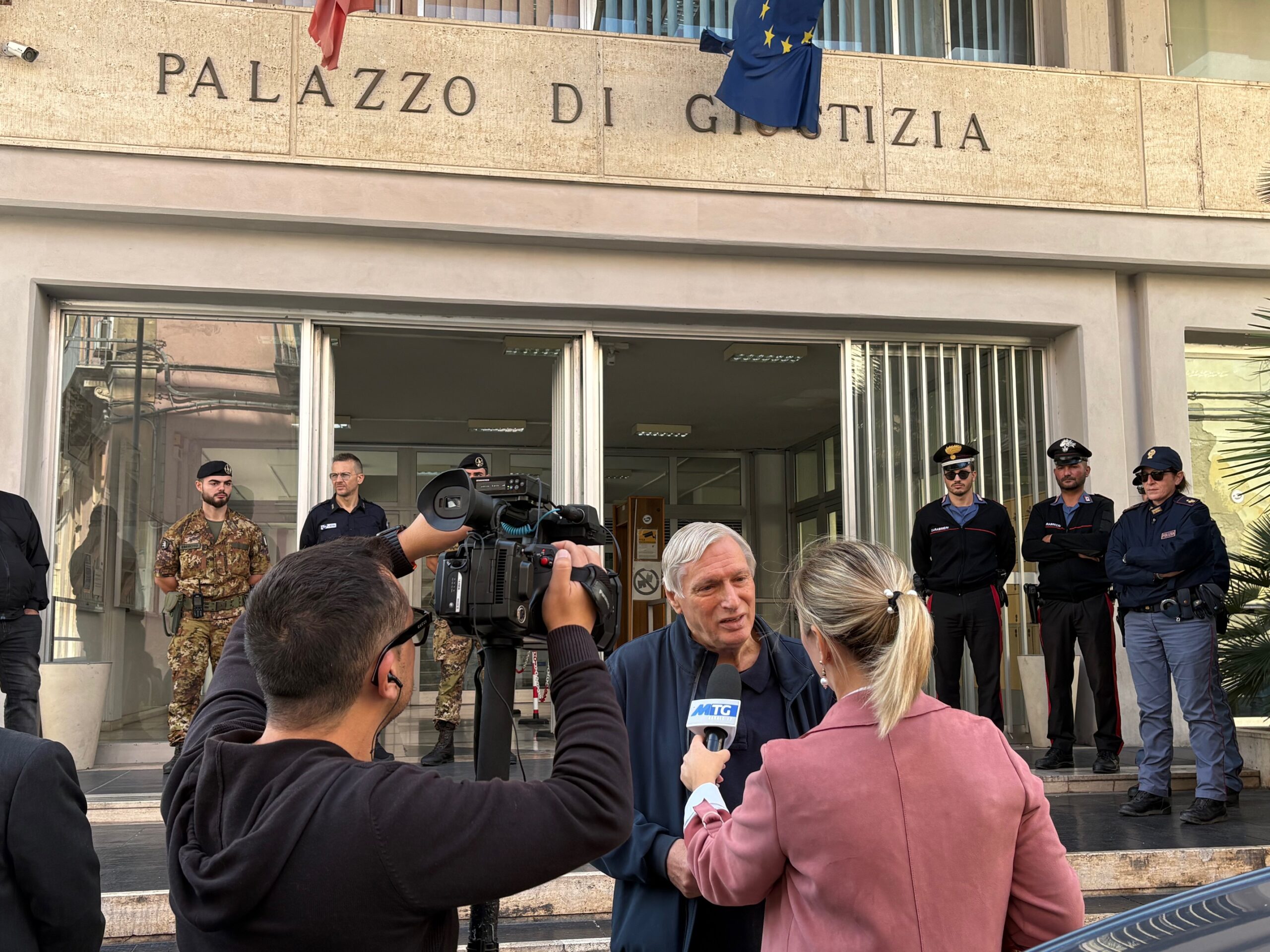
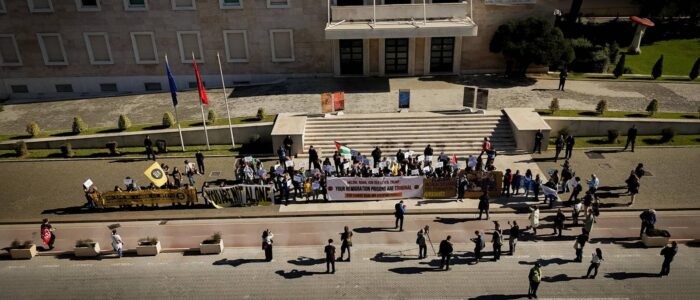
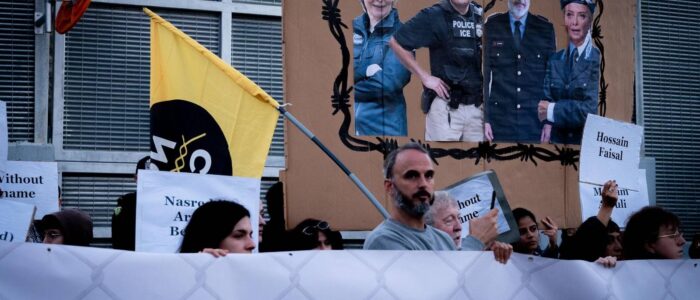
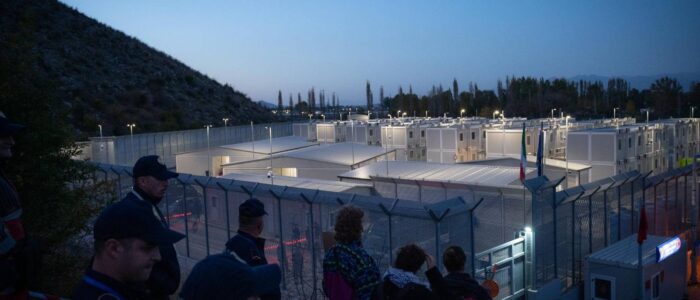
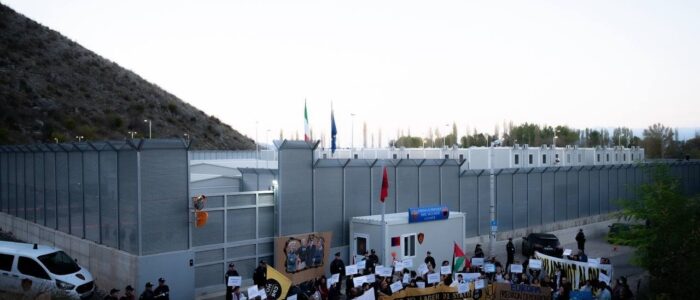
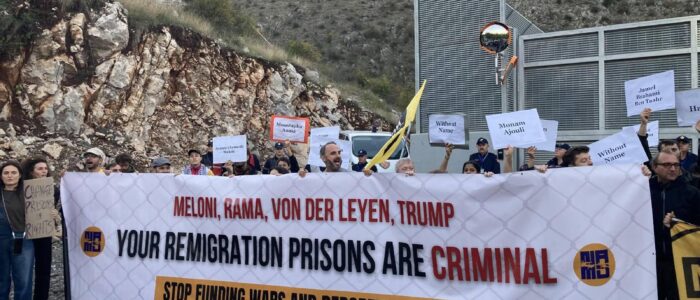
Recent Comments